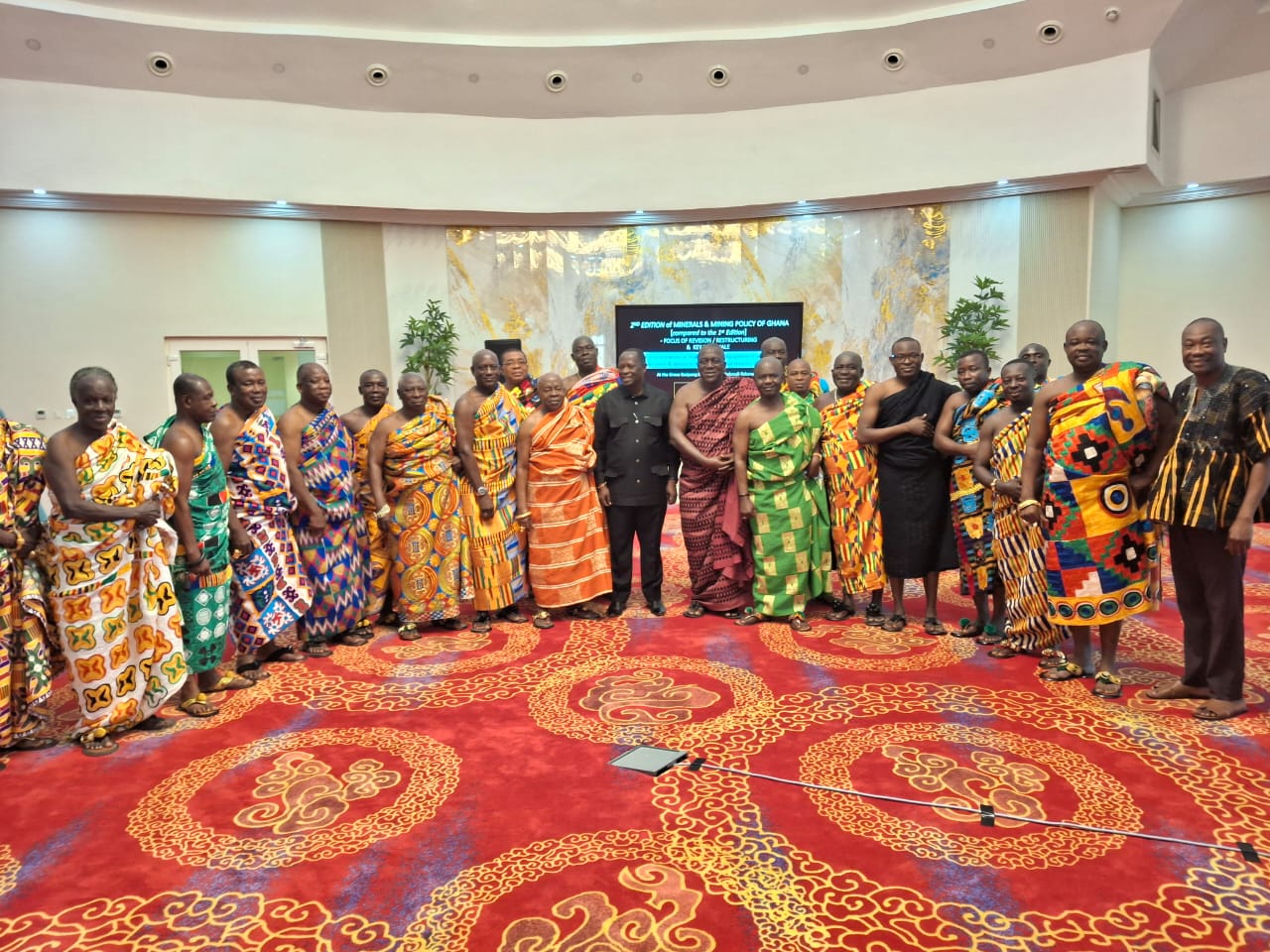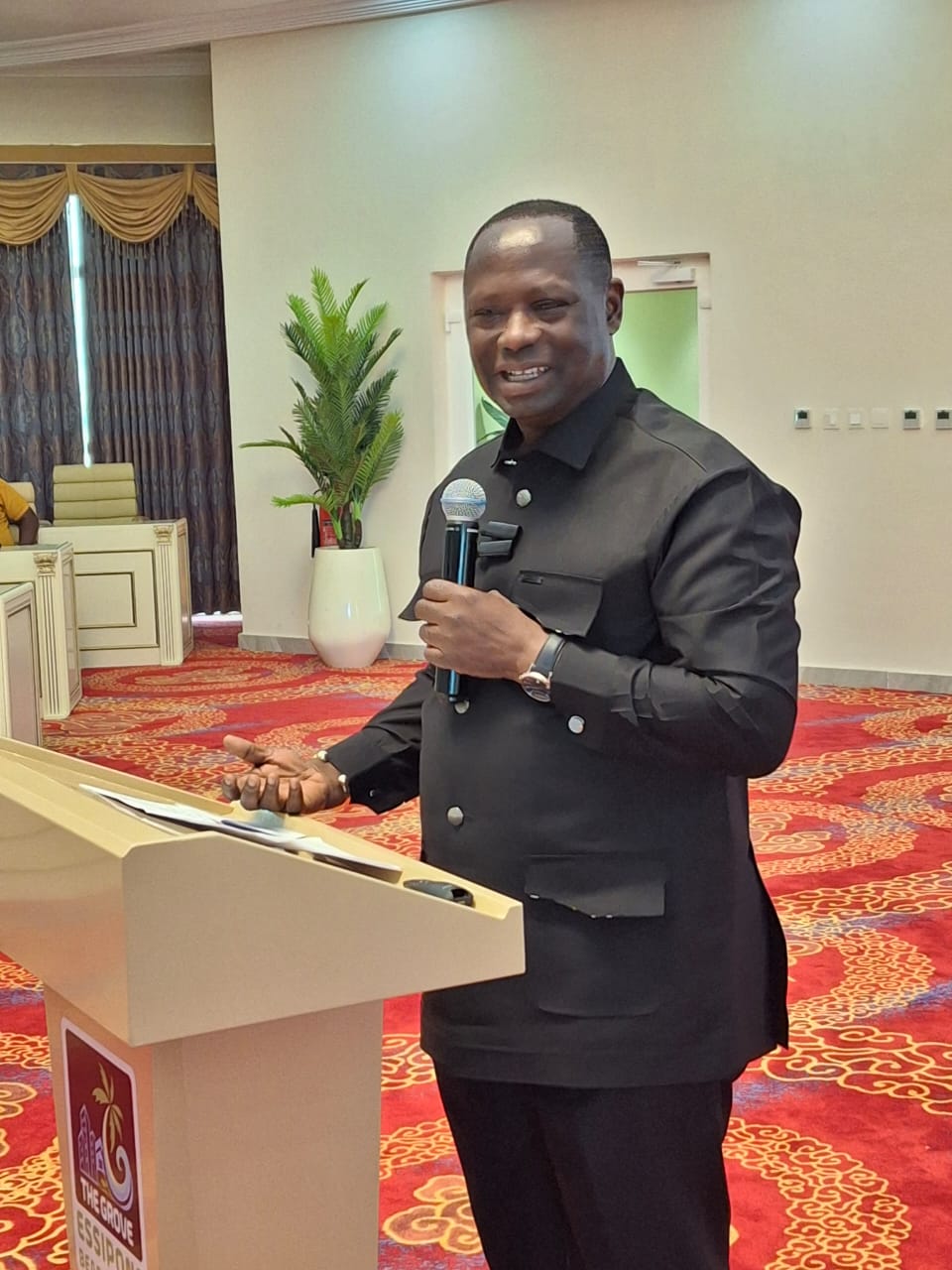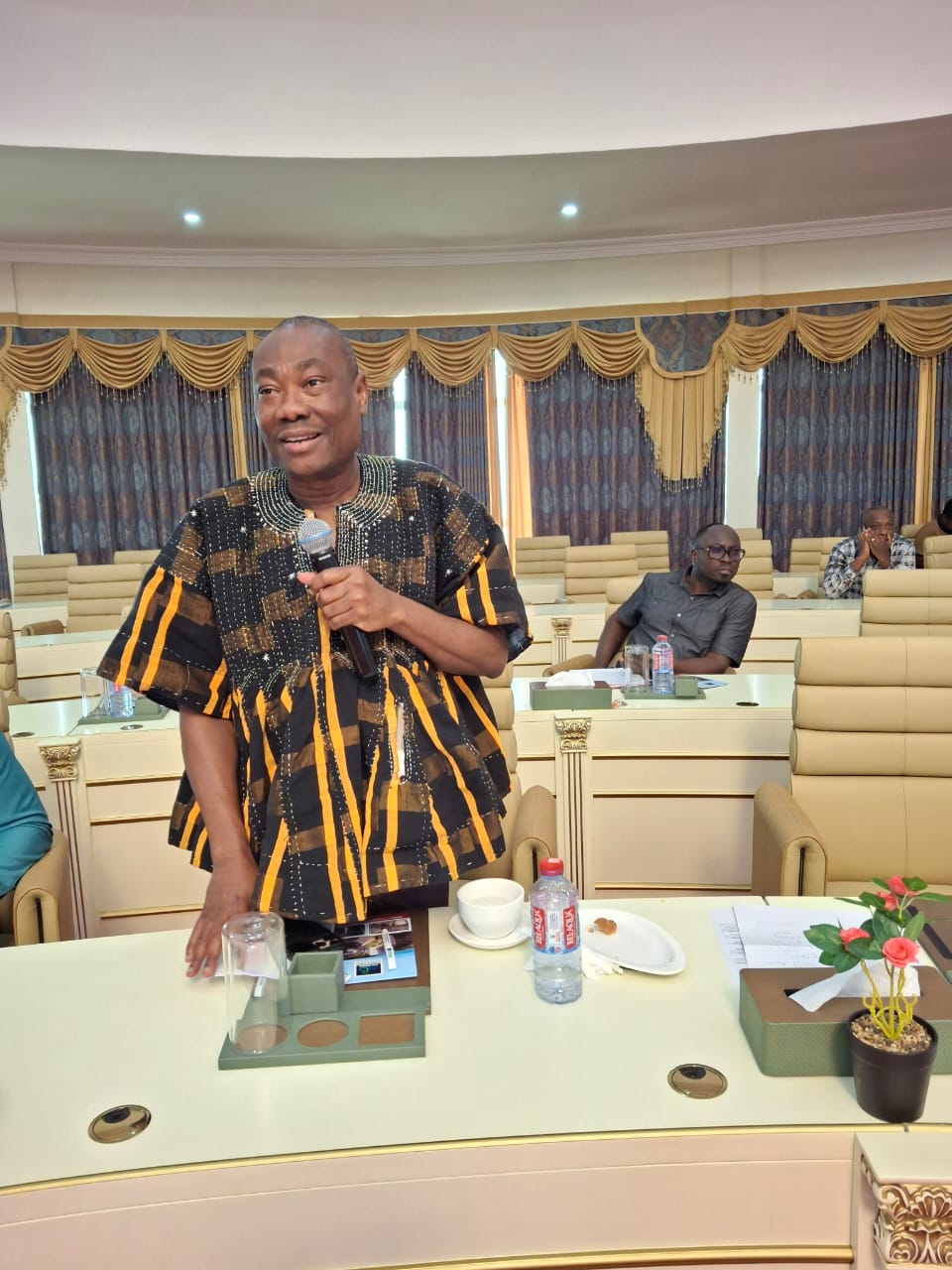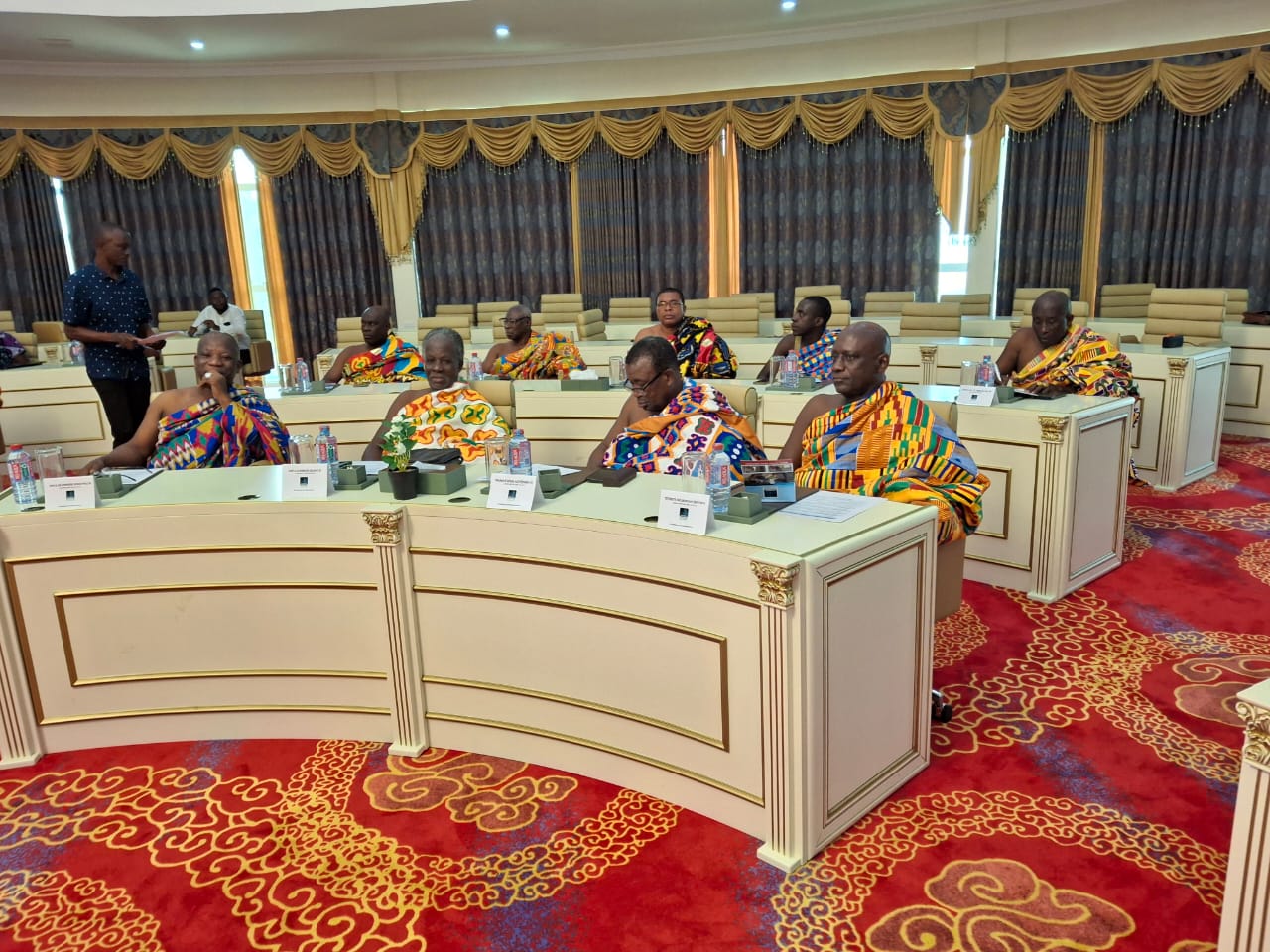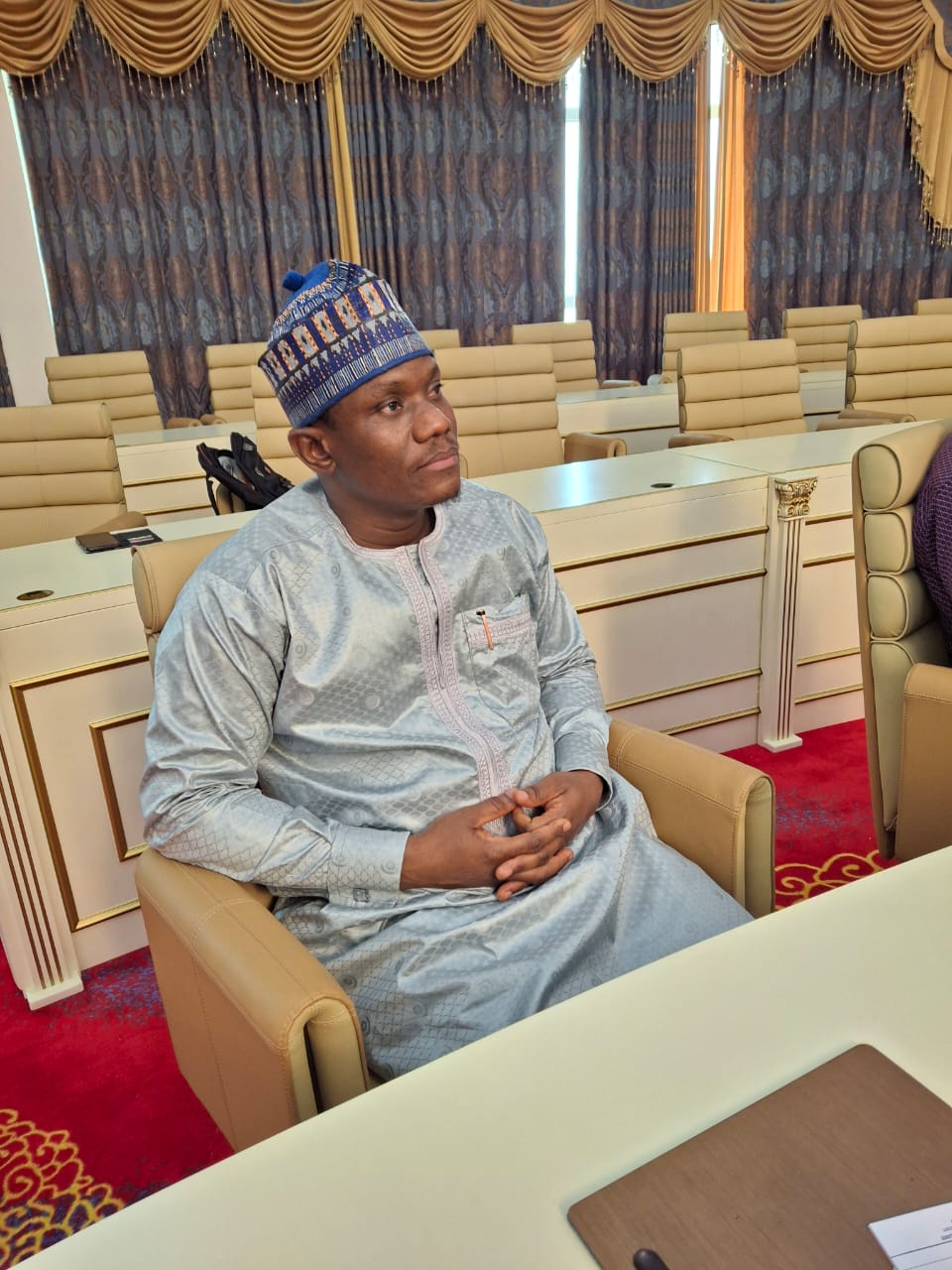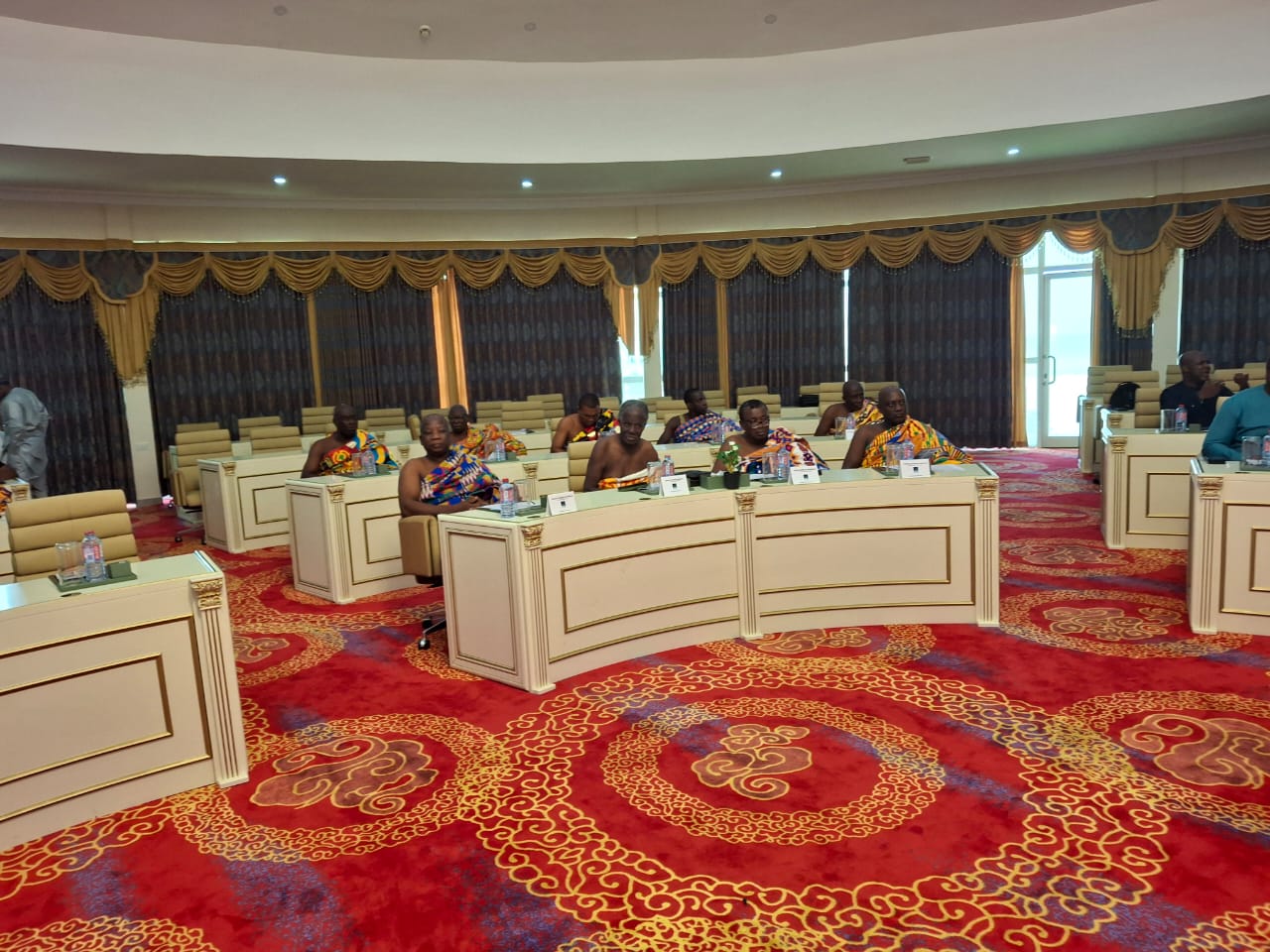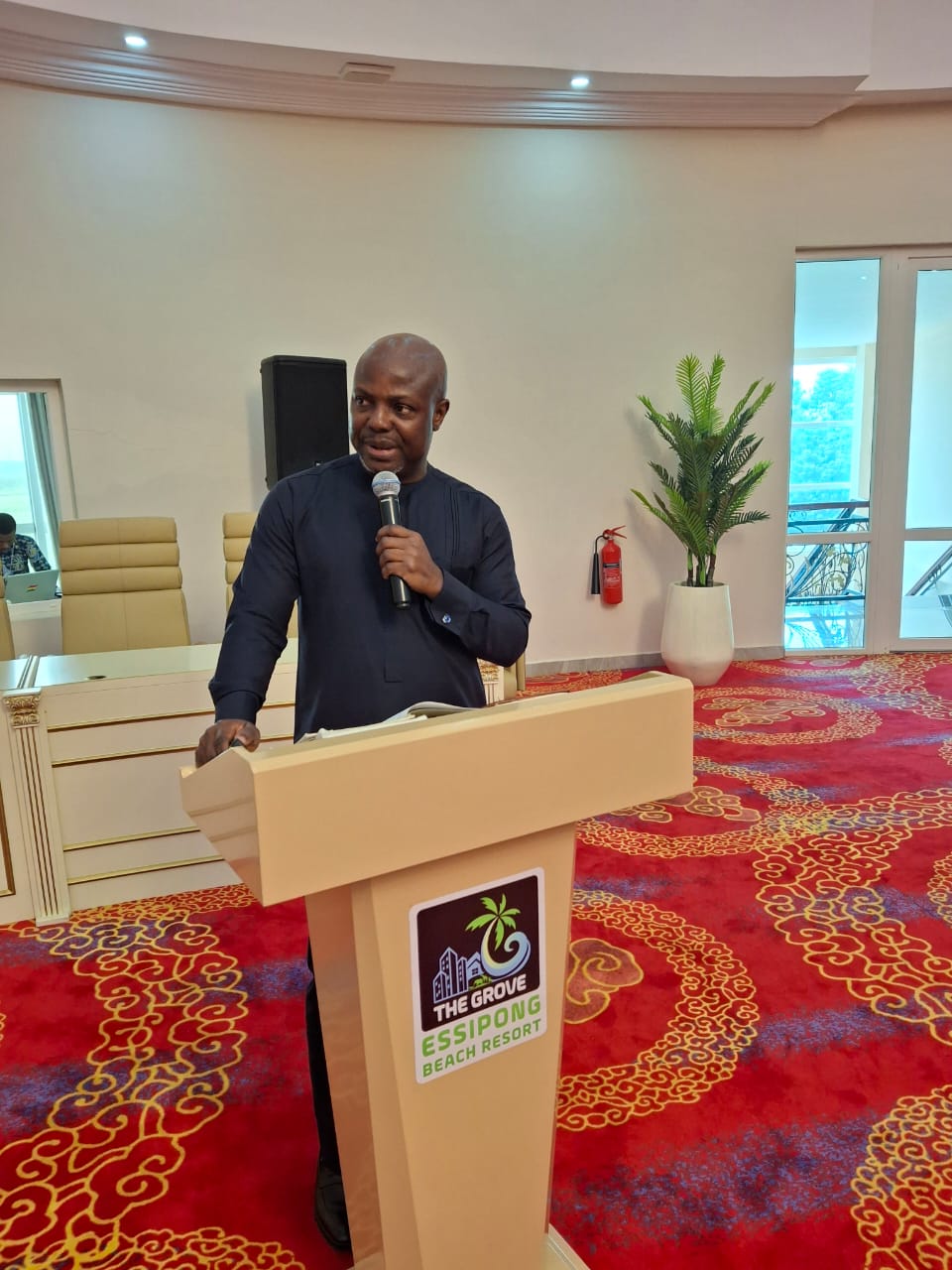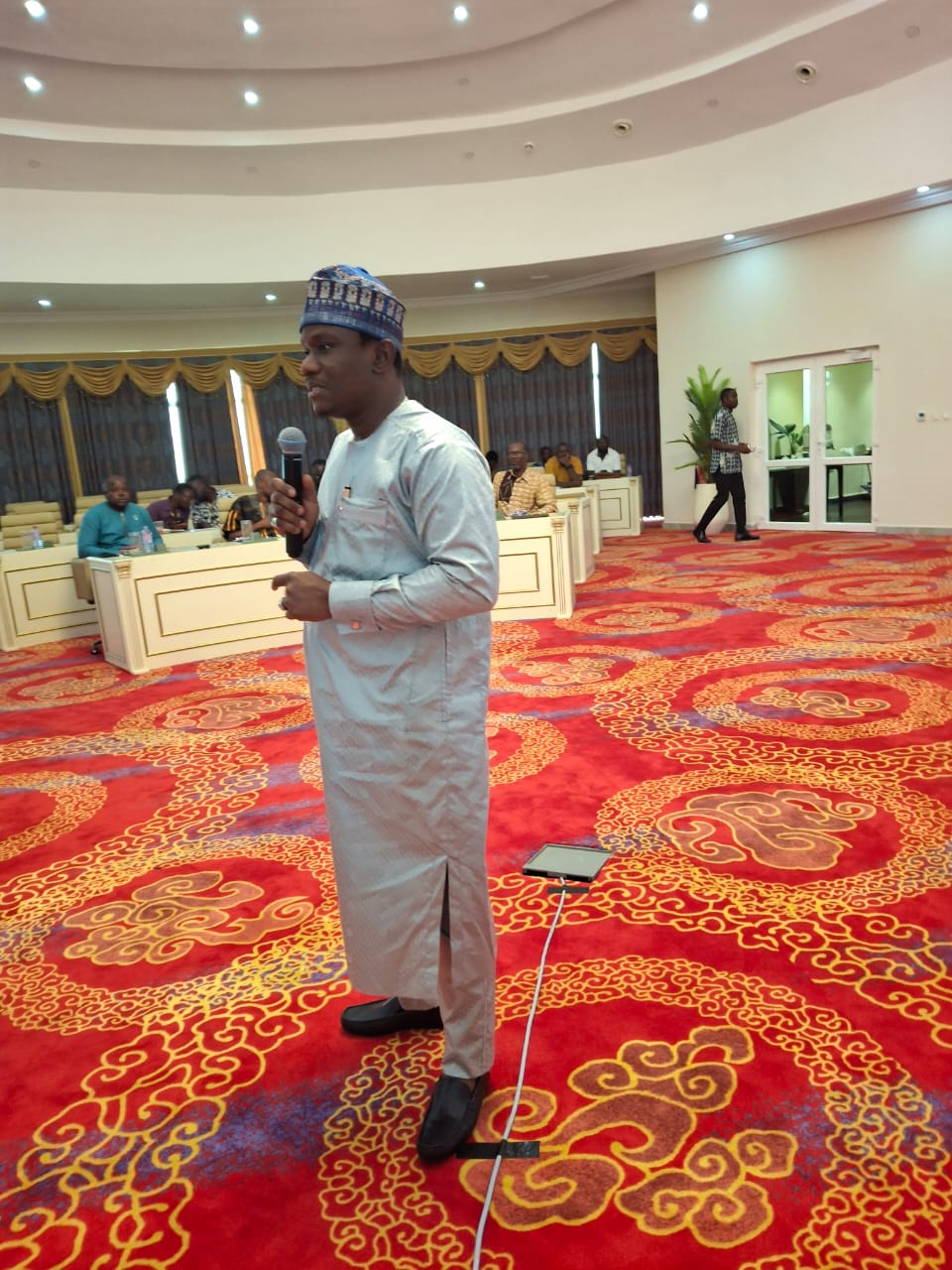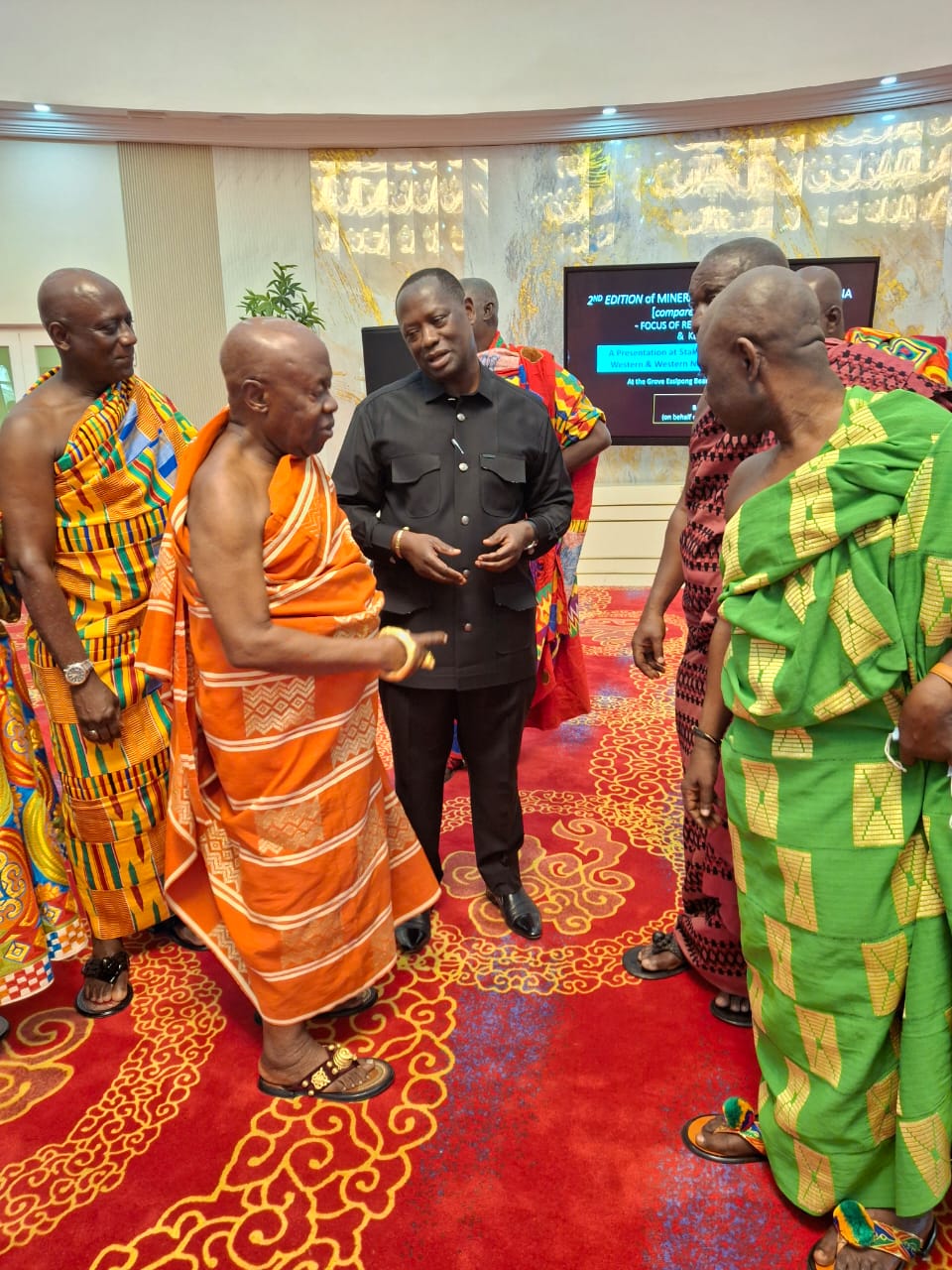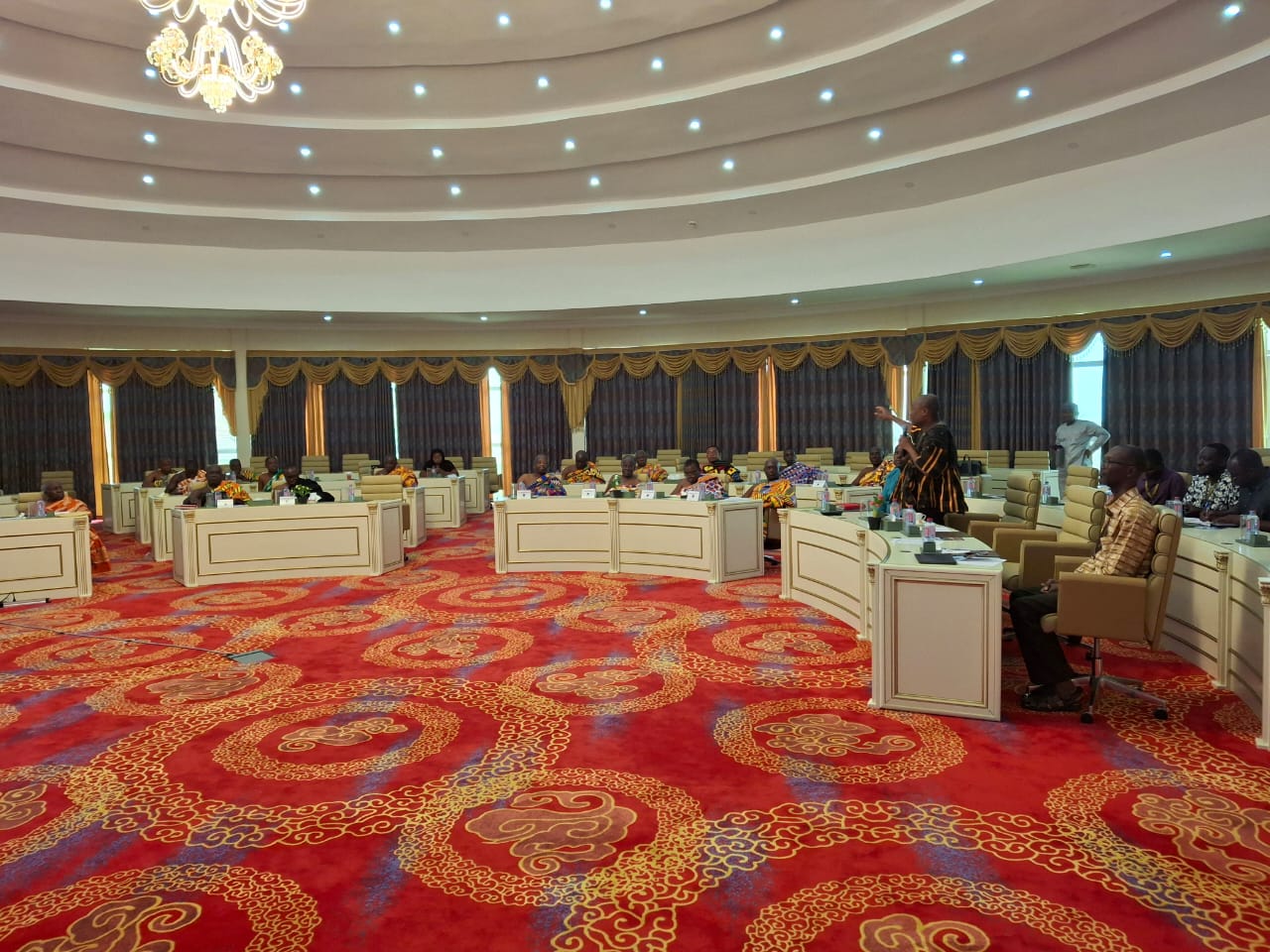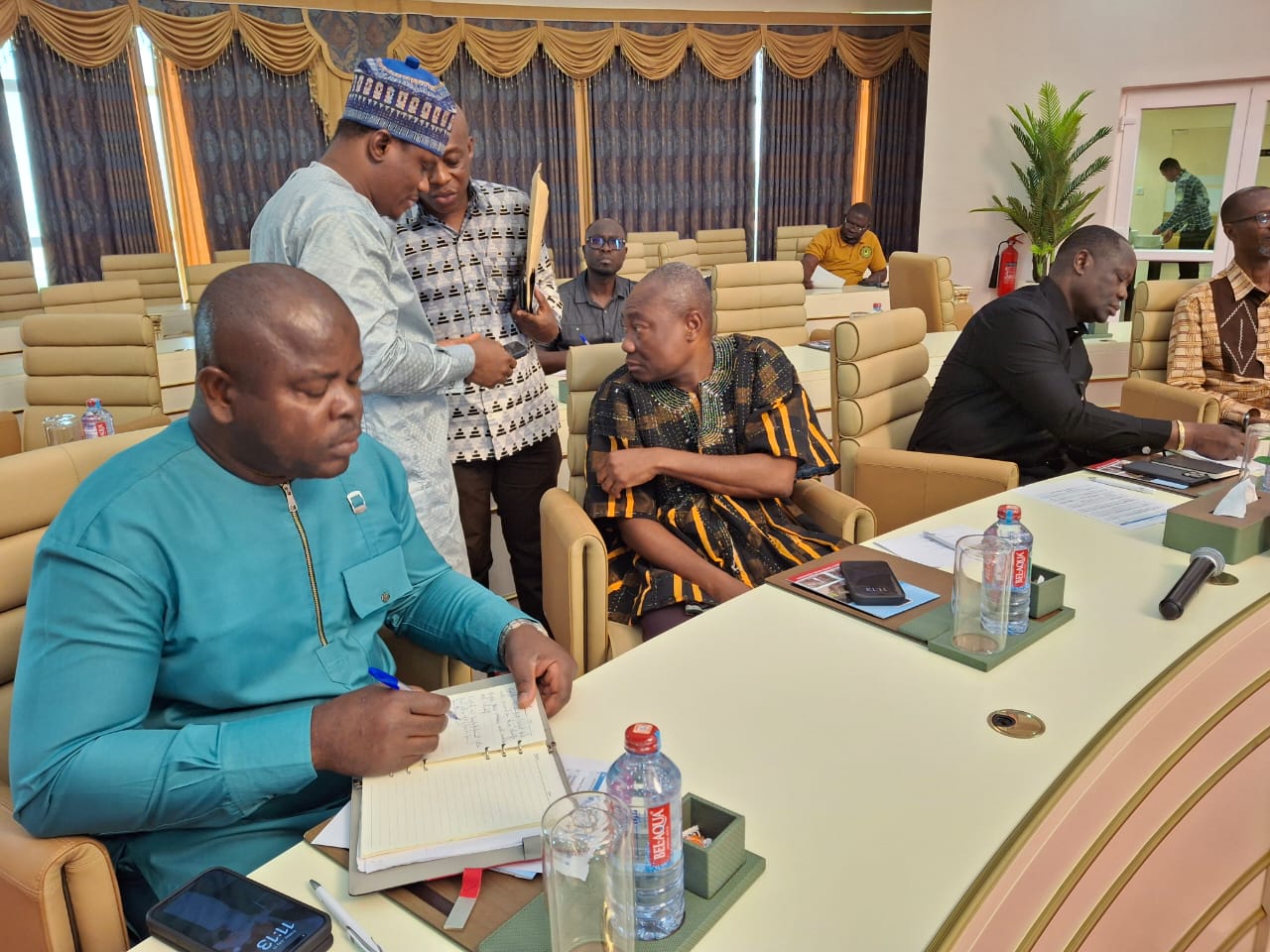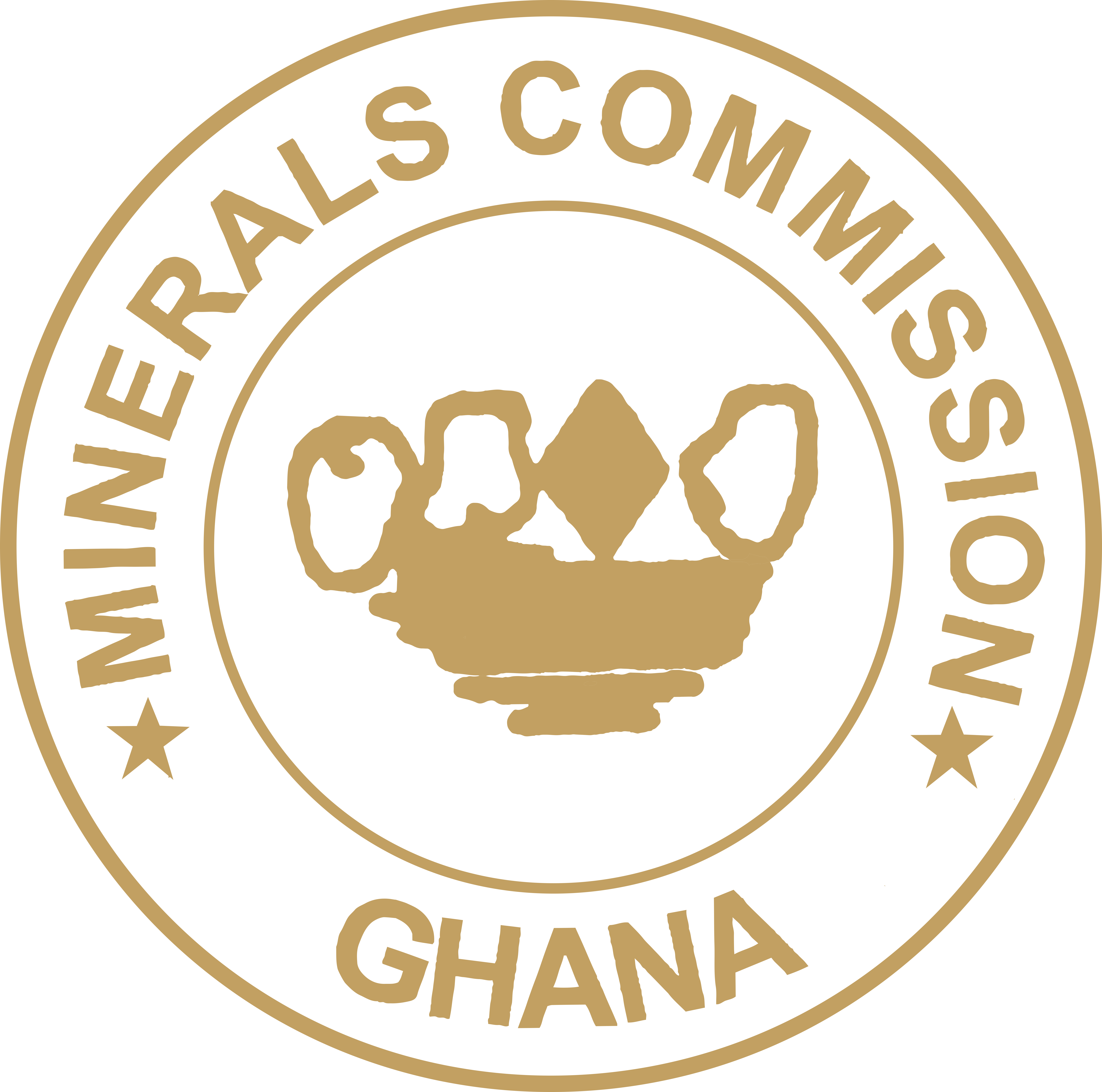New Mining Policy Reforms Aim to Curb Illegal Operations and Boost Local Participation
New Mining Policy Reforms Aim to Curb Illegal Operations and Boost Local Participation
The President of the North East Regional House of Chiefs, Nayiri-Naa Bohugu Mahama Abdulai Sheriga has underscored the significance of stakeholder engagement in the review of Ghana’s 2014 Mining Policy and the proposed amendments to the Minerals and Mining Act, 2006 (Act 703).
Nayiri-Naa noted that the meeting is particularly timely, given the significant challenges facing the mining sector in Ghana. Despite its substantial contribution to our national economy, the sector continues to grapple with the persistent threat of illegal mining activities, environmental degradation, and limited benefits accruing to host communities.
We are deeply concerned about the devastating impact of galamsey, which knows no boundaries and has left indelible marks on our environment and community livelihoods. However, we are encouraged by the bold steps taken by the government, through the Ministry of Lands and Natural Resources, the Minerals Commission, and security agencies, to sanitize the mining sector and strengthen its governance.
The decision to review the Mining Policy and amend the Minerals and Mining Act is a testament to the government’s commitment to repositioning the sector in line with global best practices, addressing emerging challenges such as climate change, and harnessing the full potential of our mineral resources for national development.
As traditional leaders, we reaffirm our unwavering commitment to support the government’s efforts to end illegal mining and promote responsible and sustainable mining practices. We stand ready to work hand-in-hand with the Minerals Commission and other stakeholders to ensure that our communities grant the necessary social licenses for mining operations while safeguarding the welfare of our people and the environment.
I would like to extend an invitation to the Minerals Commission to explore the mineral potential of the North East Region, which preliminary studies suggest has significant prospects for mineral resources. We are eager to collaborate with the Commission to ensure that any mining activities in our region are undertaken responsibly and in accordance with the law.
Hon. Prof. Hamza Adam (MP) and Board member of the Minerals Commission stated that the engagement has been an eye-opener, providing an opportunity for frank discussions, constructive contributions, and the forging of stronger partnerships that will shape the future of Ghana’s mining sector. We are confident that the output of this law will be sustainable and beneficial to our communities.
We commend the government for its clear vision and decisive actions towards restructuring and sanitizing the mining sector. We appreciate the various initiatives being rolled out to tackle illegal mining, protect the environment, and formalize the small-scale mining sector for the benefit of our people and our nation.
We look forward to seeing the final document and its implementation. We appreciate the Minerals Commission’s efforts to decentralize and engage with local communities. We also commend the traditional chiefs for their endurance and commitment to their people.
The Minerals Commission’s initiative to engage with traditional leaders and communities is a step in the right direction. We believe that this inclusive approach will result in a law that is sustainable and beneficial to all stakeholders.
Let us continue to work together to ensure that our mineral resources benefit Ghanaians and contribute to the development of our nation.
The Deputy CEO of the Minerals Commission, Mr. Isaac Andrews Tandoh noted that the review is not just a bureaucratic exercise—it reflects a broader shift in how Ghana wants to position its mineral sector in an era defined by green energy demand, responsible resource extraction, and enhanced local value creation.
He revealed that the North East Region boasts of an array of mineral resources, including limestone and gold, with several other minerals currently under exploration. This meeting presents a propitious opportunity to harness the collective wisdom of the traditional council in shaping a policy and law that will benefit both current and future generations.
We have embarked on a comprehensive overhaul of the licensing regime processes, recognizing the imperative of rectifying existing flaws. As His Royal Majesty astutely pointed out this morning, the current system allows for the issuance of permits without requisite permission from landowners, a glaring anomaly that necessitates urgent attention, he added.
In our efforts to craft a more inclusive and equitable framework, we have engaged a diverse array of stakeholders, including Civil Society Organizations, academia, The Chamber of Mines, and the Ghana National Association of Small-Scale Miners. This consultative approach has been extended to the Regional Houses of Chiefs, with this being the tenth of such engagement.
Following today’s deliberations, the House will be afforded a two-week window to submit formal proposals that capture the essence of your collective wisdom. These proposals will be carefully considered by the committee reviewing the documents, ensuring that they are adequately incorporated into the law.
In this spirit of collaboration, I implore all stakeholders to actively participate and contribute their expertise. We recognize that the wisdom and insights of the traditional council are indispensable in crafting a policy that not only benefits the North East Region but also Ghana as a whole, while safeguarding the interests of future generations, Mr. Tandoh said.
The Manager of Legal, Mr. Josef Iroko, discussed the current state of the mining laws and regulations, as well as administrative and regulatory guidelines. He spoke about the importance of Parliamentary ratification of mining leases and the rights and responsibilities of District Mining Committees in overseeing mining activities within their jurisdictions.
Mr. Benjamin Aryee, former Chief Executive Officer of the Minerals Commission presented a comprehensive review of the 2014 Mining Policy, highlighting salient new provisions. Notably, he emphasized the integration of the Green/Critical Minerals Policy, which underscores the imperative of sustainable mining practices in the face of burgeoning global demand for critical minerals.
The discussion marks a significant step toward a more transparent, sustainable, and community-inclusive mining sector. With traditional leaders now playing a critical role in shaping reforms, Ghana moves closer to a mining framework that prioritizes national interests, environmental protection, and equitable benefits for all.
END.
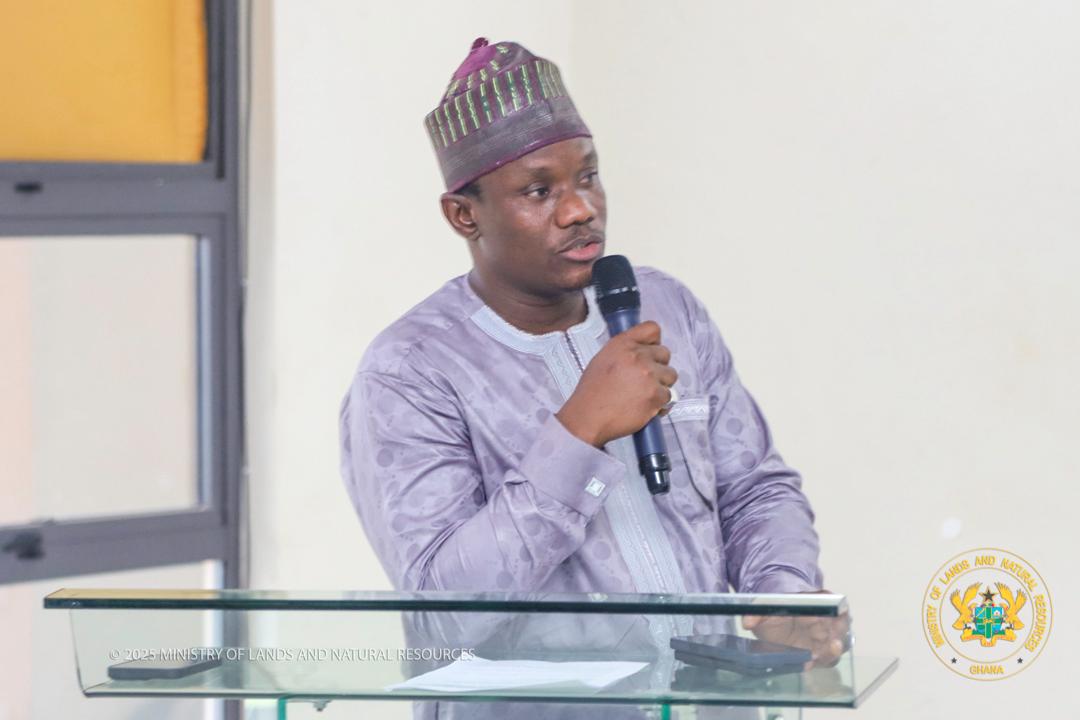
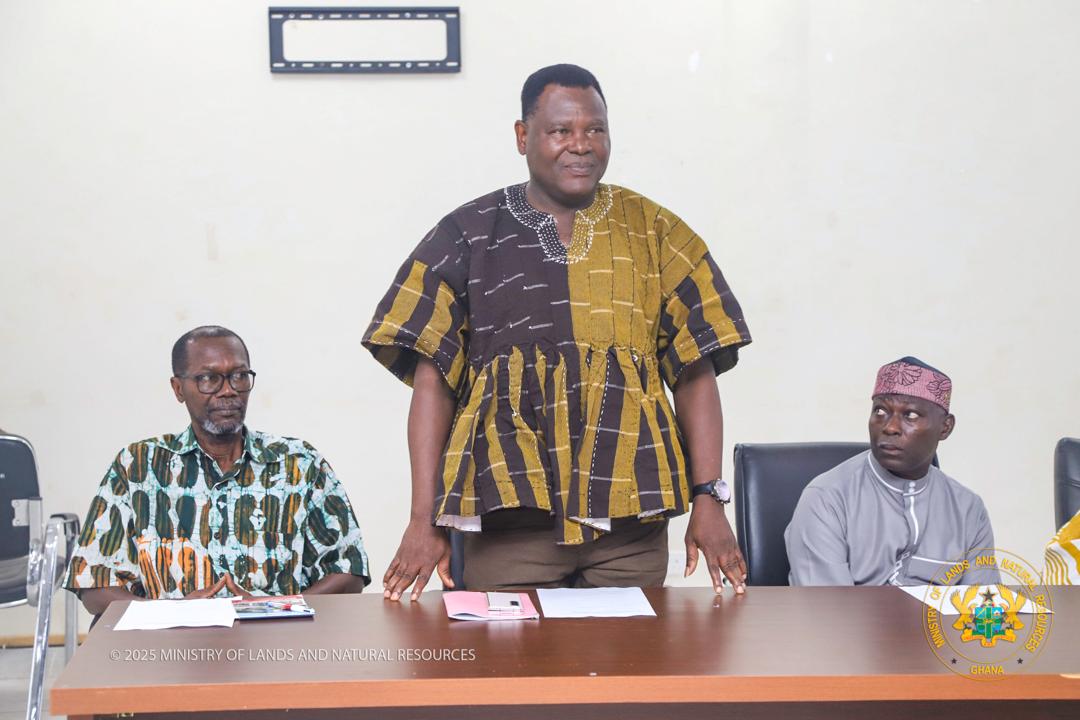
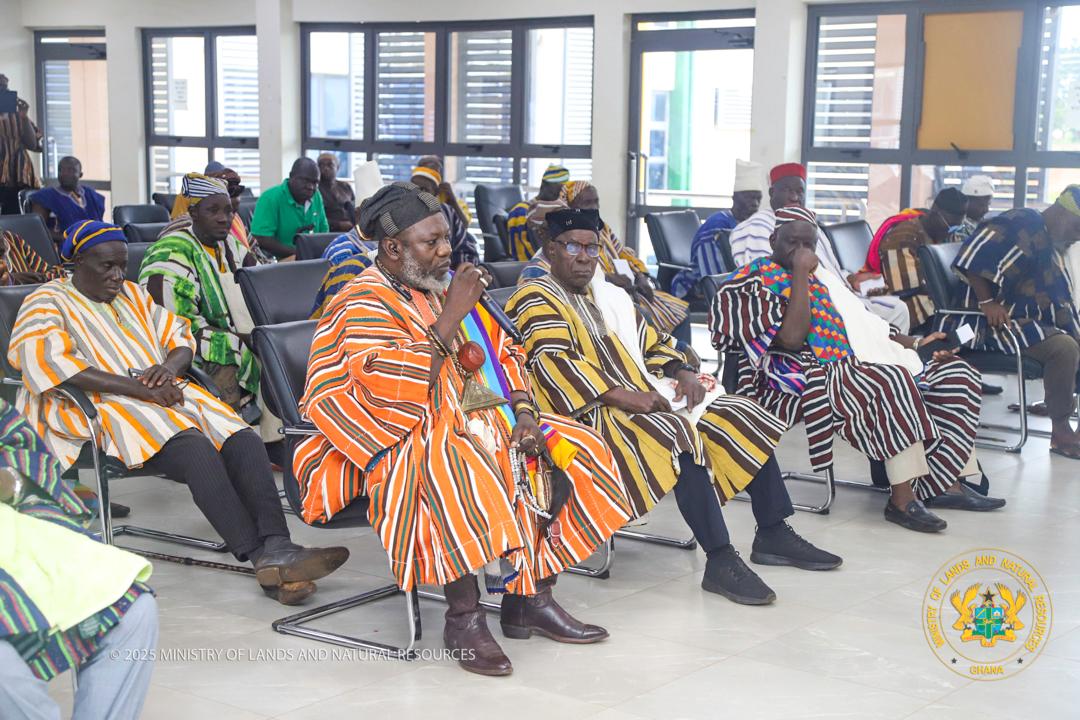
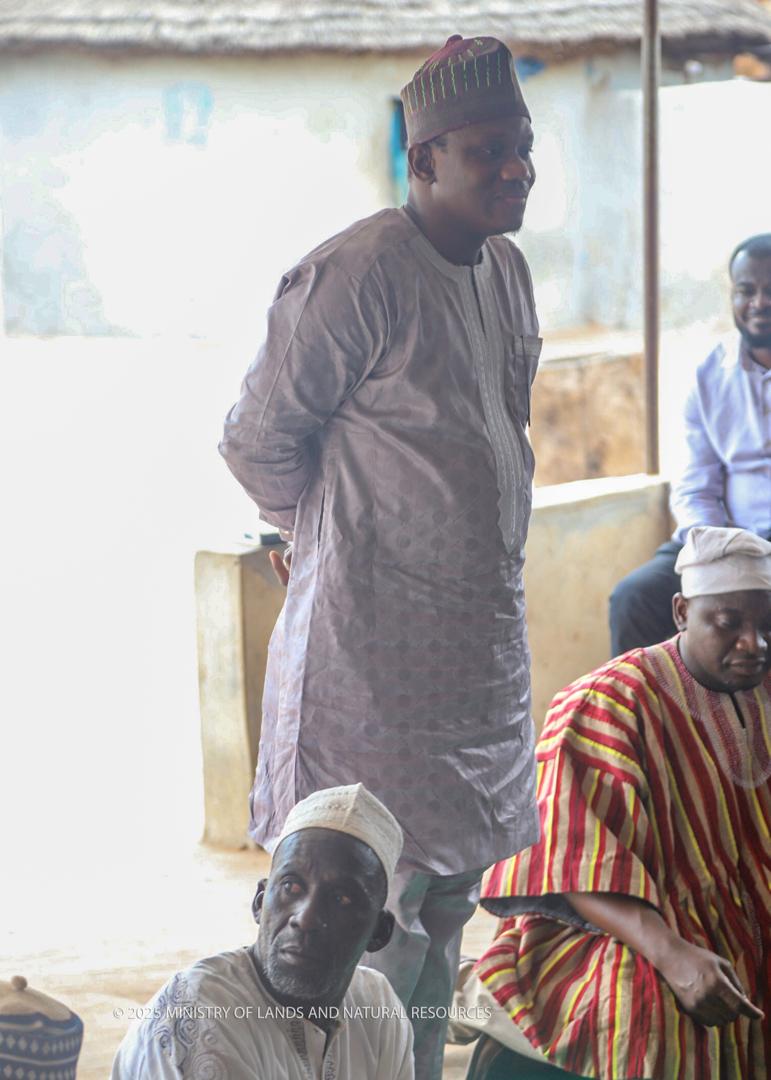
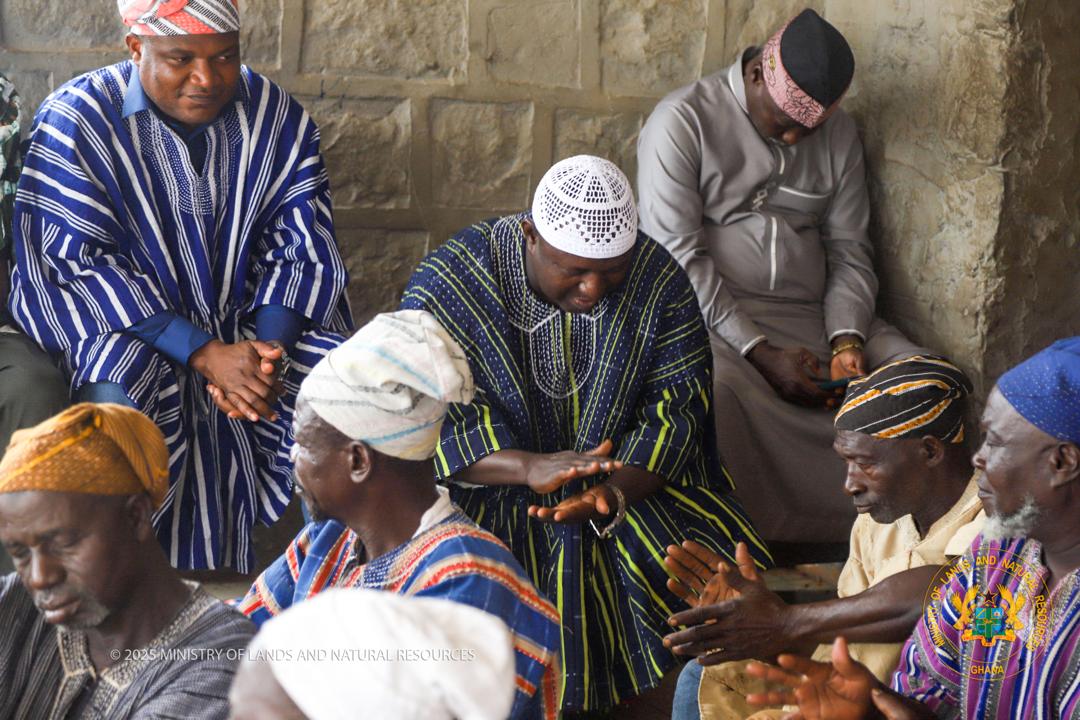
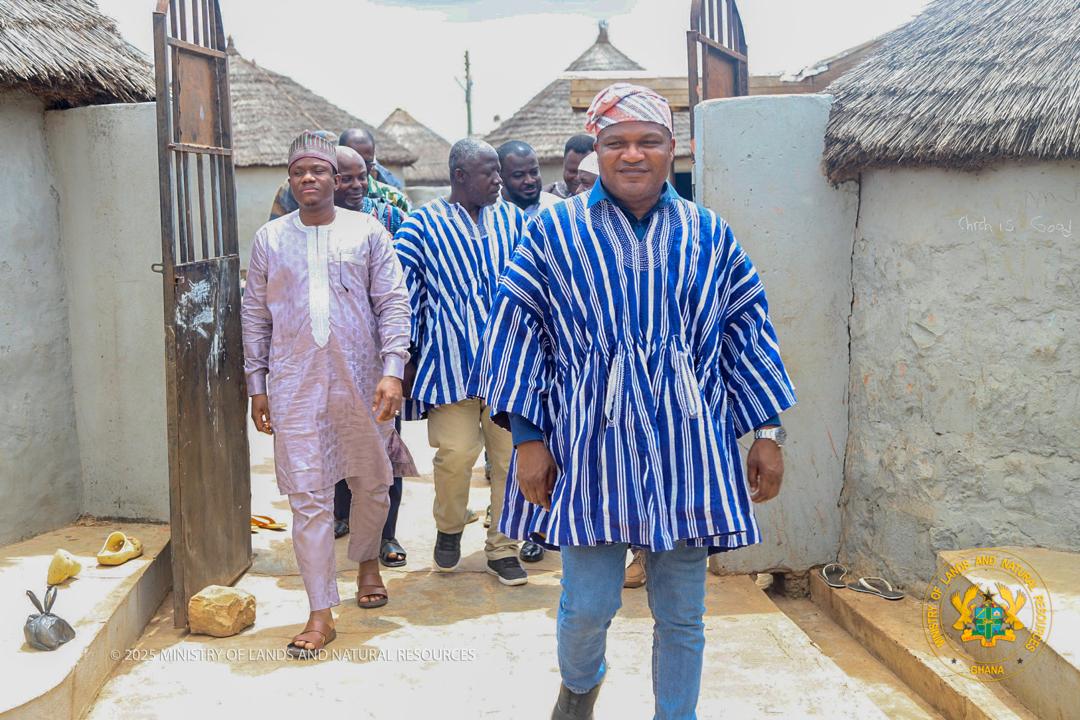
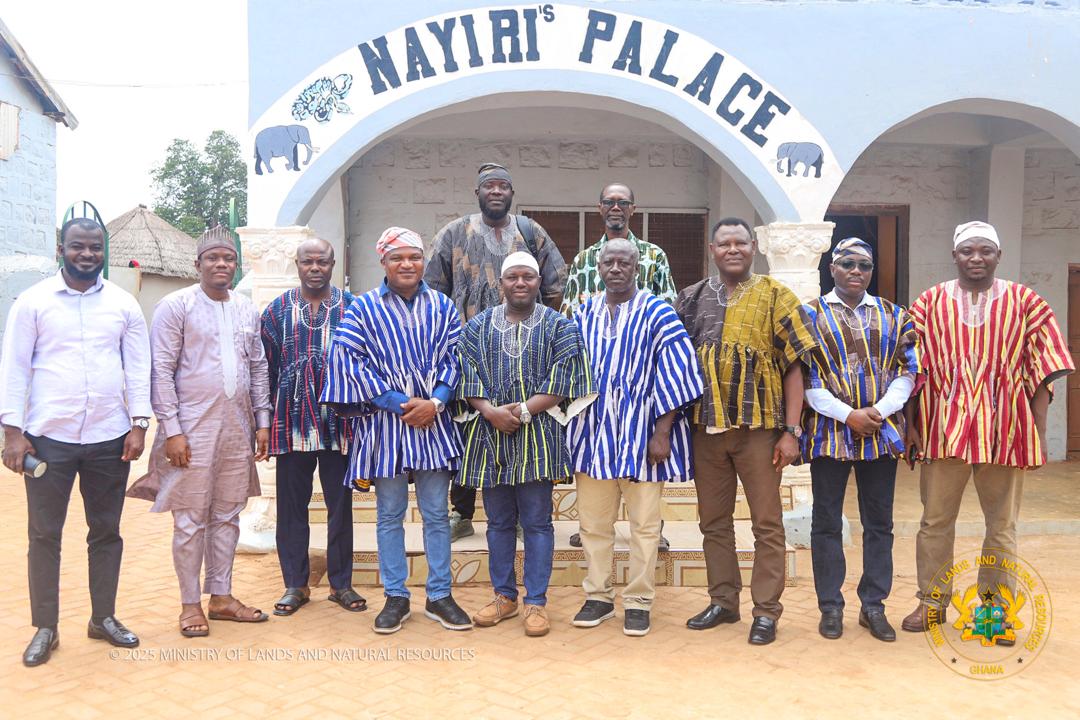
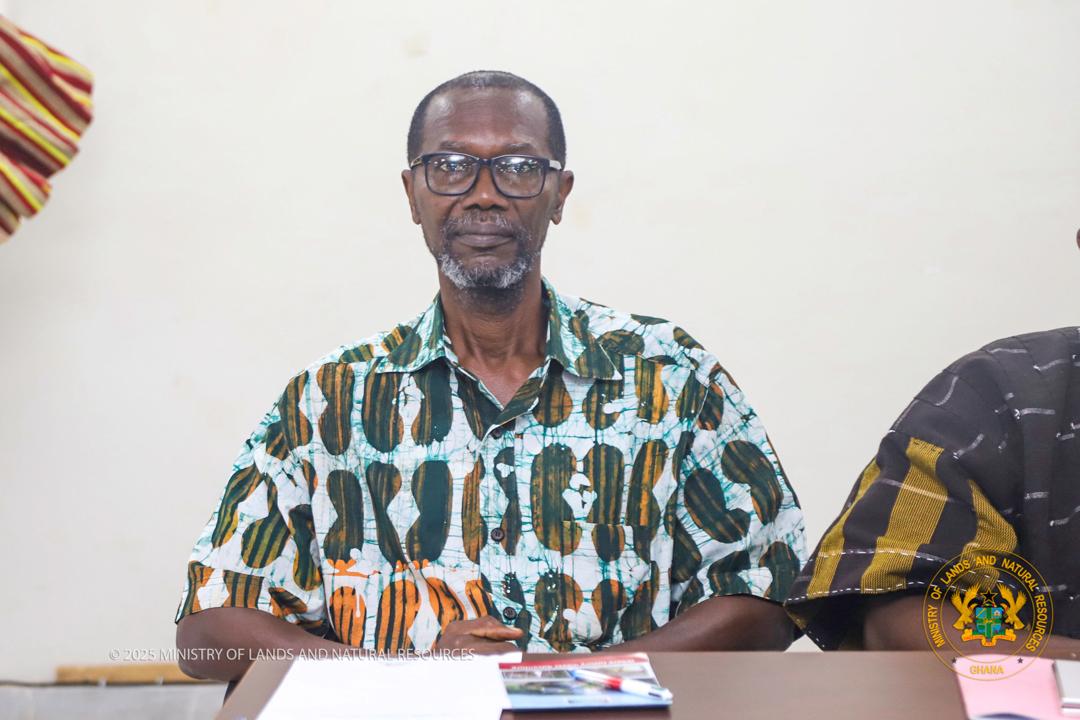
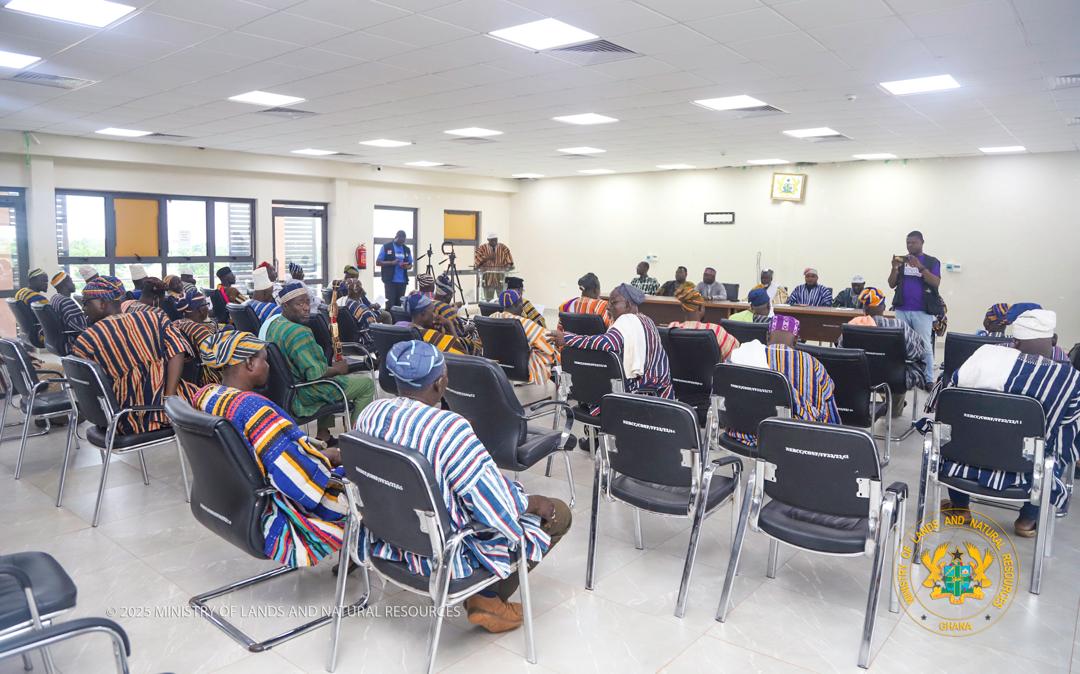
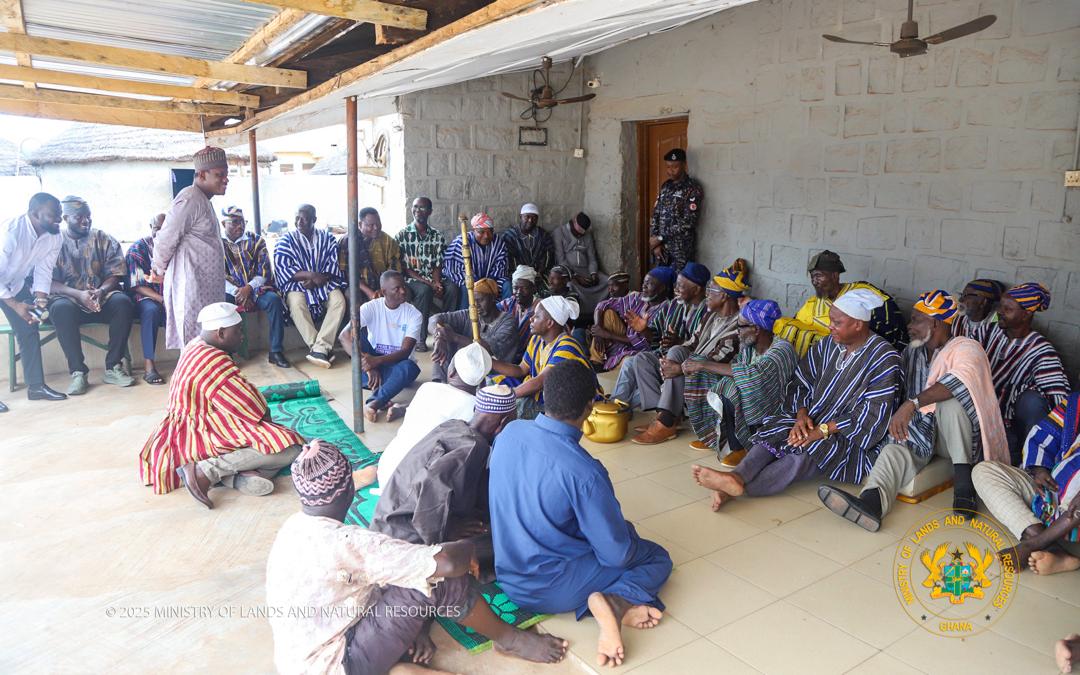
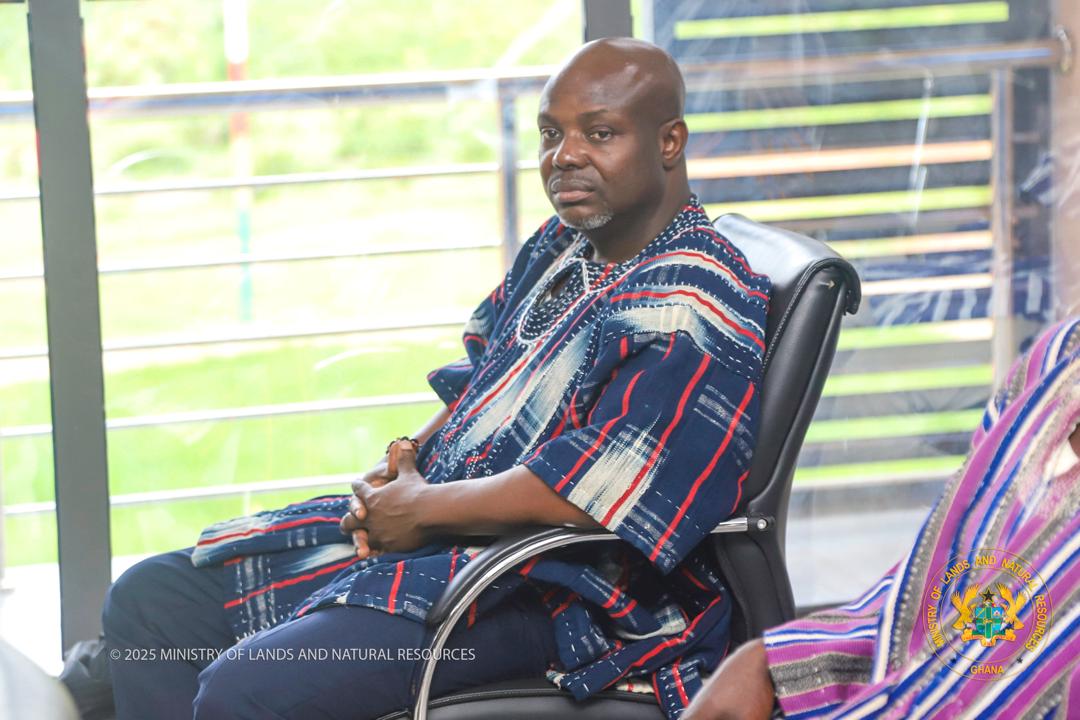
Government Reforms Will Make Chiefs Key Stakeholders in Mining
Government Reforms Will Make Chiefs Key Stakeholders in Mining
Yaa Naa Abubakari Mahama II, the revered Overlord of the Dagbon Kingdom, has expressed his unequivocal support for the proposed legislative amendment, underscoring the government’s unwavering commitment to inclusive policy formulation and the pivotal role that traditional leadership plays in configuring Ghana’s mining terrain.
In the keynote address, delivered by his esteemed representative, Naa Bapra Zangbalun Yakubu Mahama, Yaa Naa Abubakari Mahama II emphasized that the engagement underscores the government’s sincerity in finding a viable solution to the mining sector’s challenges.
As custodians of the land and direct representatives of our communities, we bear a unique responsibility in the mining sector, ensuring social harmony in the exploration of Ghana’s minerals.
Yaa Naa noted that the transformation of Ghana’s mineral exploration necessitates modern innovations and the infusion of ancient traditional wisdom, which can only be found with the custodians of the land who have nurtured civilizations for over a millennium. ‘We gather here today not merely to discuss mining policy, but to chart a revolutionary path that will make Ghana the beacon of sustainable mining for all of Africa,’ the Overlord added.
As we witness the devastating effects of irresponsible mining – our rivers turning turbid, our farmlands becoming barren, and our youth abandoning education for quick riches in galamsey pits – we must introspectively ask ourselves: Are we faithful stewards, or are we complicit in the destruction of our heritage? The time for half-measures is over. Ghana must lead a mining revolution that proves to the world that African nations can extract wealth from the earth while leaving it more prosperous than we found it.
In a passionate plea, Yaa Naa urged small-scale miners to form powerful cooperatives that can share expensive equipment, access international markets, learn best practices, and protect the environment collectively. He also proposed proven approaches from around the world that have transformed mining into a force for sustainable development.
The Overlord challenged the Minerals Commission to think beyond incremental improvements and instead implement bold, transformative policies that can create immediate wins, build long-term transformation, and ensure that nobody is left behind. Some of these policies include:
Fast-track licensing for certified sustainable miners
- Tax incentives for miners who exceed environmental standards
- Guaranteed purchase agreements for responsibly mined minerals
- Mining high schools that produce technically skilled youth
- Research and development centers that innovate Ghanaian mining solutions
By implementing these revolutionary approaches, Ghana’s mining sector can double its contribution to GDP within five years, create 500,000 new sustainable jobs, generate $5 billion annually in mineral exports, and transform 1,000 communities from poverty to prosperity.
In his address to the Northern Regional House of Chiefs, Mr. Isaac Andrews Tandoh, Deputy CEO of the Minerals Commission, emphasized that the review process reflects the government’s commitment to aligning Ghana’s mining regulatory framework with contemporary challenges and opportunities. He commended the visionary leadership of Yaa Naa and acknowledged his tireless efforts in promoting responsible mining practices and land preservation.
Nyelinbolgu Naa Yakubu Andani Dassana underscored the paramount importance of active participation from all attendees in shaping a comprehensive and well-informed policy.
Mr. Benjamin Aryee, former CEO of the Minerals Commission, presented a comprehensive review of the 2014 Mining Policy, while Josef Iroko, Manager in charge of Legal, highlighted the proposed amendments to the Minerals and Mining Act, 2006 (Act 703).
The proposed amendment aims to establish a more resilient, transparent, and sustainable mining sector in Ghana by addressing prevailing vulnerabilities, aligning with global best practices, and fostering prudent resource stewardship, thereby ensuring the long-term benefits of the nation’s mineral wealth.
END.
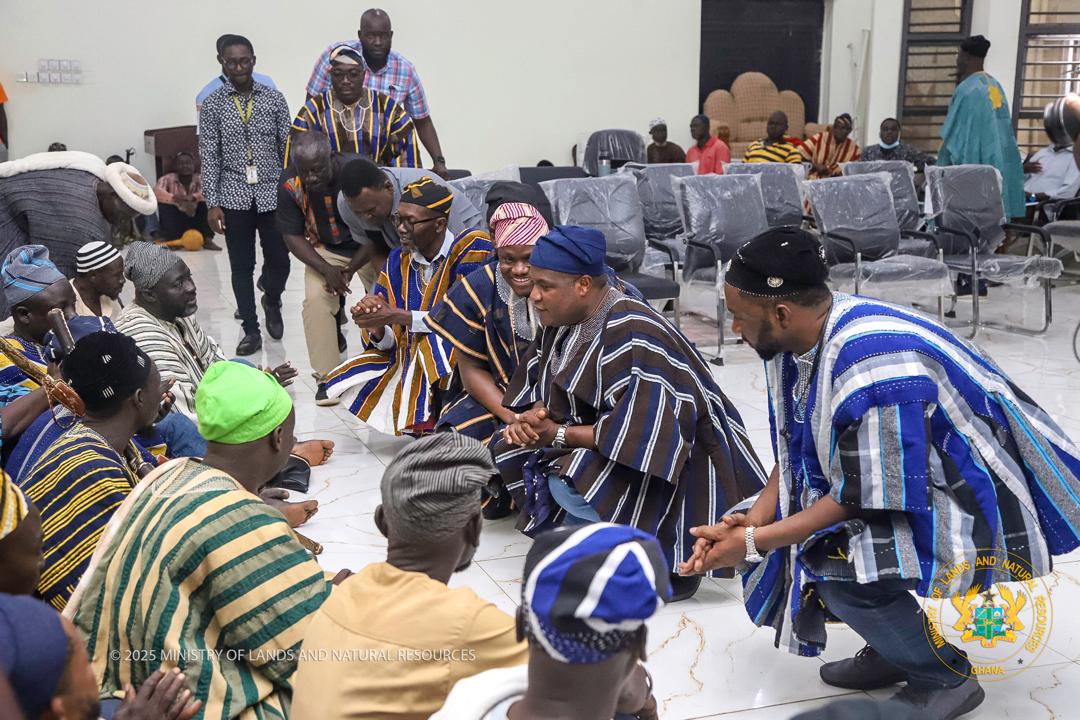
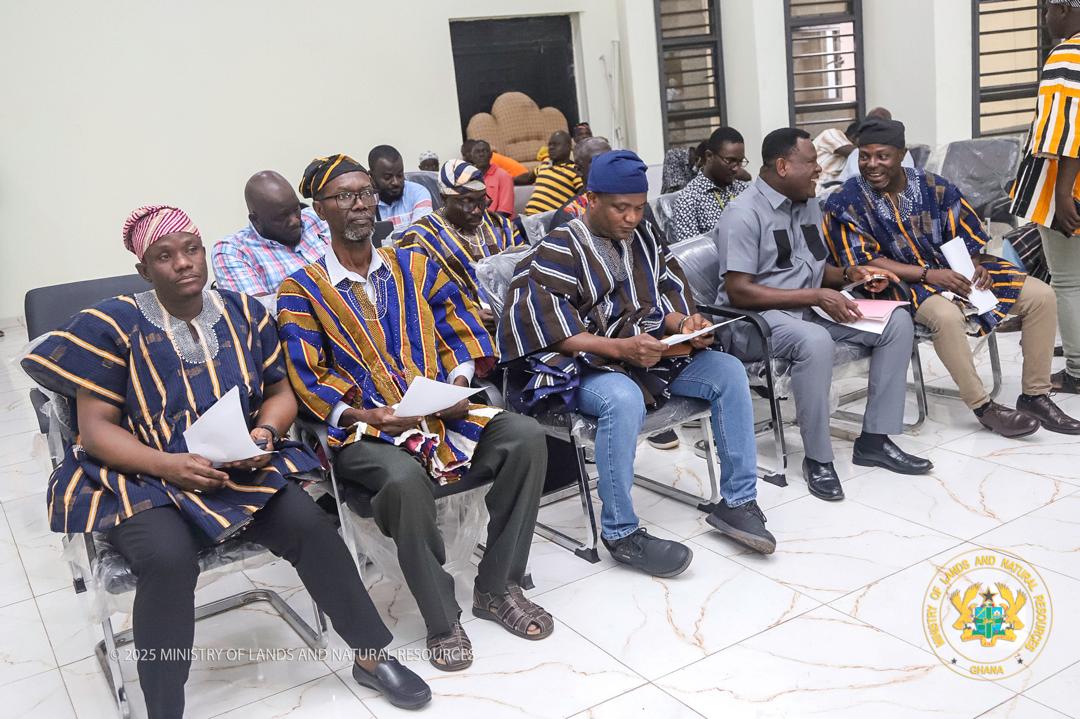
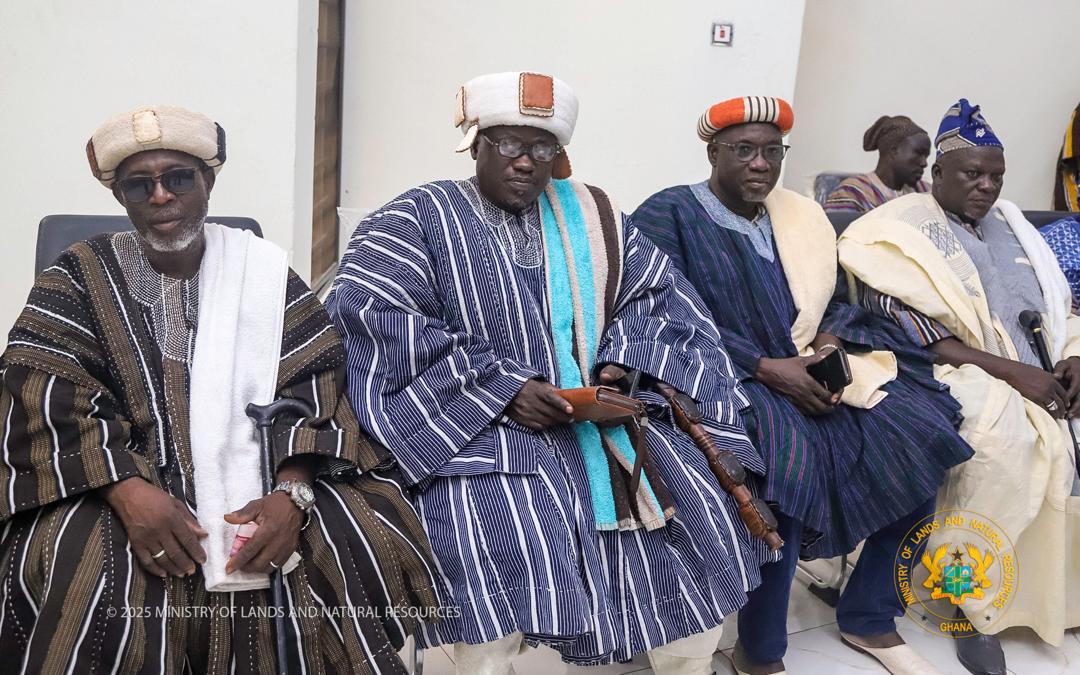
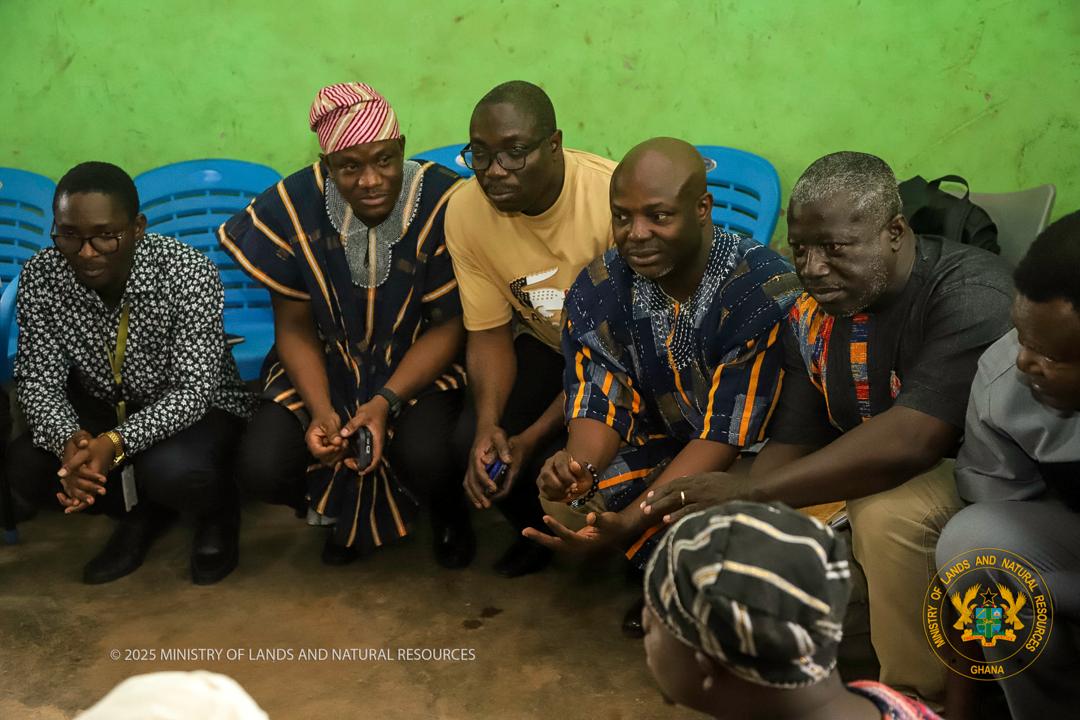
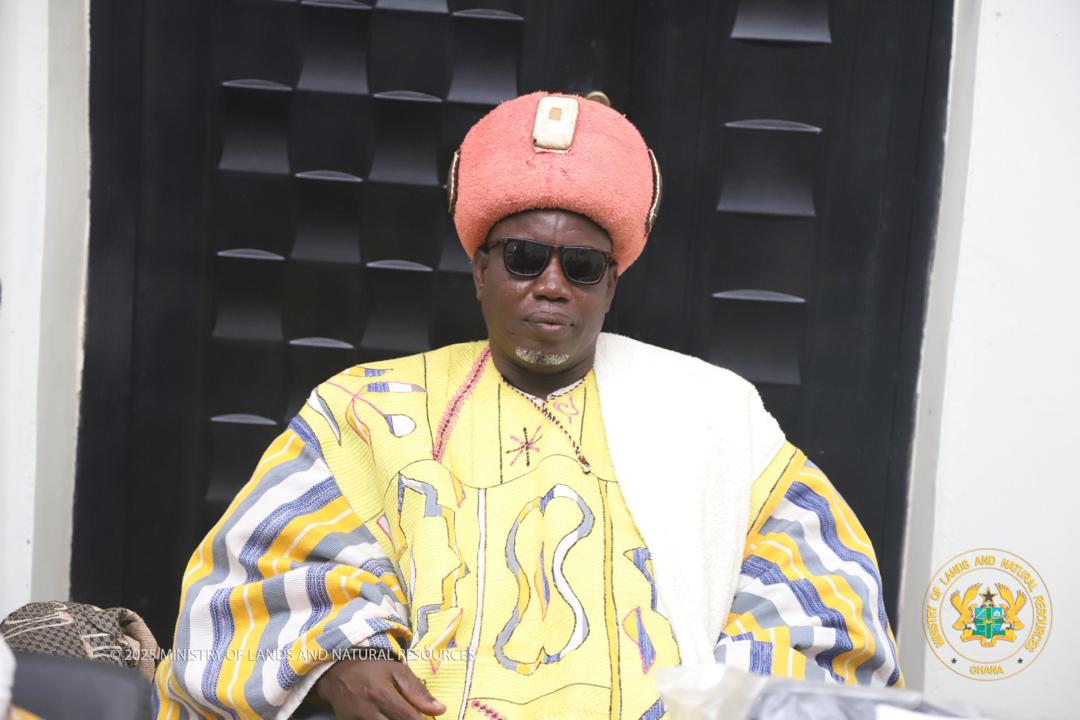
Lands Minister Commissions 530 Blue Water Guards at Ezinlibo, Western Region
Lands Minister Commissions 530 Blue Water Guards at Ezinlibo, Western Region
Friday, July 25, 2025 – In a bold step toward preserving Ghana’s water bodies and combating illegal mining, the Minister for Lands and Natural Resources, Hon. Emmanuel Armah-Kofi Buah (MP), commissioned 530 new Blue Water Guards. The colorful ceremony was held at the Western Naval Command in Ezinlibo, marking the graduation of the second cohort under the government’s flagship Blue Water Initiative.
This latest cohort brings the total number of trained guards to 983, with 453 graduating in Phase 1 and the current 530 in Phase 2. The initiative aims to train a total of 2,000 guards as part of a comprehensive strategy to combat illegal mining.
The initiative, a joint effort between the Ministry and the Minerals Commission aims to safeguard Ghana’s rivers and lakes from environmental degradation, particularly from illegal mining activities. The Commission was represented by Mr. Emmanuel Kwamena Anyimah, Deputy CEO, Support Services.
Commander Samuel Kwaku Boateng-Asiedu, the Acting Naval Base Commander at Ezinlibo, provided an overview of the rigorous, three-phase training program. The initial phase focused on essential drills, first aid techniques, and basic fitness and endurance. Phases two and three advanced to include swimming, basic boat handling, evidence collection, survival techniques, assault river crossing, search and cordon techniques, and practical exercises. These modules have equipped the trainees with the necessary skills for effective riverine operations and intelligence gathering. Commander Boateng-Asiedu also highlighted a beach cleanup undertaken by the recruits, emphasizing its role in instilling patriotism.
Expressing confidence in the new guards’ abilities, Commander Boateng-Asiedu urged them to be prepared for the demanding tasks ahead. He stressed the paramount importance of integrity, instructing graduates to avoid any acts of corruption and eschew all unlawful activities.
Presiding over the ceremony, the Minister for Lands and Natural Resources, Hon. Emmanuel Armah-Kofi Buah (MP), praised the recruits for their discipline and resilience throughout the intensive four-week training programme. “These graduands are not just guards—they are the eyes, ears, and frontline defenders of our communities,” Minister Buah declared. “They are the vanguard in our fight against the wanton destruction of our water bodies, on which our very lives depend.”
Hon. Buah underscored the critical importance of protecting Ghana’s water bodies, which are vital for drinking water, agriculture, and livelihoods, but are currently being severely polluted by illegal mining. He clarified, “Mining is not the enemy; the enemy is the lawlessness that has turned this sector into a threat.”
The Minister explained that the Blue Water Initiative is a comprehensive strategy designed to rescue the rivers and enforce sustainable practices. The 530 new recruits, drawn from the Savannah, Western North, and Upper West Regions, will be responsible for monitoring and protecting rivers, enforcing environmental laws, and engaging with local communities to promote responsible water resource stewardship.
Hon. Armah-Kofi Buah charged the new recruits to uphold their responsibilities with courage and integrity, reiterating that they are not merely guards but “community vanguards entrusted with a sacred duty.” He invoked the spirit of the “Young Pioneers,” urging them to embody this commitment. He also highlighted the government’s dedication to supporting the guards and local communities, including the upcoming Responsible Cooperative Mining and Skills Development Programme, which aims to empower local miners with legal and sustainable alternatives.
The Minister appealed to all Ghanaians for their support, stating, “Blue Water Guards, be assured, the people of Ghana are behind you, and together, we will restore our rivers to their rightful state: clean, blue, and life-giving. We are proud of your commitment during training, and we expect nothing less than your best in the field.”
Hon. Buah further commended other state entities, including the Ministry of Defence, National Security, and the Environmental Protection Authority, for their collaborative efforts in ensuring the initiative’s success. He specifically acknowledged Colonel Dominic Buah, Director of Operations, National Anti-Illegal Mining Secretariat (NAIMOS), which serves as the operational nerve-center for Ghana’s fight against illegal small-scale mining and its associated environmental degradation, particularly in water bodies where the guards’ work will be focused.
Addressing the graduands, Hon. Buah explained that the guards will be deployed in strategically positioned teams along designated sections of the river bodies to ensure effective command and control. He emphasized the importance of accountability and transparency, stating, “Your daily situational reports, weekly summaries, and quarterly evaluations will be channeled through the Ghana Navy to the Minerals Commission and the Ministry.”
As Ghana continues to grapple with the environmental and economic consequences of illegal mining, the commissioning of these 530 Blue Water Guards signifies a renewed and robust commitment to sustainable resource management and national development.
Present at the ceremony were Hon. Yusif Sulemana (MP), Deputy Minister of Lands and Natural Resources; Prof. Samuel Jerry Yaw Kuma, Advisor to the Lands Minister; Commodore Samuel Ayelazonu, Flag Officer, Commanding the Western Naval Command; and Naval Staff Rear Admiral Godwin Livinus Bessing. Other notable dignitaries included Nana Koloro Blay IV, Chief of Ezinlibo, and Nana Ehwie Kwasi II, Chief of Allowule.
END.
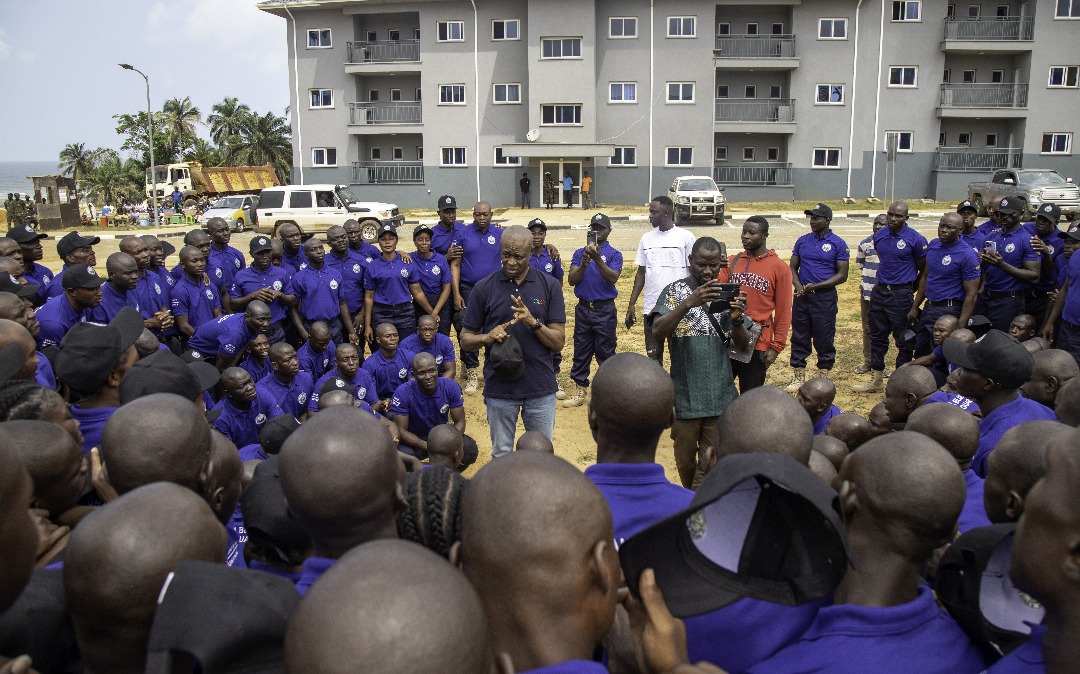
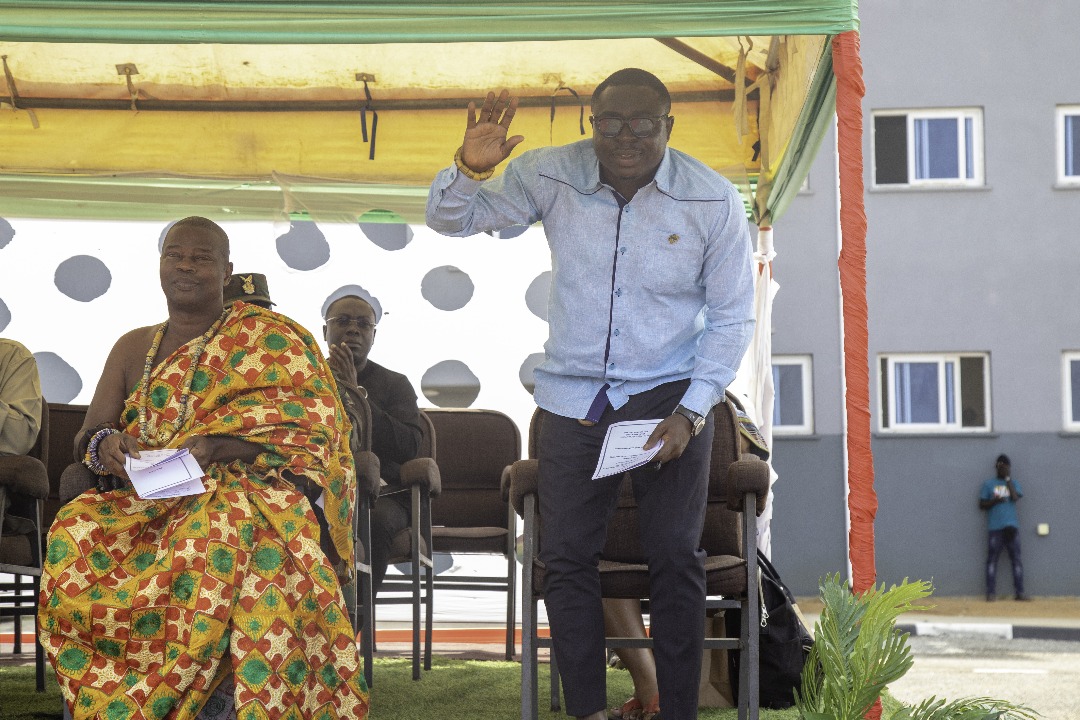
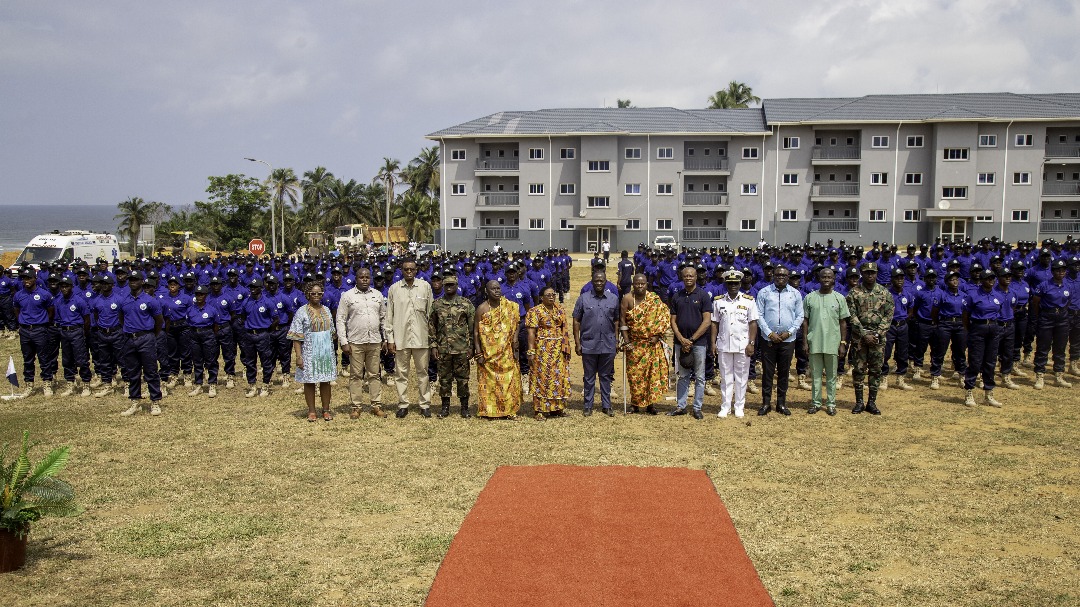
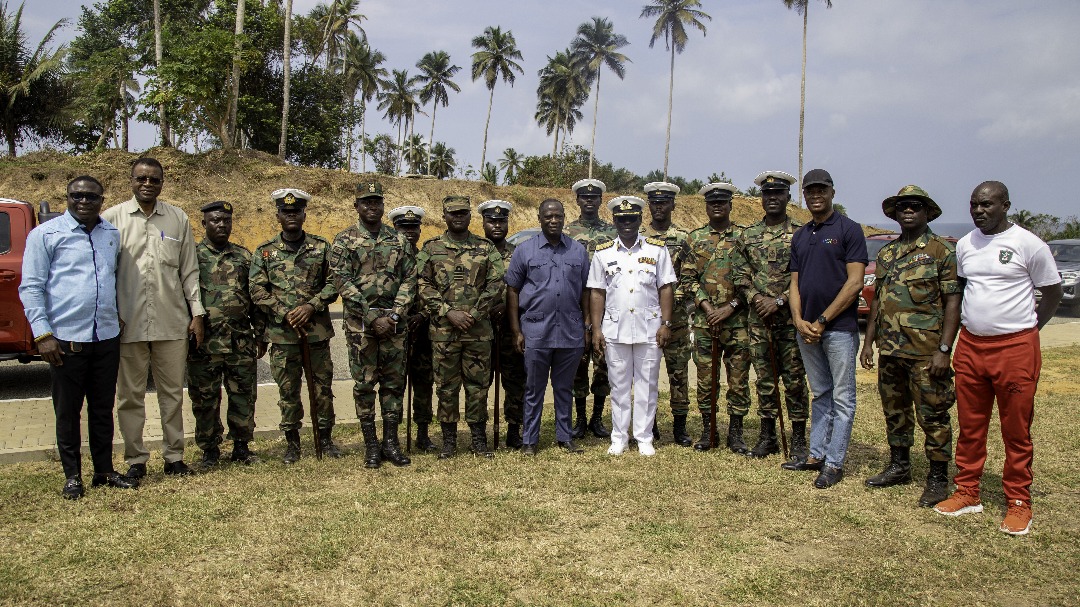
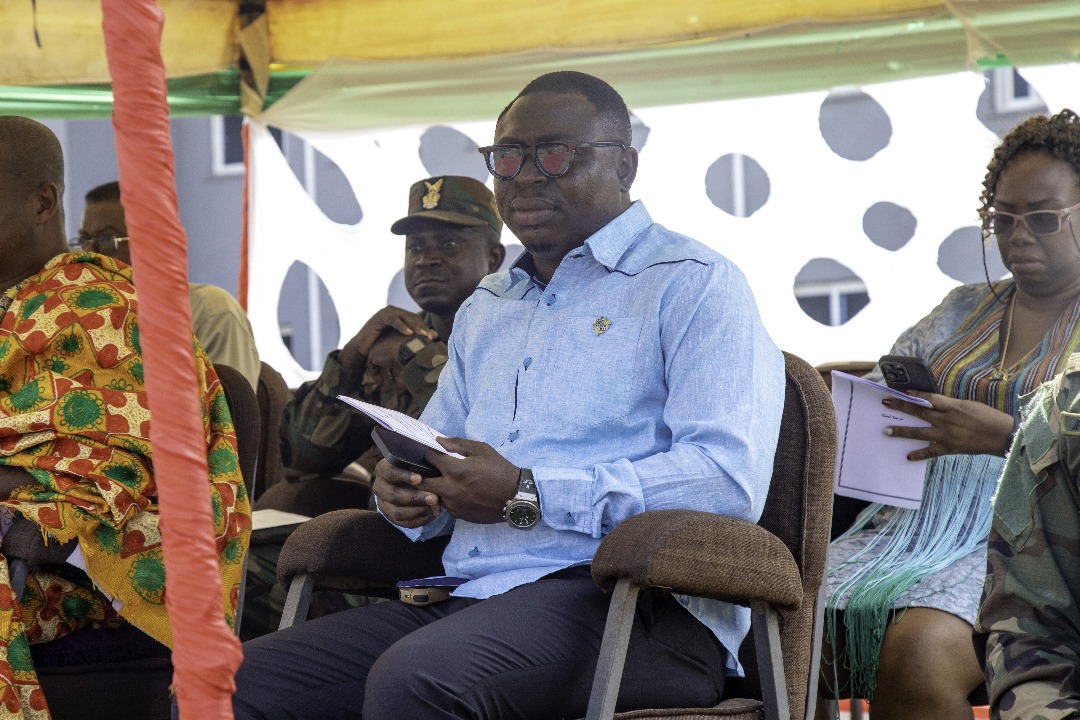
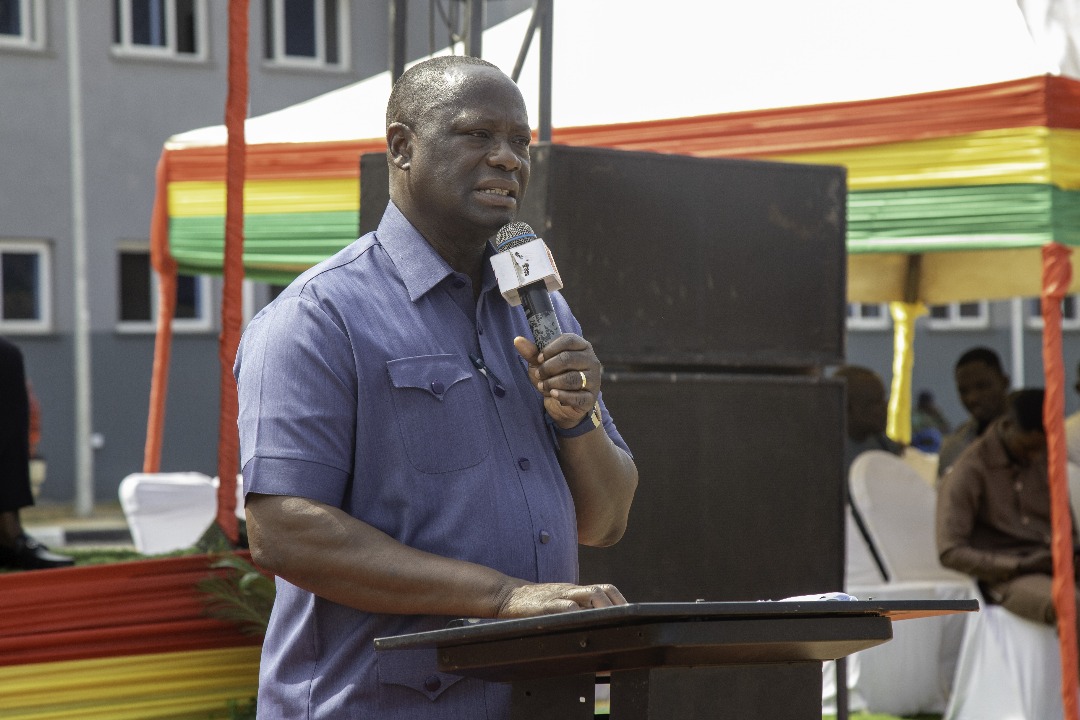
Traditional Authorities Get Boost in Ghana’s Mining Sector Reforms
Traditional Authorities Get Boost in Ghana’s Mining Sector Reforms
Addressing the Greater Accra Regional House of Chiefs, Mr. William Ntow Boahene, Esq., Chairman of the Minerals Commission Board, underscored the government’s commitment to aligning Ghana’s mining regulatory framework with contemporary challenges and opportunities through a comprehensive review process.
The Board Chairman stated that Stakeholder engagement, particularly with traditional authorities and community leaders, is paramount in this endeavor, ensuring that policies and frameworks are informed by the lived experiences of our people.
He noted that as custodians of land and culture, chiefs play a pivotal role in shaping legislative instruments that govern the utilization and conservation of our natural resources. While our current mining legislation has served us well, the pressing challenges of environmental degradation, water pollution, and illegal mining necessitate a bold and visionary review of our legal architecture, he added.
The stark reality is that our rivers are drying up, farmlands are being ravaged, and ecosystems are being irreparably damaged, imperiling the prospects of future generations. Therefore, this review must be forward-thinking and proactive.
King Professor Odaifio Welentsi III, President of the Greater Accra Regional House of Chiefs, commended the Minerals Commission for convening the engagement, highlighting the vital role of traditional authorities in the mining sector.
He noted that while the Constitution vests mineral ownership in the President, traditional authorities play a crucial role in land administration and benefit sharing.
The law requires notification of chiefs before granting mineral rights and mandates payment of annual ground rents on school lands.
However, revenue due to traditional authorities and stools is often negligible, underscoring the need for a more conscious partnership between stakeholders.
Odaifio Welentsi III, noted that the law also provides for traditional authority representation in compensation negotiations and resettlement monitoring committees, as well as appointment of traditional rulers to the Minerals Development Fund governing board.
King Welentsi III commended the Commission’s achievements, particularly the introduction of a nine-year limit on prospecting licenses, which will promote responsible mining practices through an ‘use it or lose it’ approach. Kudos to the Commission for this initiative.
Mr. Josef Iroko, Manager of Legal, provided an in-depth analysis of the current state of Ghana’s mining laws and regulations, as well as administrative and regulatory guidelines. He emphasized the significance of Parliamentary ratification of mining leases, underscoring the critical role of legislative oversight in ensuring accountability and transparency in the mining sector.
Additionally, Mr. Iroko highlighted the rights and responsibilities of District Mining Committees in overseeing mining activities within their jurisdictions, ensuring that local communities are engaged and involved in the decision-making process. Notably, he stressed the crucial role of Chiefs and traditional leaders as allodial owners of the land, entitled to compensation as stipulated in Ghana’s mining laws.
Mr. Iroko also presented a comprehensive overview of the Minerals and Mining Law, Act 2006 (Act 703), and outlined significant amendments to Ghana’s mining laws, providing valuable insights into the evolution of the country’s mining regulatory framework.
Mr. Benjamin Aryee, former Chief Executive Officer of the Minerals Commission and Advisor to the Minister, presented a comprehensive review of the 2014 Mining Policy, highlighting salient new provisions. Notably, he emphasized the integration of the Green/Critical Minerals Policy, which underscores the imperative of sustainable mining practices in the face of burgeoning global demand for critical minerals.
Furthermore, Mr. Aryee discussed the impact of emerging global trends, including climate change and the increasing importance of Environment, Social, and Governance (ESG) standards, on Ghana’s mining sector.
He also highlighted key government policies, such as the introduction of Cooperative Mining and the recategorization of mining, which includes the creation of a medium-scale category. ‘Emerging global trends, such as climate change and the growing significance of transition minerals, coupled with challenges arising from implementation over the past decade and the strategic importance of small-scale mining to Ghana’s economy, necessitate a paradigm shift in our approach,’ the statement asserted.
This review underscores the need for a forward-thinking and adaptive mining policy framework that addresses the complexities of the modern mining landscape.
END

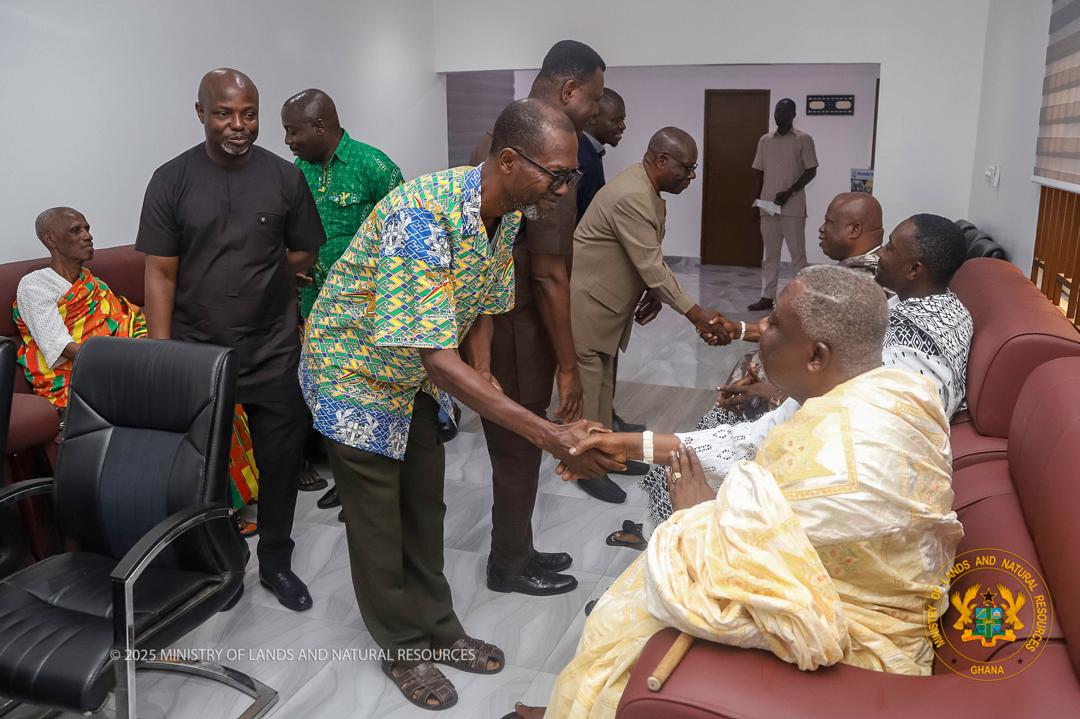
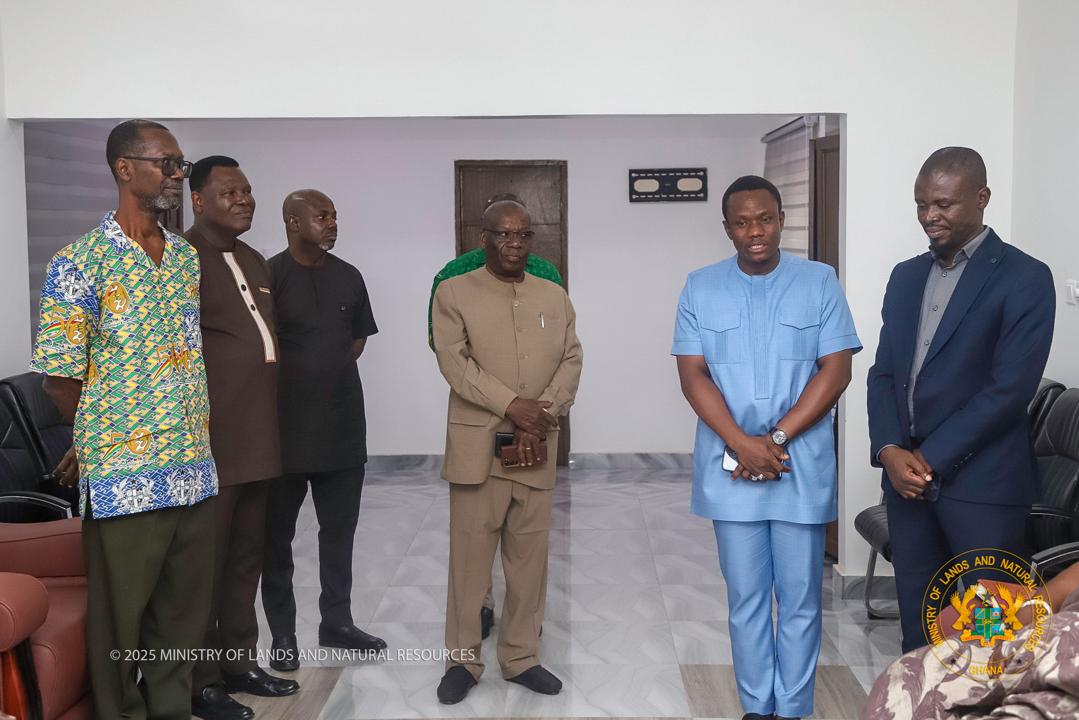
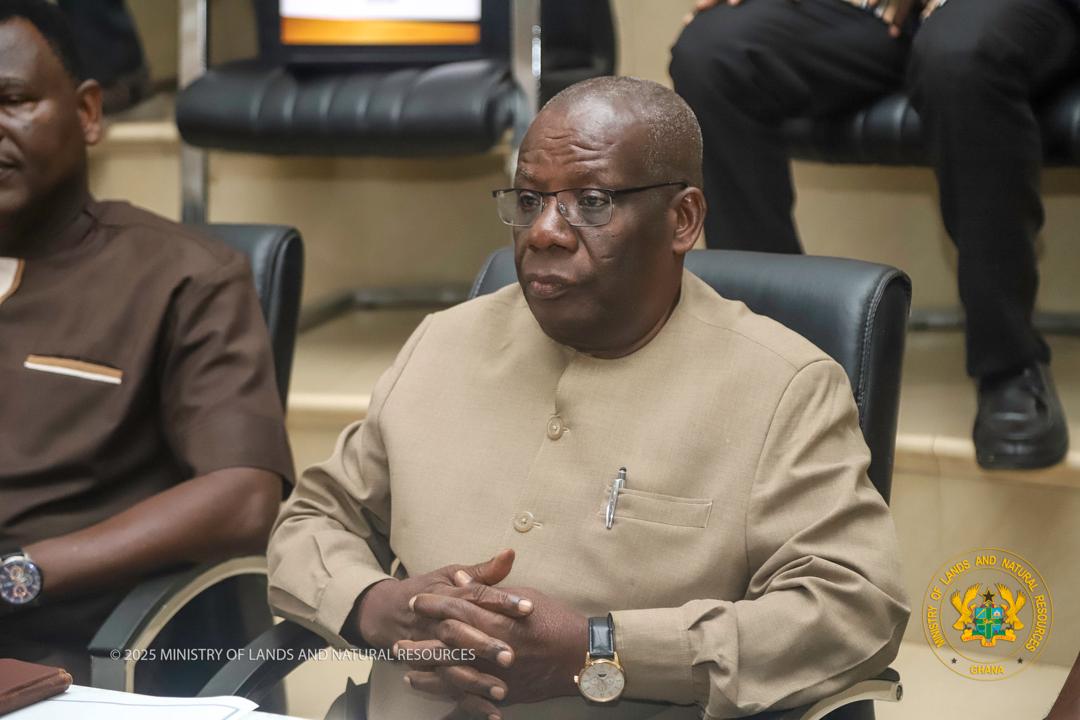
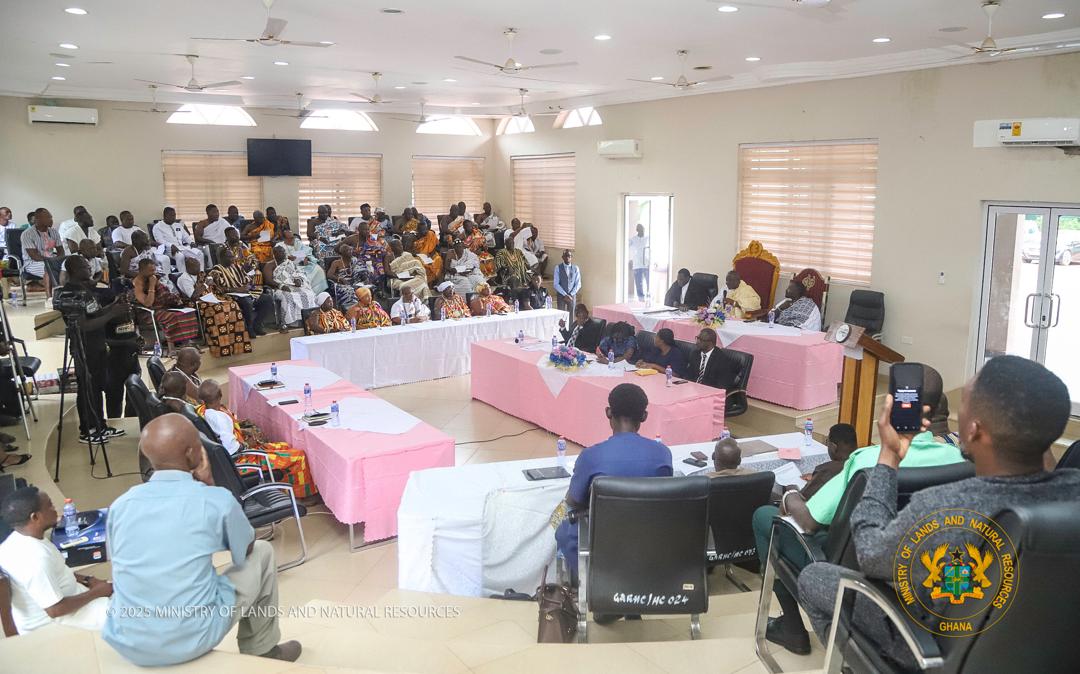
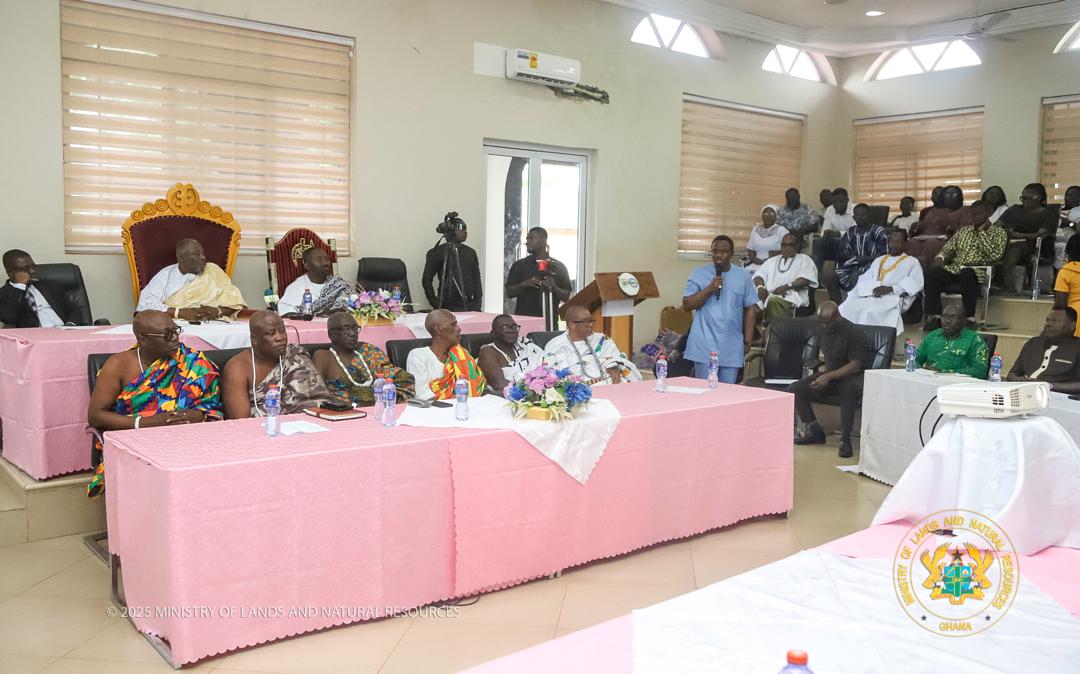
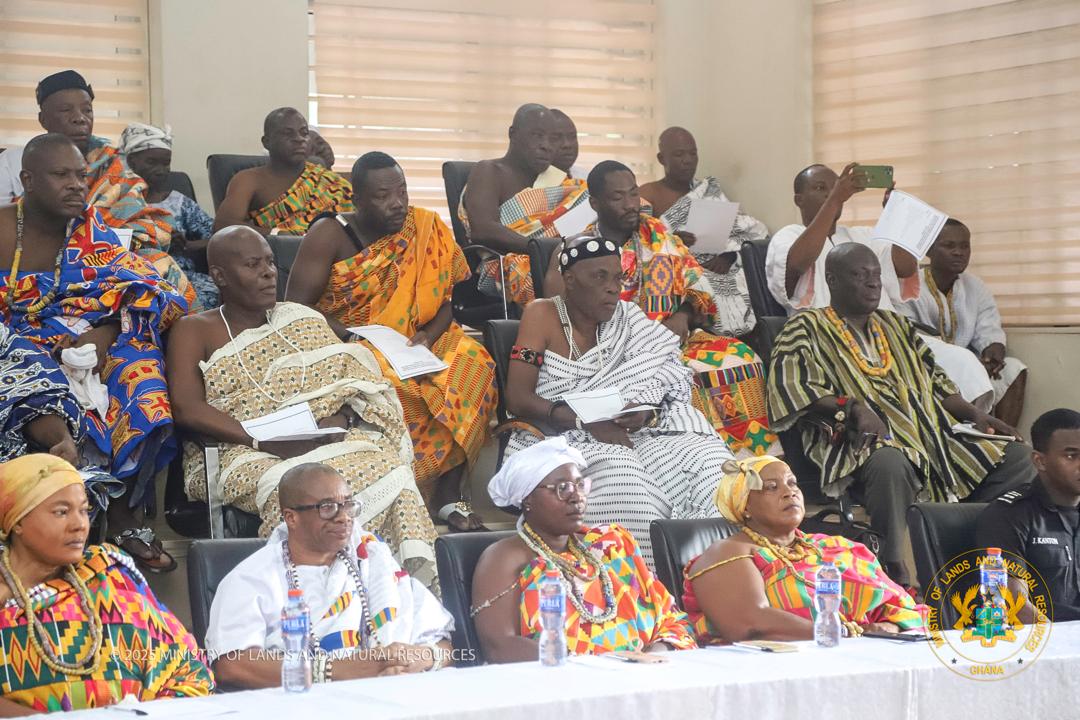
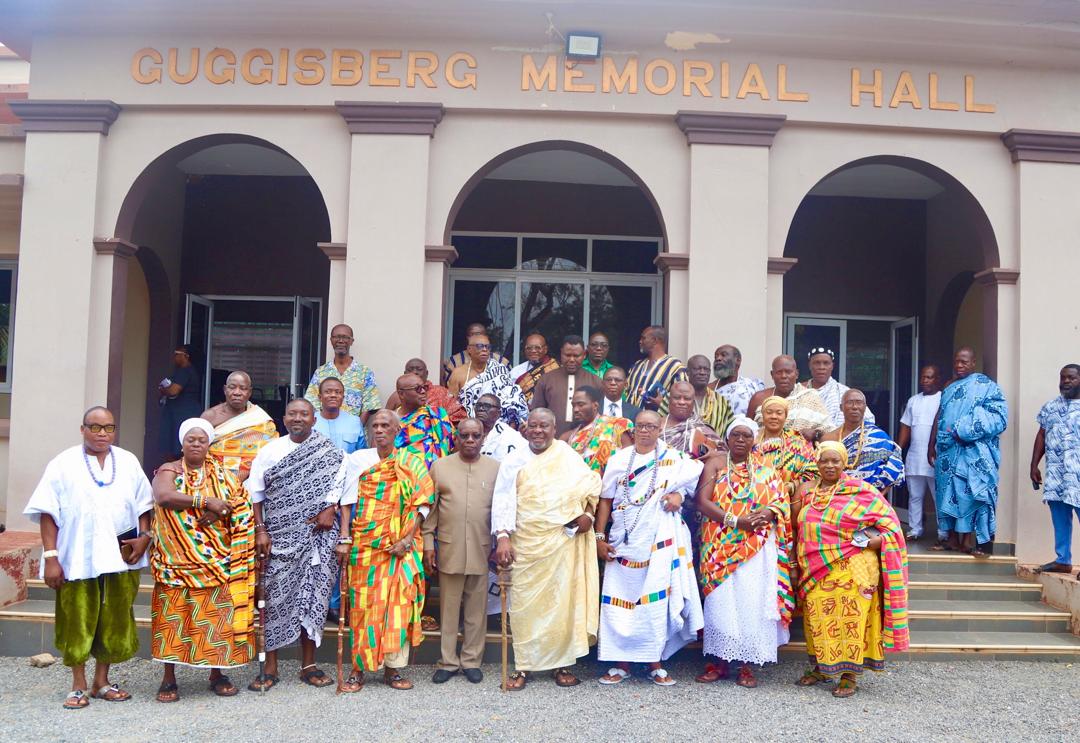
Minerals Commission Urges Deeper Collaboration with Chiefs on Mining Law Review
Minerals Commission Urges Deeper Collaboration with Chiefs on Mining Law Review
The Minerals Commission’s Board Chairman, Mr. William Ntow Boahene (Esq), has underscored the importance of collaborating with the Eastern Regional House of Chiefs to tap into their collective expertise and insights on the Minerals and Mining Law Act 2006 (Act 703) and its amendments, which have been in effect since 2006.
He called for a more transparent process, ensuring traditional leaders are involved at every stage of the lease acquisition. Mr. Boahene emphasized the need for long-term stewardship and collaborative efforts to protect the environment and preserve natural resources for future generations. Meaningful consultation with mining communities is a crucial aspect of mineral licensing. He stressed the importance of engaging landowners throughout the process.
He reiterated the need to engage with the Chiefs, as custodians of the land, to garner their invaluable input. This consultation is crucial before we finalize our report for submission to Cabinet and subsequently to Parliament, he remarked.
Madam Evelyn Korang, Honorable Council of State member from the Eastern Region also joined the gathering in reviewing the mining policy and legal frameworks. She noted that the stakeholder engagement, especially with traditional authorities and community leaders, is crucial. Their insights help craft policies and laws grounded in our people’s realities. Chiefs, as land custodians, play a vital role in shaping legal instruments for natural resource utilization and protection. She stated that effective governance relies on active participation from those we serve.
Madam Korang emphasised that the current mining legislation was visionary, but today’s challenges – environmental degradation, water pollution, and illegal mining – require a thorough reexamination. Inaction would jeopardize future generations’ prospects. This review must be bold and forward-thinking, addressing loopholes, promoting responsible mining, safeguarding the environment, empowering local communities, and supporting chiefs’ roles in land management. The Council of State will carefully consider these views when formally presented before being tabled in Parliament.
Nene Sakite II, representing the Eastern Regional House of Chiefs, emphasized the importance of engaging traditional councils from the outset of the mining process. He noted that current practices often involve superficial interactions, lacking transparency and accountability.
To effectively address issues like illegal mining (galamsey), it’s crucial to involve Chiefs and local communities meaningfully. He suggested reserving specific areas for indigenous people and reviewing the royalty formula to ensure fair compensation. The Chief expressed appreciation for the engagement and promised to share detailed feedback, highlighting the need for continued collaboration as major stakeholders.
Mr. Benjamin Aryee, former CEO of the Minerals Commission and advisor to the Minister, delivered an insightful address, leveraging his extensive expertise to enrich the discussion and inform stakeholders.
Furthermore, Mr. Josef Iroko, representing the CEO of Minerals Commission, provided expert analysis, underscoring the critical need for robust monitoring and enforcement frameworks to curb illegal mining and ensure adherence to regulatory standards.
The Commission acknowledges this imperative and is committed to conducting effective consultations. As industry standards continue to evolve, we recognize the need to stay ahead. While we reap economic benefits from mineral extraction, we also recognise that the environmental and social impacts will outlast us, underscoring the importance of responsible practices.
END.
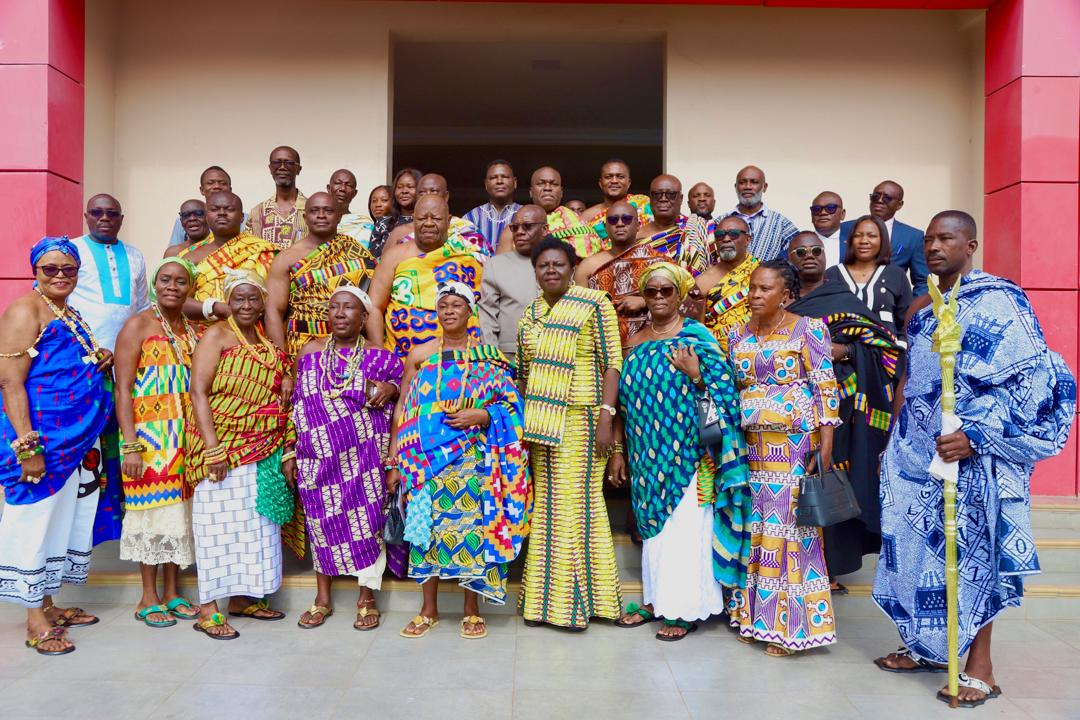
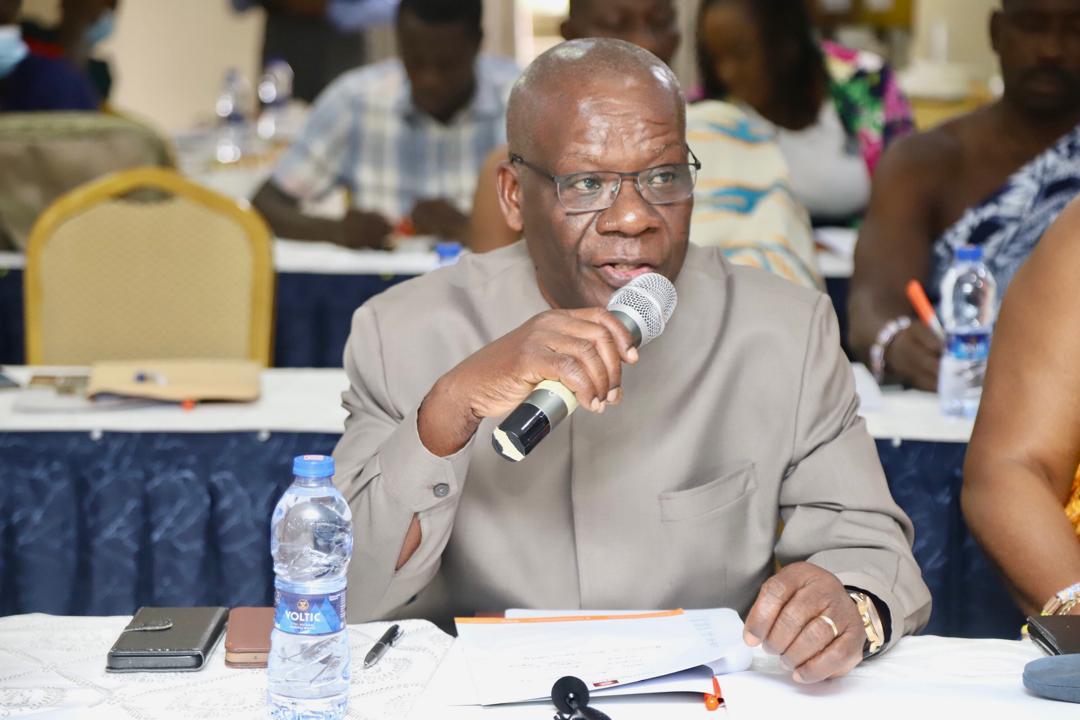
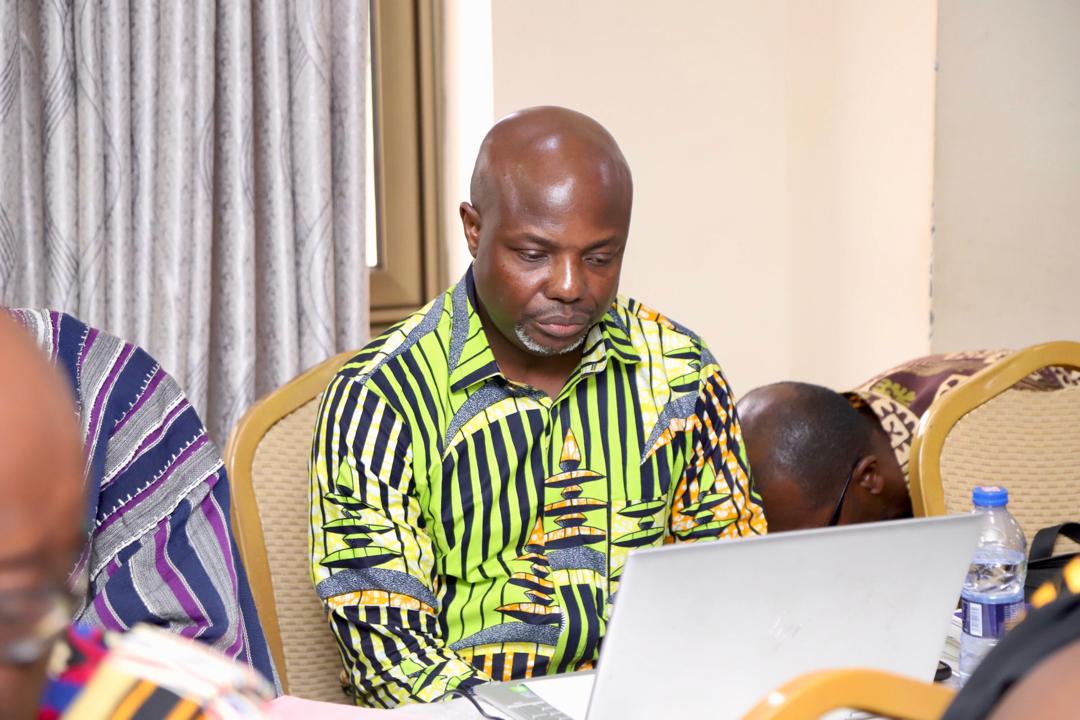
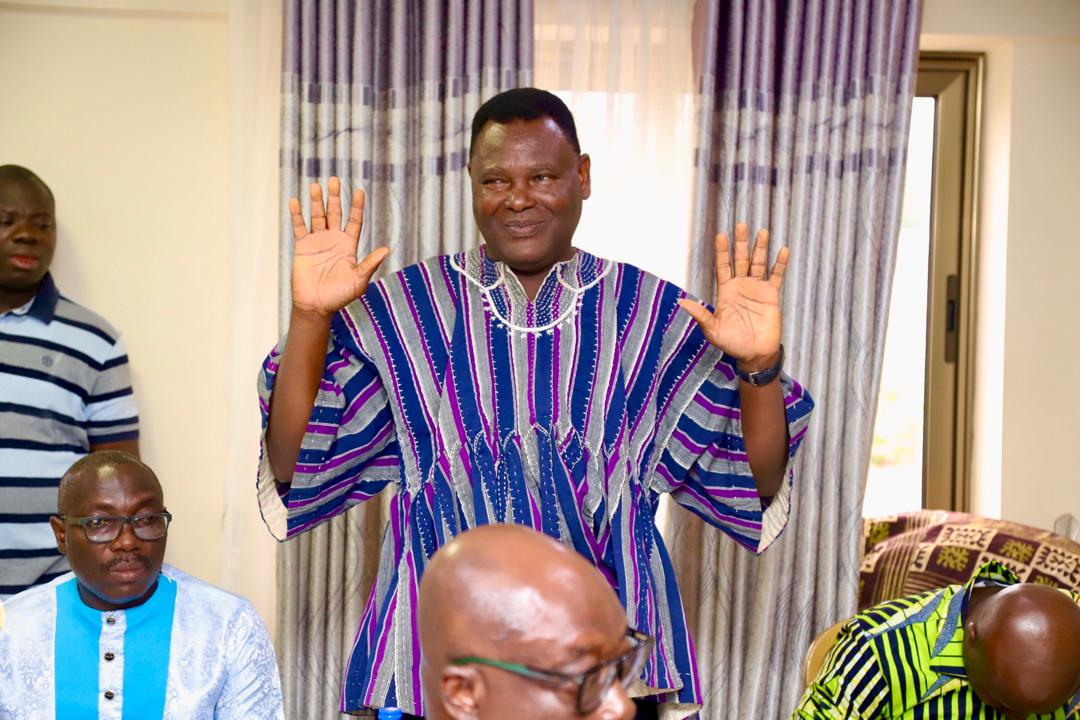
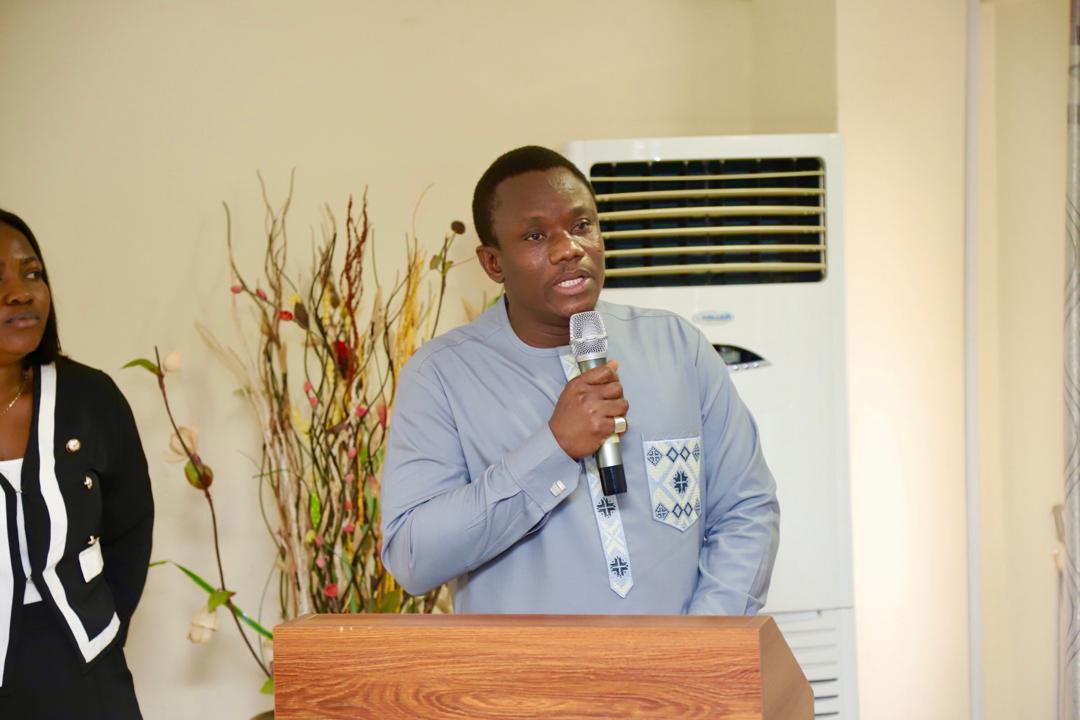
GOVERNMENT DEEPENS RELATIONSHIP WITH TRADITIONAL AUTHORITIES THROUGH POLICY AND LEGAL REFORMS
GOVERNMENT DEEPENS RELATIONSHIP WITH TRADITIONAL AUTHORITIES THROUGH POLICY AND LEGAL REFORMS
The Honorable Deputy Minister for Lands and Natural Resources, Yusif Sulemana, has underscored the significance of the Ashanti Region as the epicenter of Ghana’s mineral wealth, particularly gold, which has been a cornerstone of livelihoods, economic growth, and historical heritage.
In an address to the Ashanti Regional House of Chiefs on July 18, 2025, Hon. Yusif emphasized that under the esteemed leadership of President John Dramani Mahama, the government is resolute in its commitment to rectify the historical imbalances and secure a more prosperous future for the benefit of all Ghanaians.
“We firmly believe, Nananom, that no mineral right, whether for small-scale, medium-scale, or large-scale mining, should be granted without the full involvement and consultation with traditional authorities,” he stated.
The Deputy Minister further revealed that the endorsement of traditional authorities will be a crucial requirement in the licensing process, ensuring that mining activities align with the needs and values of local communities.
Hon. Yusif announced the introduction of a Cooperative Mining Scheme, an innovative initiative that will enable local cooperatives, under the guidance of traditional authorities, to own and manage mining ventures in a structured and sustainable manner.
The Deputy Minister also commended the visionary leadership of Otumfuo, acknowledging his tireless efforts in promoting responsible mining practices and land preservation. From his interventions in addressing the challenges of illegal mining to his advocacy for sustainable development, Otumfuo has consistently demonstrated that progress must never come at the expense of Ghana’s heritage.
He emphasized that the review presents a timely opportunity to formalize and further leverage this leadership. We solicit your esteemed guidance to:
- Ensure that mining activities prioritize the interests of Ghanaians, rather than solely benefiting multinational corporations.
- Safeguard our lands and water bodies from environmental degradation, thereby preserving the nation’s natural heritage.
- Provide support to cooperative and local miners in establishing lawful and profitable enterprises that contribute to the nation’s economic development.
Nananom, the success of this policy initiative is contingent upon your wisdom and collaborative partnership. We therefore invite your valuable input on the following critical aspects:
- The most effective ways to integrate traditional oversight mechanisms into the licensing process, ensuring that local stakeholders have a meaningful say in mining activities.
- Strategies to strengthen community ownership and participation under the Cooperative Mining Scheme, thereby promoting local economic empowerment and sustainable development.
- Measures to ensure that miners are held accountable to the people and the land, fostering a culture of transparency, responsibility, and environmental stewardship.
The Asantehene, Otumfuo Osei Tutu II, advised that Ghana must move beyond a narrow focus on royalties when discussing the benefits derived from its vast mineral resources, particularly gold. According to the revered monarch, true national development lies in harnessing the full value chain of mineral exploitation, rather than settling for minimal returns in the form of royalties.
Otumfuo noted that while royalties play a role in resource management, they represent only a fraction of the potential wealth embedded in the country’s natural endowments.
He emphasized that Ghana, as a leading gold producer in Africa, must insist on meaningful local participation in mining operations, value addition, and infrastructure development in mining communities. The Asantehene also called for stronger regulatory frameworks to ensure that multinational companies operating in Ghana do not repatriate the bulk of profits without making impactful investments in the country.
He urged the Ministry of Lands and Natural Resources, the Minerals Commission, and traditional leaders to work collaboratively to champion policies that promote value addition and ensure equitable distribution of mining benefits.
He said the Minerals Commission must serve its purpose by helping to stop the devastation of the nation’s forests and water bodies through mining. Otumfuo admonished the Commission to step up its supervisory and monitoring roles to ensure that the right things are done and check the recklessness.
Mr. Martin Ayisi, the CEO of the Minerals Commission highlighted on the proposed amendments to the Minerals and Mining Act, 2006 (Act 703). He stated that the primary purpose of the proposed amendments is to address weaknesses in the current legal framework and enhance the management of the mining sector. Specifically, the amendments aim to tackle issues related to illegal mining, improve royalty collection, regulate foreign participation in small-scale mining, and strengthen environmental and social safeguards.
The proposed amendment aims to establish a more resilient, transparent, and sustainable mining sector in Ghana by addressing prevailing vulnerabilities, aligning with global best practices, and fostering prudent resource stewardship, thereby ensuring the long-term benefits of the nation’s mineral wealth. he added.
Mr. Benjamin Aryee, former CEO of the Minerals Commission and advisor to the Minister, presented a comprehensive review of the 2014 Mining Policy. He spoke at the gathering, bringing valuable expertise to the discussion and sharing his knowledge to further inform the stakeholders.
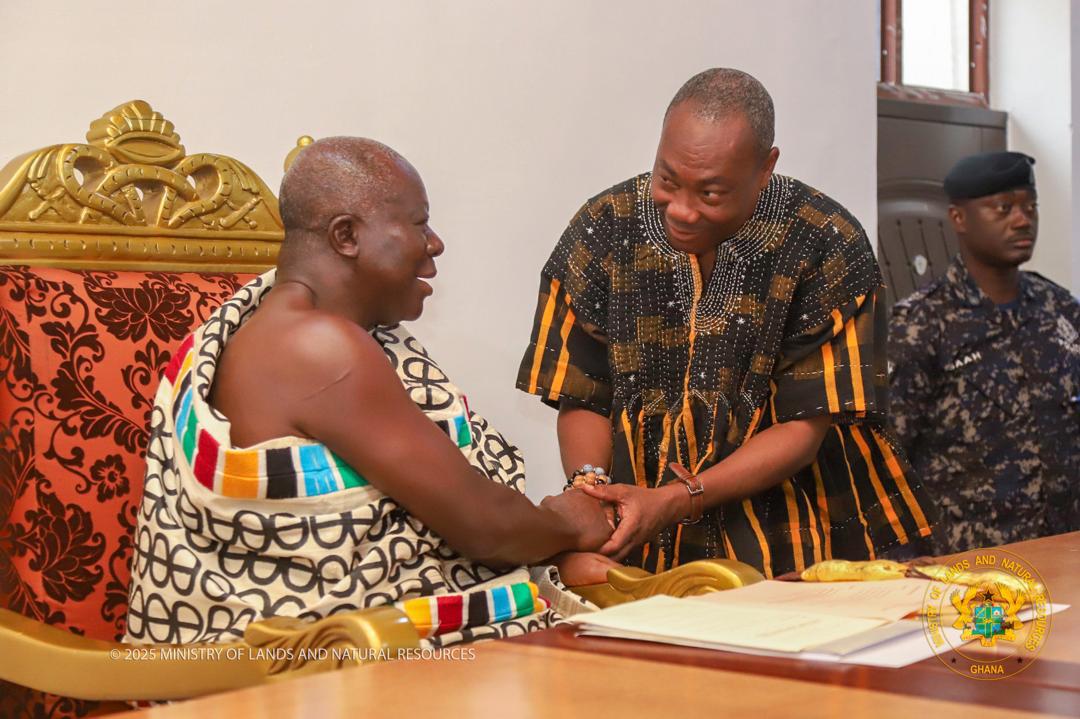
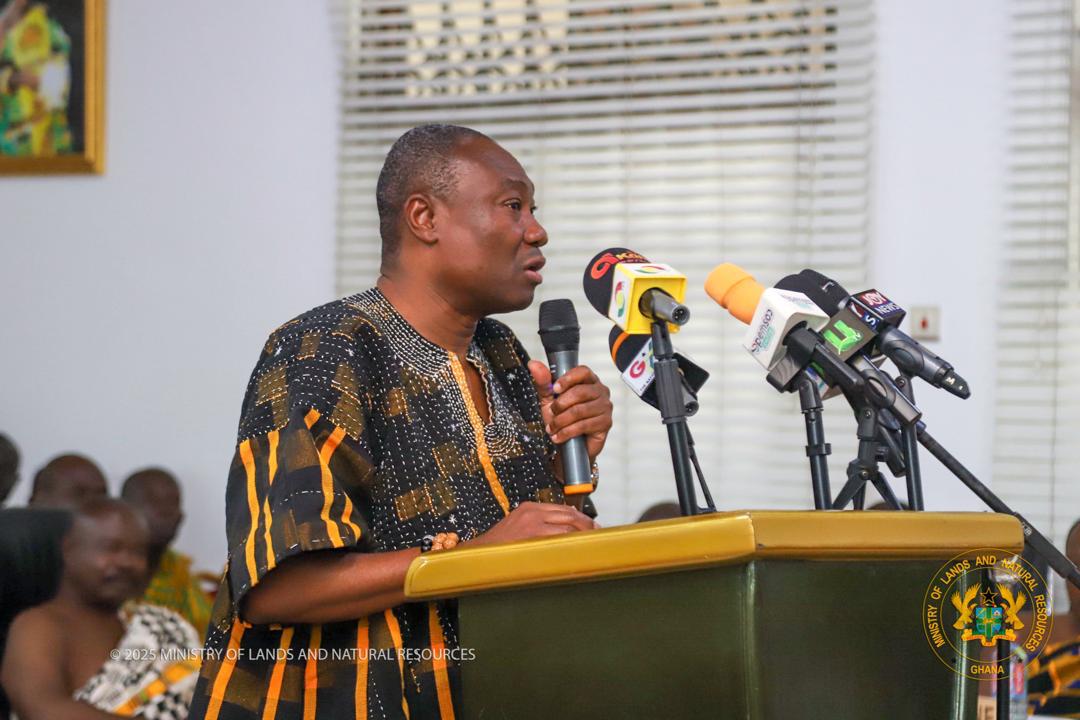
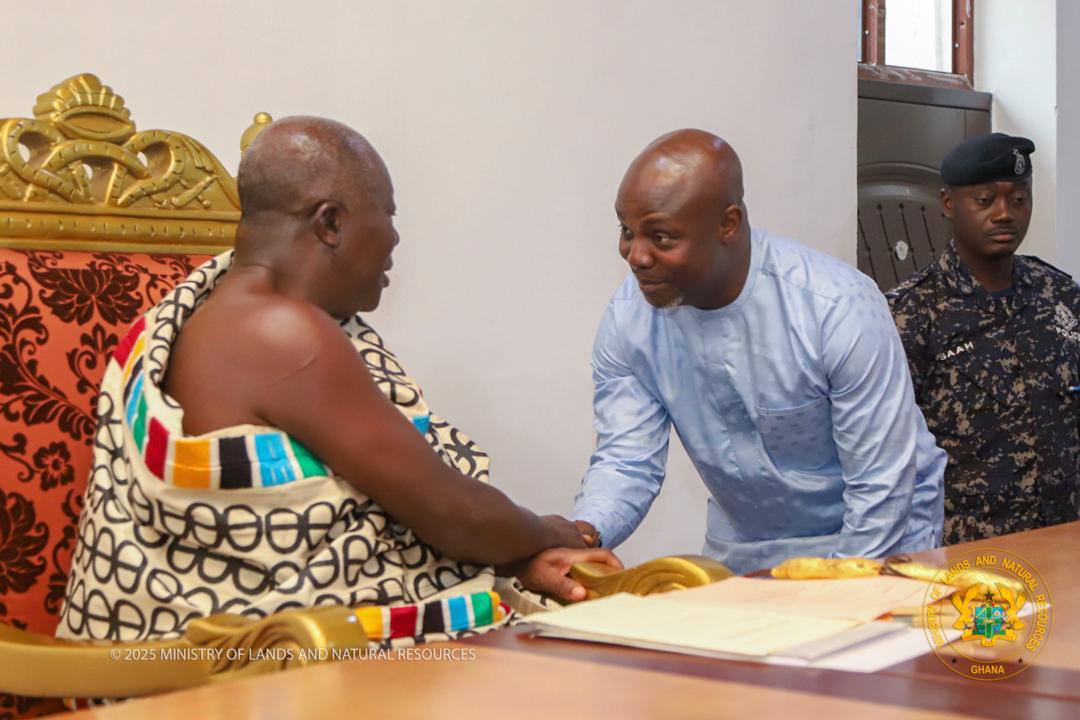
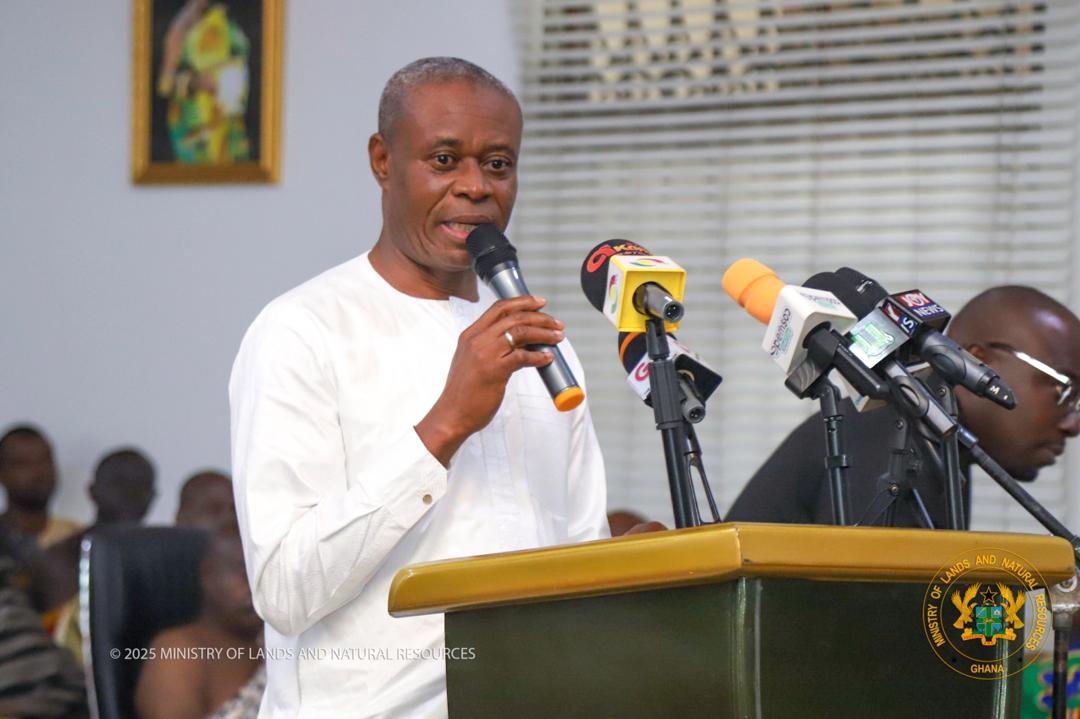
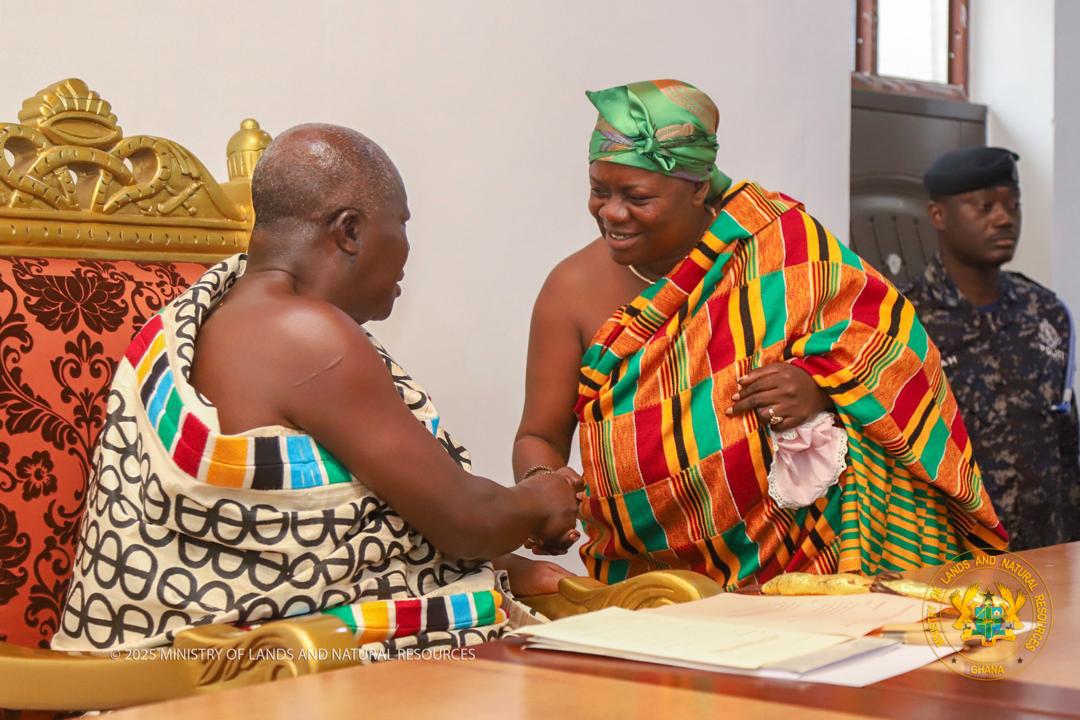
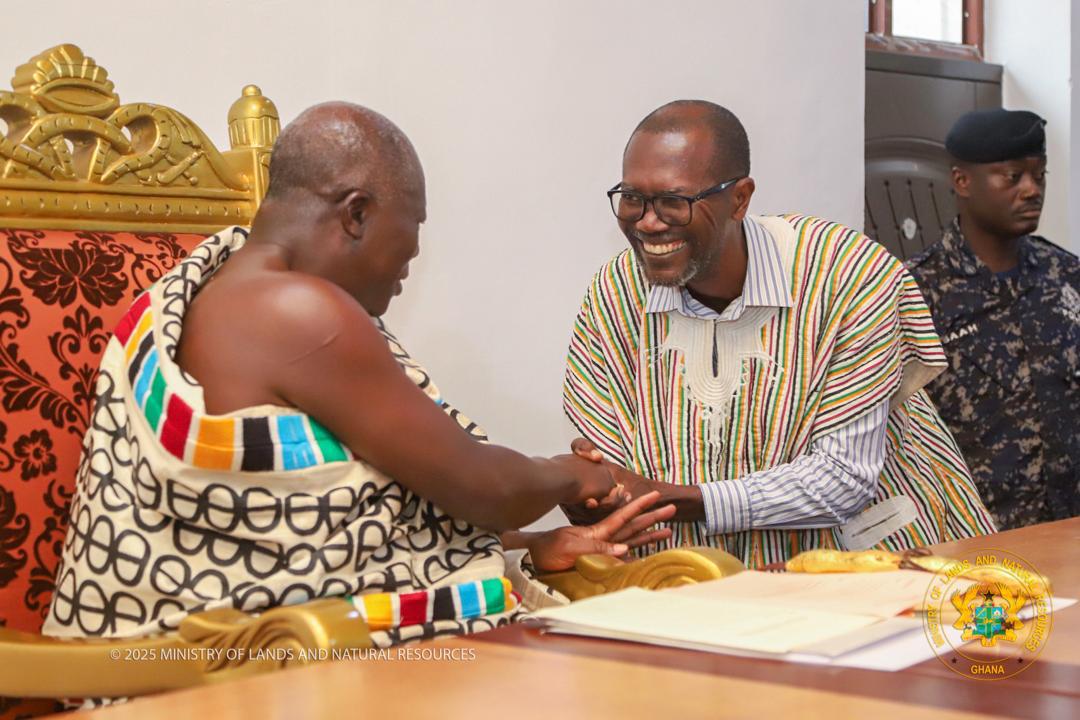
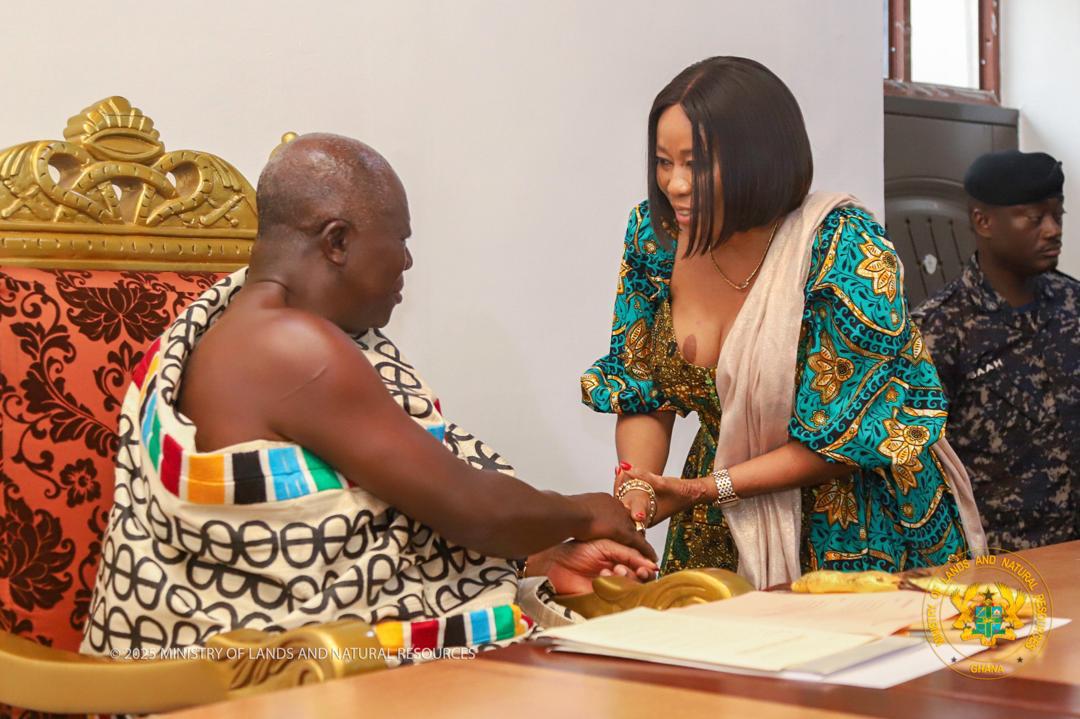
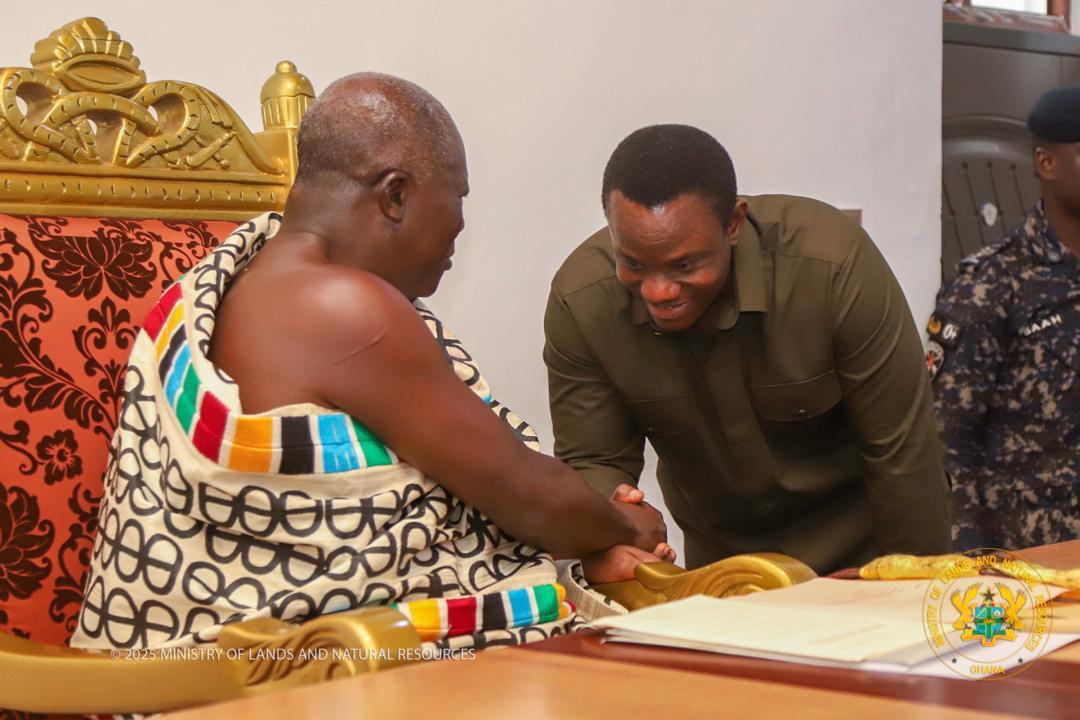
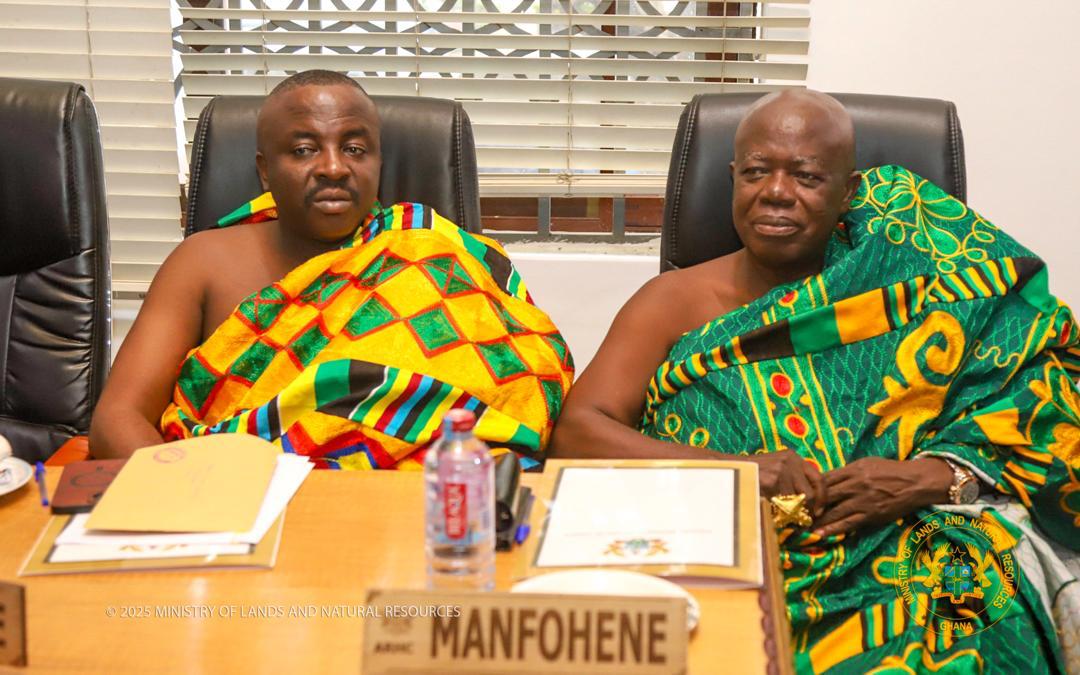
Strengthening Partnership: Upper East Regional House of Chiefs meets Minerals Commission on Legal Reforms
Strengthening Partnership: Upper East Regional House of Chiefs meets Minerals Commission on Legal Reforms
Bolgatanga, Upper East Region, July 16, 2025 – In a significant step towards reshaping Ghana’s mining landscape, the Minerals Commission engaged the Upper East Regional House of Chiefs in Bolgatanga. The high-level consultative meeting focused on crucial proposed amendments to the Minerals and Mining Act, 2006 (Act 703) and the 2014 Mining Policy.
Chaired by Chiana Pio Ditundini Adiali Ayagtam III, Paramount Chief of Chiana Traditional Area and President of the Upper East Regional House of Chiefs, the dialogue underscored the vital role of traditional authorities. He amplified the eminent role of Chiefs, stating “our sacred duty as traditional leaders demands stewardship and recognition when it comes to land acquisition”. The Chiana Pio highlighted the region’s rich mineral endowment, which include manganese, iron and gold. He welcomed the government’s efforts, including the establishment of the Gold Board to regulate the purchasing and sale of gold in the country. He raised strong concerns about environmental threats and dangers of unregulated small-scale mining to both the environment and lives of community members. He further advocated for a more transparent land allocation process and expressed unease about mineral rights notices served on communities unaware of the full scope of activities. The Chiana Pio stressed the need for active support by the Chiefs to sanitize the mining sector, promote environmental stewardship, and improve governance. On behalf of the Regional House of Chiefs, he pledged total commitment to supporting the government’s reset of the mining sector.
Prof. Jerry Samuel Yaw Kuma represented Hon. Emmanuel Armah-Kofi Buah, Minister for Lands and Natural Resources at the function. Delivering the keynote address, he intimated the urgent need for the review of the mining laws, policies and accompanying regulations after two decades of implementation considering the revolution and innovations happening in the mining sector across the globe. He emphasized Ghana’s mineral wealth (gold, manganese, bauxite, lithium, iron etc) acknowledging that Ghana is now the leading producer of gold in Africa.
Prof. Kuma spotlighted the government’s initiative to establish Cooperative Mining – a shift from Community Mining to a structured and integrated community led mining to boost local participation and direct economic benefits to Ghanaians. He remarked that the government is conscious of environmental degradation posed by illegal mining and committed to sustainability, with enhanced regulations to protect water bodies and promote responsible mining practices.
Prof. Kuma noted, Chiefs are key partners, recognizing their constitutional mandate and institutional knowledge as traditional leaders in land stewardship and licensing. Also, he stated that several stakeholder consultations had been held with the Chamber of Mines, National Development Planning Commission, Small-Scale Miners Association, and the Parliamentary Select Committee on Lands and Natural Resources among others. Mr. Benjamin Aryee, Chairman of the Mining Policy Review Committee and former Minerals Commission CEO, outlined critical interventions and proposals including phasing out mercury use in small-scale mining, referencing the Minamata Convention, which Ghana is a signatory, and alternatives like Gold Katcha, a mercury free mining equipment which enhances gold recovery rate by about 90%. He also mentioned the need to decentralize the operations of the Commission
through the establishment of regional and district offices and streamlining the licensing process. Mr. Aryee noted the benefits of local content and local participation in deepening Ghanaian ownership through share acquisition and listing of mining companies on the Ghana Stock Exchange. Again, he emphasized the adoption of Environmental, Social, and Governance (ESG) standards, climate change mitigation, and occupational health and safety into the new policy.
Mr. Josef Iroko, Manager, Legal of the Commission, detailed specific proposed amendments:
- Parliamentary Ratification: mining leases require parliamentary approval within 60 days.
- Transparency Boost: strengthening Extractive Industries Transparency Initiative (EITI) compliance and Rights to Information access.
- Stricter Community Pacts: mandatory 1% gross revenue for Community Development Agreements (CDAs) to be negotiated and signed off within 6 months, backed by Development Committees and sanctions for non-compliance.
- Reclamation Security: compulsory posting of reclamation bonds to tackle environmental degradation and pollution.
- Review of Stability and Development Agreements: reducing Stability Agreement durations from 15 years max to 5 years, abolishing Development Agreements.
- Gender & Inclusion: mainstreaming gender and addressing needs of Persons with Disabilities (PWD).
The Chiefs actively engaged in the discussions and proposed recommendations for the attention of Review Committee. Below is a summary of the concerns raised:
- Royalty Distribution: Direct consultation with Regional Houses of Chiefs on royalty disbursement, including a percentage allocation to them. They also suggested channeling royalties into tangible CSR projects like schools, hospitals etc.
- Enforcement & Impact: Demand enforcement of reclamation, addressing externalities (e.g., river pollution, forest destruction), and requiring mining companies to deliver significant community projects within 3 years of signing CDAs.
- Local Jobs & Inclusion: Mandatory allocation of at least 20% non-technical jobs for local communities and include Queen mothers in mining decision-making.
- Combating Illegality in Mining: Government to implement sustainable measures against illegal mining, stop mercury use in small-scale operations, prohibit child labour, and clamping down on “fronting” for foreigners in small-scale mining reserved for Ghanaians.
- Formalizing Chief’s Role: Amend the law to explicitly include “Stool or Skin” in narratives and introduce a mandatory Chief’s consent form prior to granting mineral rights.
Concluding the session, Prof. Kuma called on the Chiefs to formally submit detailed feedback within two weeks. He emphasized that Ghana’s ambition to be a leader in responsible mineral resource management hinges on these collaborative reforms, designed to maximize the sector’s contribution to national development.
This meeting marks a crucial step in aligning Ghana’s mining regulations with contemporary challenges, environmental imperatives, and the rightful role of its traditional custodians. The outcome of this review process promises a more sustainable, equitable, and prosperous future for Ghana’s mining sector and its communities.
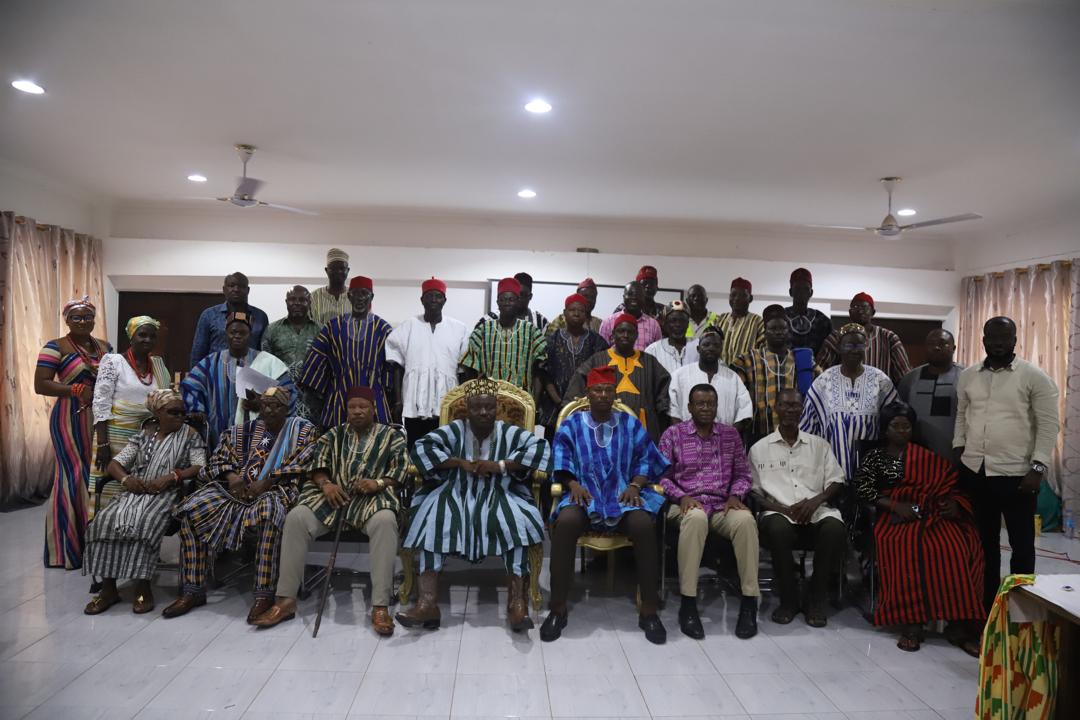
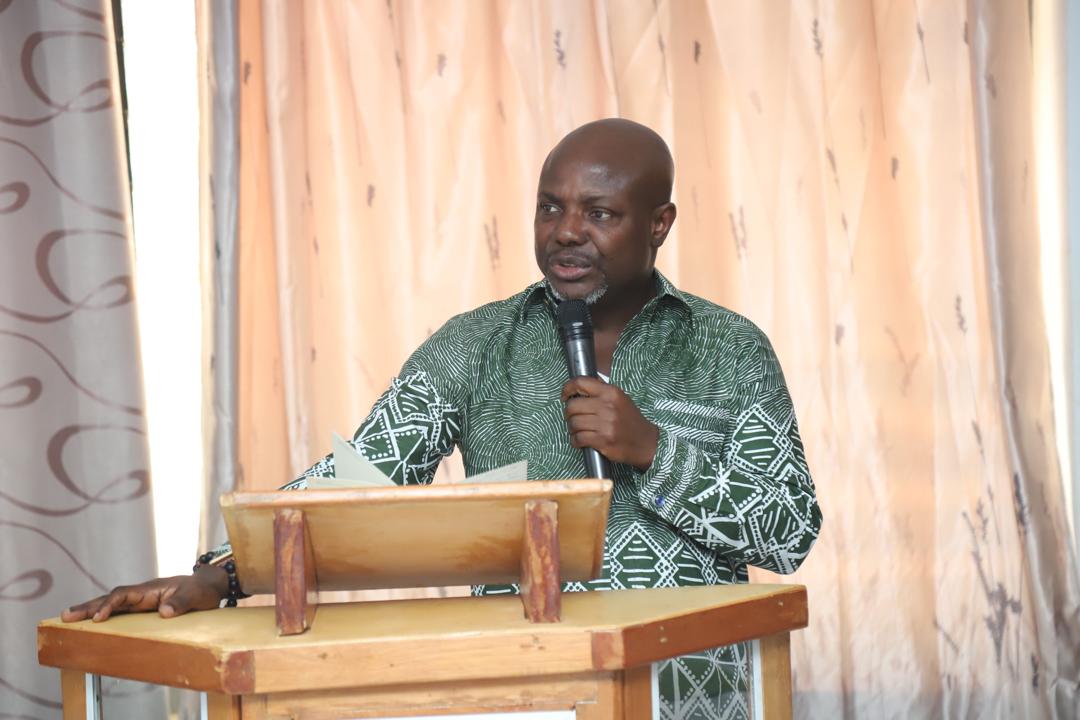
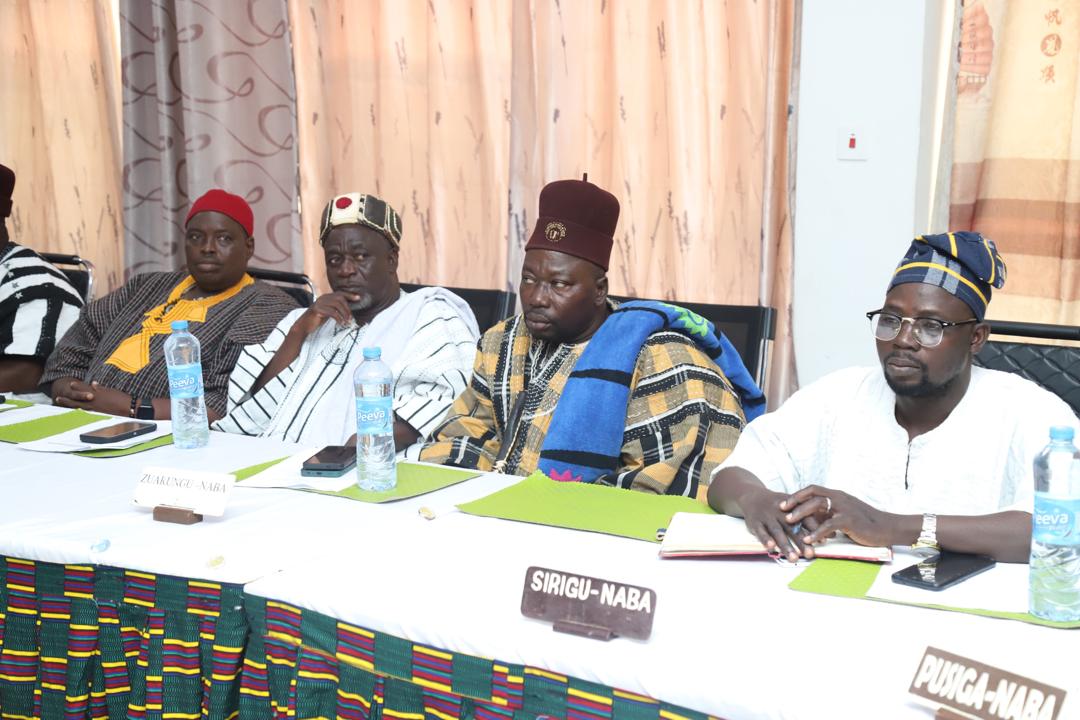
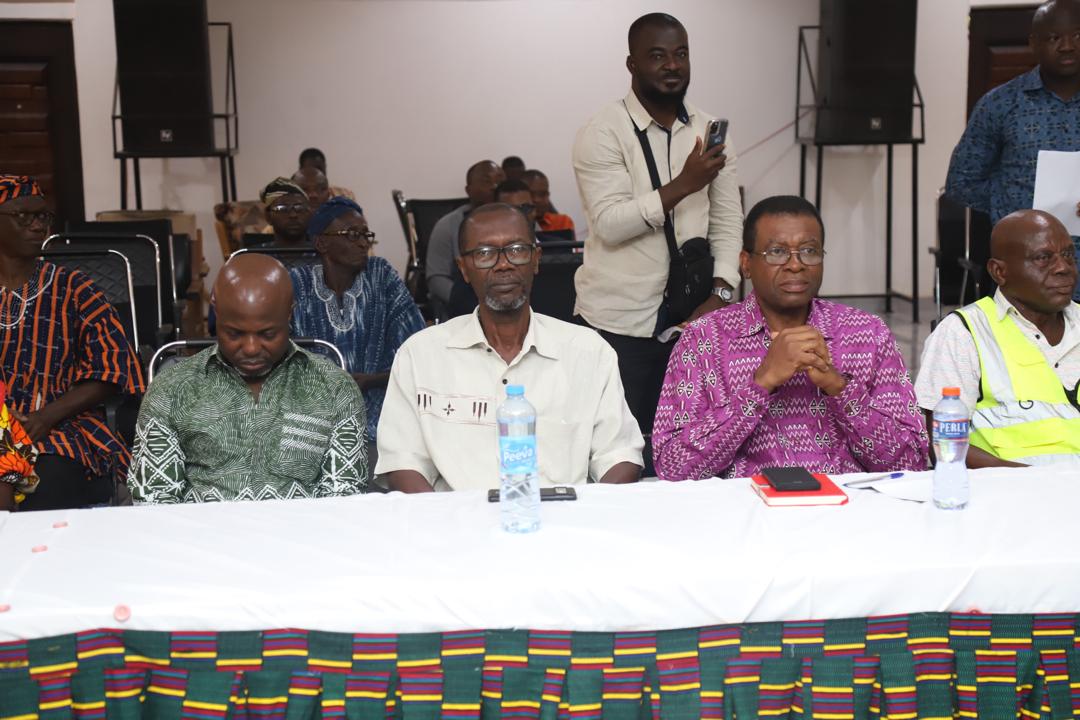
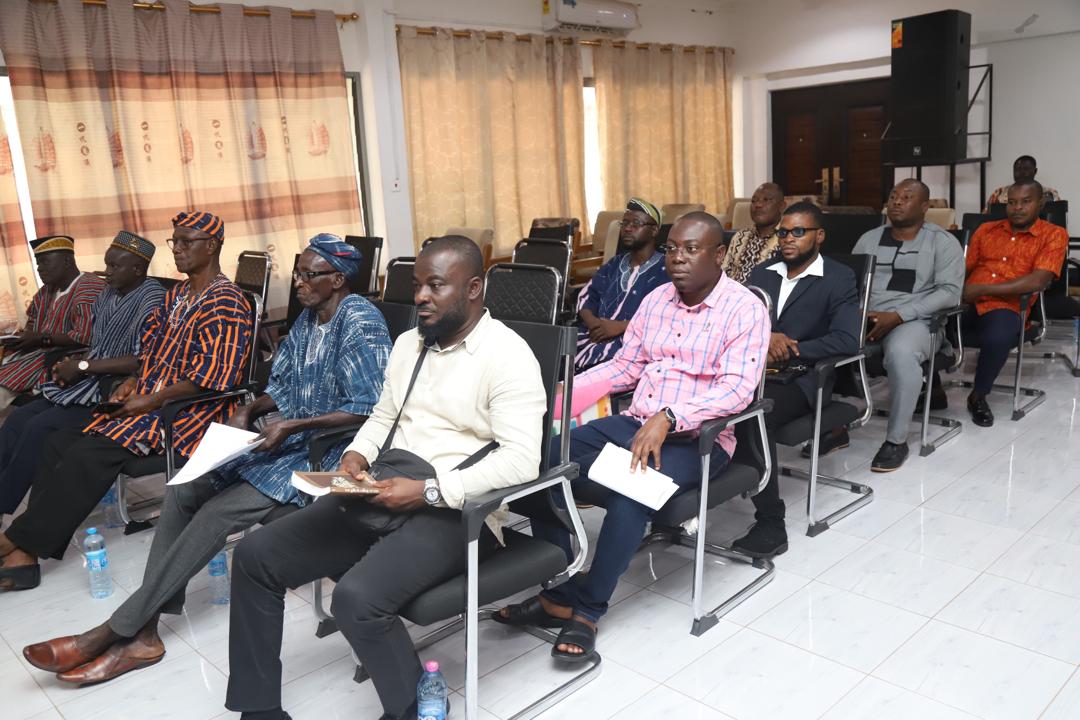
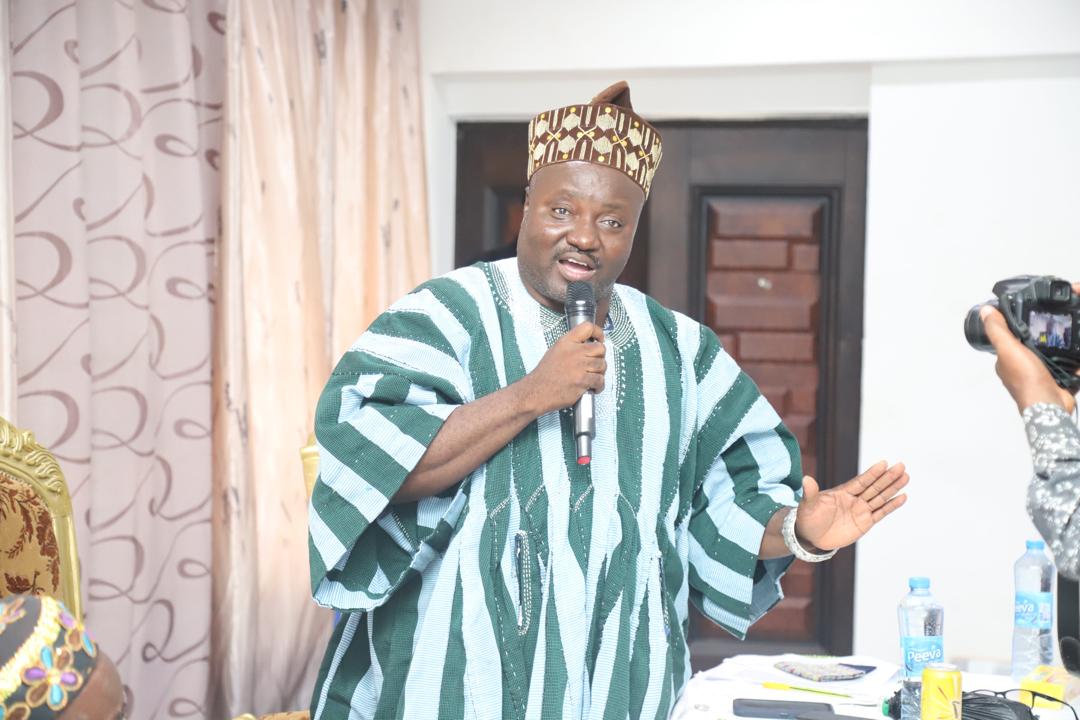
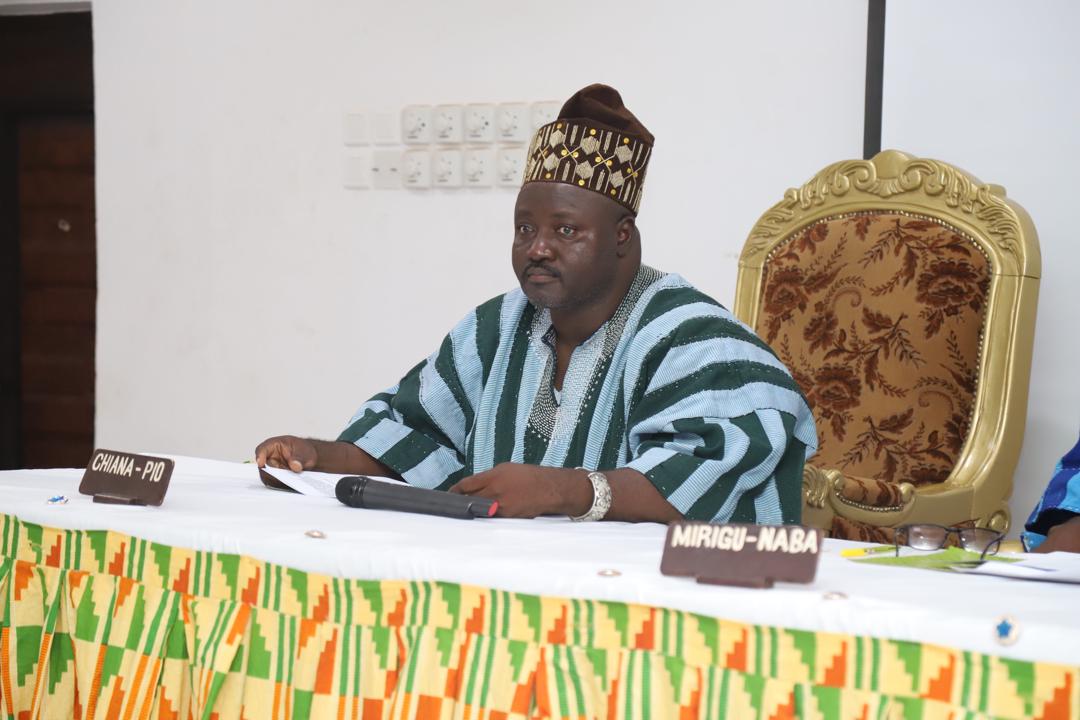
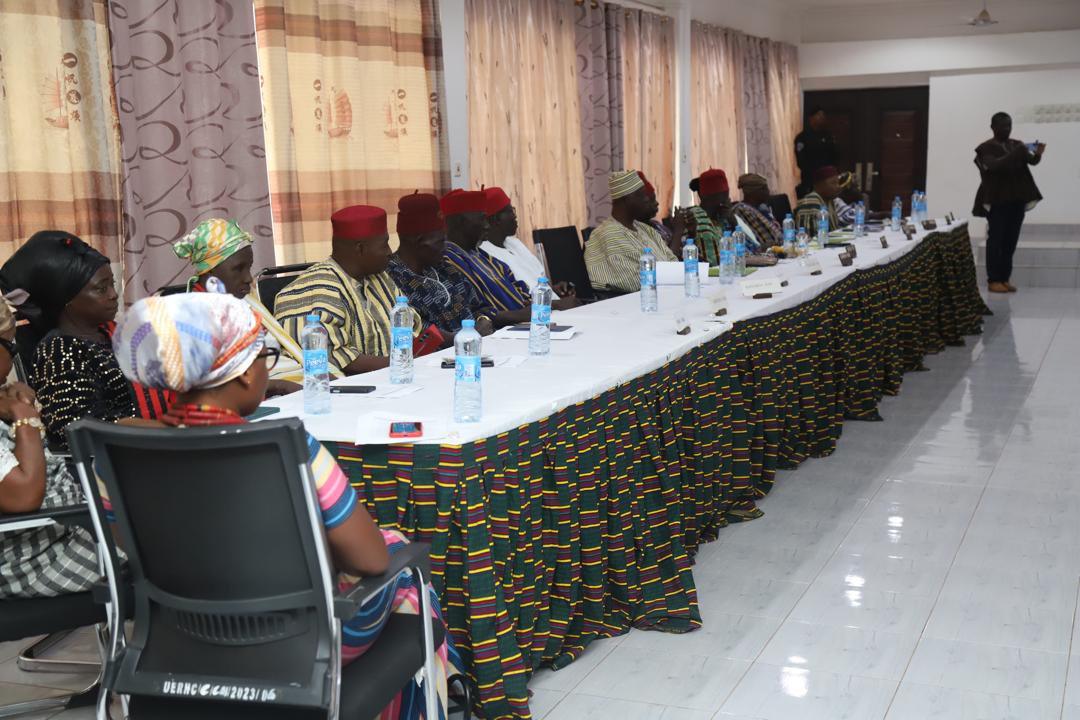
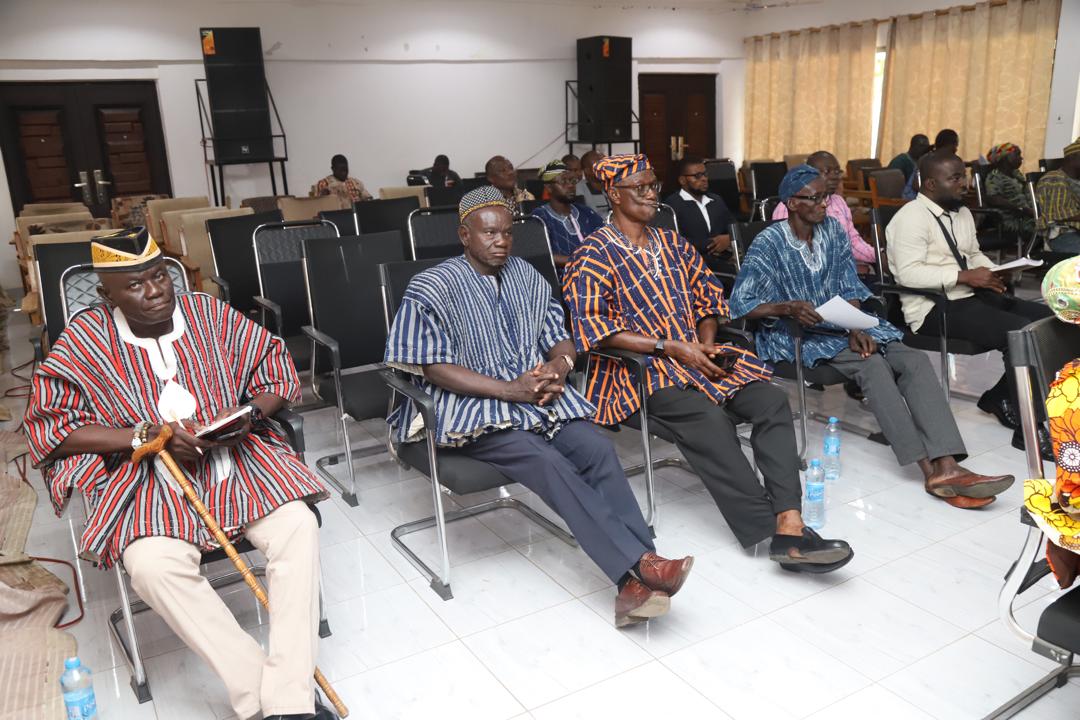
Minerals Commission meets Savannah Regional House of Chiefs on Amendments to Minerals and Mining Law and Policy Reforms
Minerals Commission meets Savannah Regional House of Chiefs on Amendments to Minerals and Mining Law and Policy Reforms
On Monday, July 14, 2025, the Minerals Commission convened a consultative meeting with the Savannah Regional House of Chiefs to discuss proposed amendments to the Minerals and Mining Act, 2006 (Act 703) and the Mining Policy of 2014. The meeting, held at the Regional Coordinating Council in Damongo, was chaired by Kpembewura Banbagne Ndefoso IV, Vice President of the Savannah Regional House of Chiefs. During the event, Kpembewura Banbagne Ndefoso IV delivered a speech on behalf of Yagbonwura Bii-Kunuto Jewu Soale I, President of the Savannah Regional House of Chiefs and Paramount Chief of the Gonja Kingdom.
Kpembewura Banbagne Ndefoso IV, warmly welcomed the delegation from the Minerals Commission and the Ministry. He expressed gratitude to the Chiefs for their participation in the meeting and their willingness to engage in the policy review process. He emphasized the importance of ensuring equity and fairness in the licensing process, highlighting the critical role that Chiefs play in allocating land for mining activities. He advocated for a more transparent approach and called for further enhancements to the process. The Kpembewura reaffirmed the commitment of the Chiefs to support the government’s efforts to reset the mining sector. He praised the Minister’s initiative and emphasized the need for active support to achieve the reset mandate, which aims to sanitize the mining sector, promote environmental stewardship, and improve governance.
The Savannah Regional Minister, Hon. Salisu Be-Awuribe, emphasized the significance of traditional lands and the region’s rich mineral resources, stating, “It is a reality that all lands belong to the Chiefs, and our region is blessed with numerous minerals, including gold.” He expressed concern about the practice of serving notices to traditional communities who may not be fully aware of the extent of mineral rights holders’ activities. Hon. Be-Awuribe encouraged the Chiefs to remain engaged stakeholders and actively participate in discussions to ensure that the region derives full benefits from its mineral resources.
Prof. Jerry Samuel Yaw Kuma, Advisor to the Minister for Lands and Natural Resources, Hon. Emmanuel Armah-Kofi Buah, delivered a keynote address underscoring the importance of Ghana’s ongoing review of its mining regulatory framework. In his remarks, Prof. Kuma emphasized that the policy review demonstrates the government’s dedication to modernizing the country’s mining legislation in response to evolving industry challenges and opportunities. “This comprehensive reevaluation of the law and regulations is to ensure relevance, inclusivity, and responsiveness to both global best practices and local socioeconomic needs” he stressed. Prof. Kuma further elaborated on the government’s progressive initiative to reform Community Mining into a Cooperative Mining framework, explaining that this transformative approach introduces a structured cooperative model, integrated with mini-refineries, to enhance local community participation and ensure direct economic benefits from mining operations. Additionally, the Minister’s Advisor reinforced the government’s unwavering commitment to environmental sustainability, detailing enhanced regulatory measures to protect water bodies from pollution and promote responsible mining practices. He further highlighted the indispensable role of traditional leaders in the mining licensing process, acknowledging their constitutional mandate and institutional knowledge in land stewardship and resource governance.
Mr. Benjamin Aryee, former CEO of the Minerals Commission and Chair of the Review Committee, participated in the function to discuss the proposed amendments and reforms in the mining sector. He highlighted the government’s initiative to decentralize the Commission’s operations by establishing regional and district offices across the country, aimed at streamlining the licensing process and enhance local participation. Mr. Aryee outlined key government interventions, such as deepening Local Content and Participation by enhancing Ghanaian ownership in mining projects through share acquisition and listings on the Ghana Stock Exchange. He also provided an overview of the 12 chapters of the policy, emphasizing areas that require attention, such as effective consultation with mining communities and adherence to global best practices. Mr. Aryee highlighted global trends and local concerns and stated incorporating Environmental, Social, and Governance (ESG) compliance, climate change mitigation, and improved health and safety standards in the new policy.
Mr. Josef Iroko, Manager, Legal at the Commission, gave a comprehensive overview of the current legal framework and proposed amendments to the Law. He emphasized the Commission’s role in reviewing and recommending mineral right applications for approval or rejection by the Minister, who holds the authority to grant mining leases or licenses. Mr. Iroko highlighted the critical functions of Chiefs in the administration and processing of mining licenses, underscoring their importance in the regulatory framework. He also discussed several key aspects of the revised law, including; gender mainstreaming, rights and needs of Persons With Disabilities (PWDs), strengthening the Extractive Industries Transparency Initiative (EITI) to promote transparency and accountability, and securing parliamentary ratification of mining leases within 60 days of grant. He further outlined proposed changes to existing agreements, which include the introduction of a compulsory 1% gross revenue of mining companies as Community Development Agreement (CDA) to promote community growth. Mr. Iroko pointed out the need to reduce Stability Agreement duration from 15 years to 5 years maximum and abolishing Development Agreements due to their limited benefits to the country.
Following extensive discussions, the chiefs expressed concerns and proposed the following recommendations for the Review Committee’s consideration:
- Ownership of Immoveable Properties: Upon completion of the mining cycle, all immovable properties on the land should revert to the landowners rather than the government.
- Addressing Illegal Mining: Effective measures should be implemented to tackle the issue of illegal mining.
- Inclusion of Stool or Skin: The law should be amended to include “Stool or Skin” in its narrative, recognizing traditional authorities role in land ownership.
- Consent Requirement: A consent form should be introduced, requiring Chiefs to sign off prior to the granting of mineral rights, ensuring their involvement and approval in the process.
Prof. Kuma called on the House of Chiefs to thoroughly review the proposed amendments and submit their feedback within a two-week timeframe for consideration by the Review Committee. He emphasized that Ghana’s aspiration to be a leader in responsible mineral resource management hinges on the successful implementation of these reforms, which are expected to substantially boost the sector’s contribution to national development.
-End-
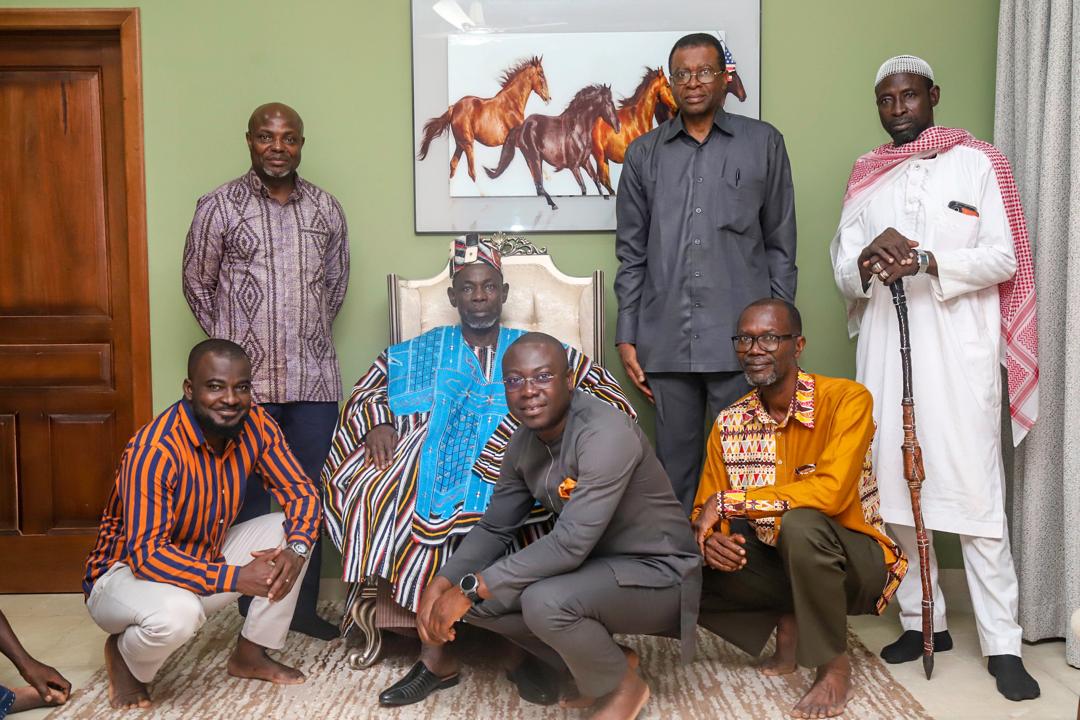
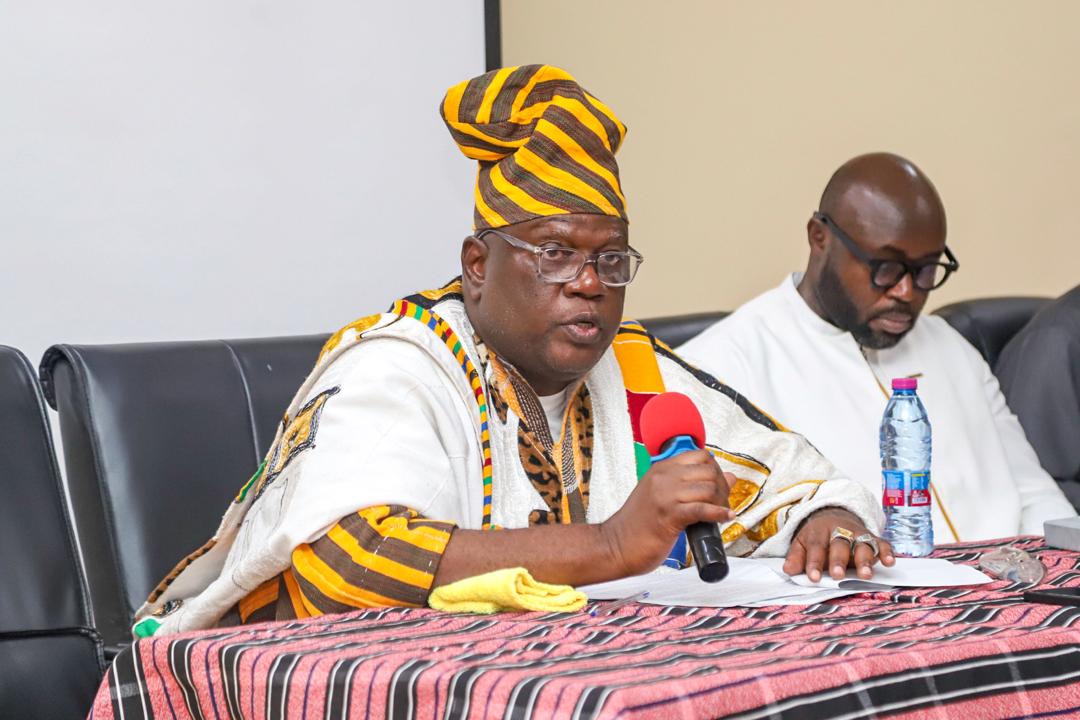
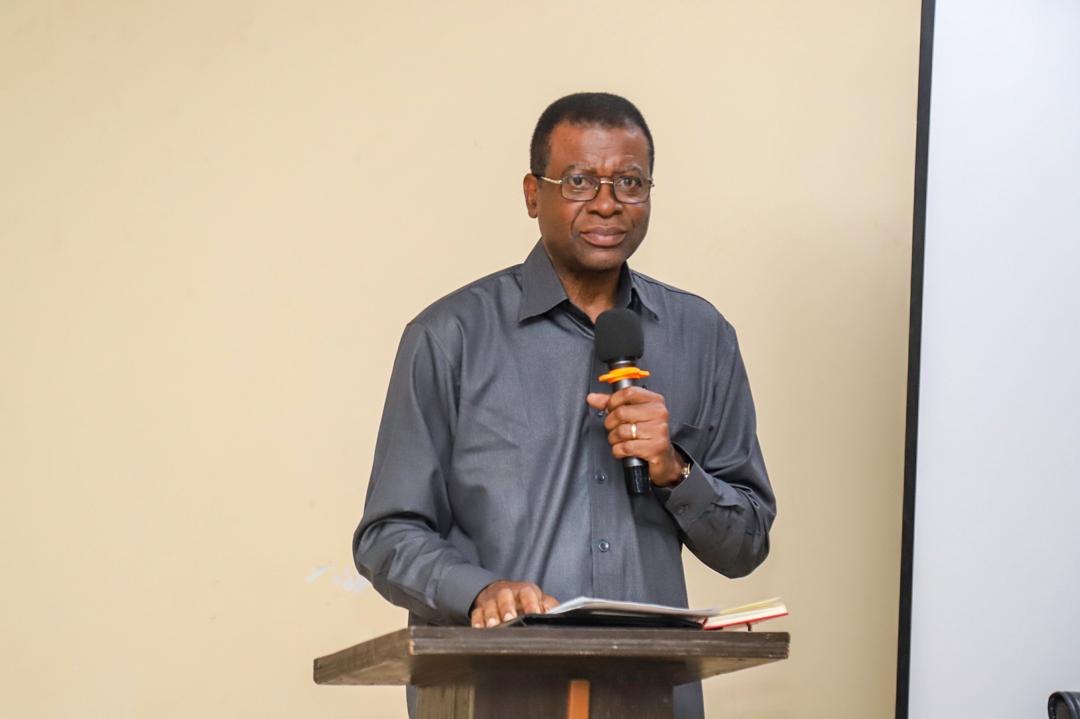
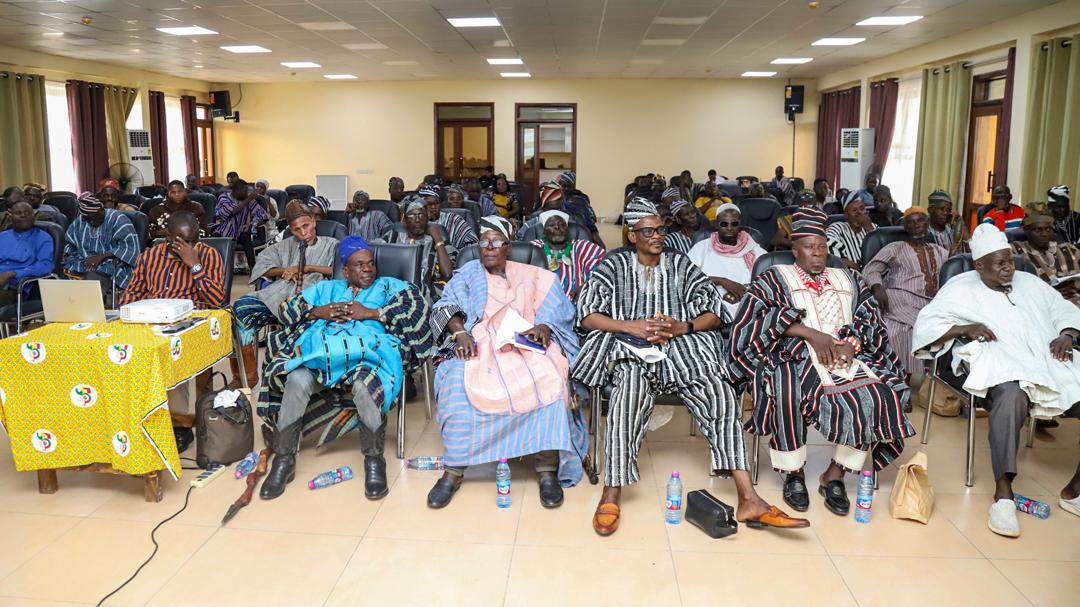
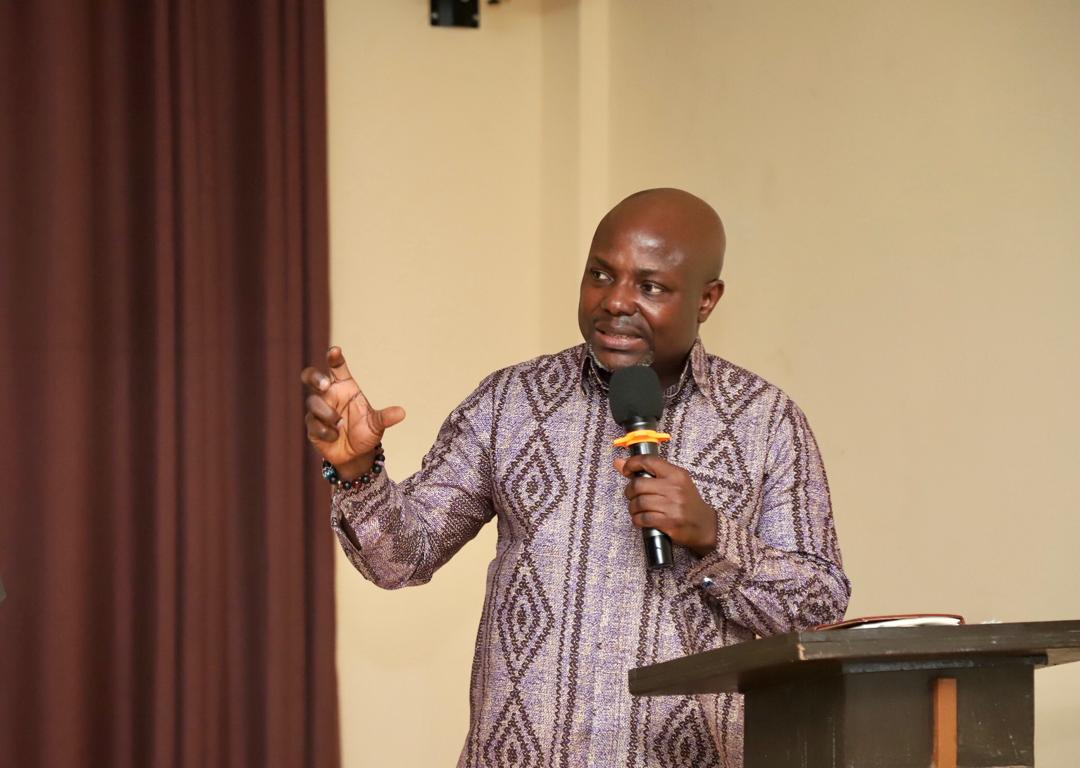
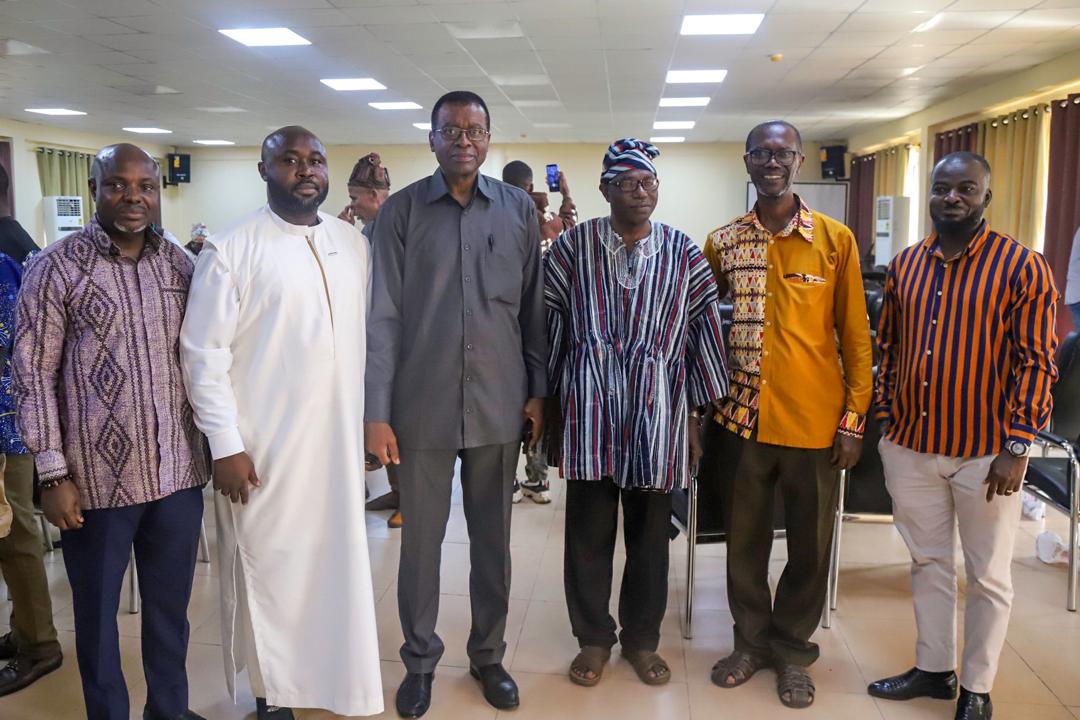
Lands Minister Collaborates with Minerals Commission to Engage Western and Western North Houses of Chiefs on Revision of Mining Policy and Laws
Lands Minister Collaborates with Minerals Commission to Engage Western and Western North Houses of Chiefs on Revision of Mining Policy and Laws
Hon. Emmanuel Armah-Kofi Buah (MP), Minister for Lands and Natural Resources led a team comprising Mr. Martin Kwaku Ayisi, Chief Executive Officer (CEO), Minerals Commission, Mr. Benjamin Aryee, former CEO of the Commission and Chair of the Policy Review Committee to deliberate on the reforms within the mining sector and solicit the support of the Western and Western North Regional Houses of Chiefs as part of efforts to revise Ghana’s mining laws and policy. Discussion focused on restructuring community mining, enhancing environmental protection, and strengthening governance in the sector. This engagement took place on July 11, 2025 at The Grove Essipong Beach Resort in Takoradi.
The ceremony was co-chaired by Ogyeahoho Yaw Gyebi II, the President of the National House of Chiefs and Omanhene of Sefwi Anhwiaso, alongside Nana Kobina Nketsia V, the President of the Western Regional House of Chiefs and Paramount Chief (Omanhen) of the Essikado Traditional Area. In his remarks, Ogyeahoho Gyebi emphasized the importance of Parliament rallying support for the Ministry and the Commission to ensure the passage of these commendable government initiatives and reforms. Nana Nketsia, who hosted the meeting, also commended the CEO of the Commission for his leadership in the fight against illegal mining.
The Minister expressed his heartfelt appreciation to the Chiefs for their support since his appointment. “It is both an honour and a privilege to be back home to the land of my birth, and to stand before this revered assembly of our traditional leaders – the custodians of our land, culture, and heritage” he remarked. Hon. Buah emphasised the governments groundbreaking initiative to transition Community Mining into Cooperative Mining by “introducing a structured cooperative model with mini-refineries to empower local communities”. He highlighted measures being rolled-out to safeguard the environment and protecting river bodies from pollution. The Minister stressed the significant role of Chiefs in the licensing process. He also noted that Community Development Agreements are going to be incorporated into the revised law. Hon. Buah reiterated that the fight against galamsey must be well coordinated and the principle of name and shame must be enforced
The proposed changes to the law were presented by Mr. Ayisi, who outlined the government’s plan to recategorize mining into three tiers: small-scale, medium-scale, and large-scale. This recategorization aims to facilitate Ghanaians’ transition into large-scale mining. He also reiterated the introduction of Cooperative Mining that will empower local communities. “There is a proposal to abolish Development Agreements as it has not benefited to the country” he remarked. The CEO emphasised that prospecting licences will be restricted to a maximum of nine years to prevent speculation and accelerate new mine project development.
Mr. Josef Iroko, Manager, Legal of the Commission, highlighted the role of Chiefs under the current law as landowners and discussed the function of Office of Administrator of Stool Lands in the management and disbursement of ground rent to traditional authorities. He clarified how compensation for surface rights and deprivation of land should be administered legally.
On his part, Mr. Benjamin Aryee presented an overview of the mining policy, highlighting emerging trends such as compliance with Environmental, Social, and Governance (ESG) standards, climate change, and the use of sophisticated technologies in mining operations.
The Chiefs intimated “we need to treat the root cause of illegal mining by educating our people and resolving land disputes. Our inability to properly demarcate land boundaries has exacerbated the problem”. They pledged to actively support the Minister to achieve the reset mandate in sanitizing the mining sector and enhance environmental stewardship and governance.
After several deliberations the chiefs raised concerns and recommended the following for consideration by the Review Committee:
- Small-Scale District Mining Committee be headed by a Chief and not a District Chief Executive (DCE) for better oversight and compliance to regulations.
- Proper and clear definition of Cooperative Mining and the need to ensure that indigenes and local communities are involved the decision-making process.
- Increased royalties and equity for communities – ensuring mining benefits directly reach indigenes through improved revenue sharing and converting surface rights into equity for mining host communities.
- Social impact development should be incorporated into the mining lease agreement and policy.
- Community Mining has become an albatross for perpetrating illegal mining operations hence.
In his closing remarks, Hon. Buah reassured the Chiefs that the government is committed to collaborating with traditional authorities and local communities to ensure that mining benefits all Ghanaians.
In attendance were officials from the Commission including Dr. Ahmed Tijani, Manager, Corporate Affairs & Information Technology, Mr. Francis Annobil Jnr, Takoradi Regional Manager, along with staff from the Tarkwa office.
-END-
